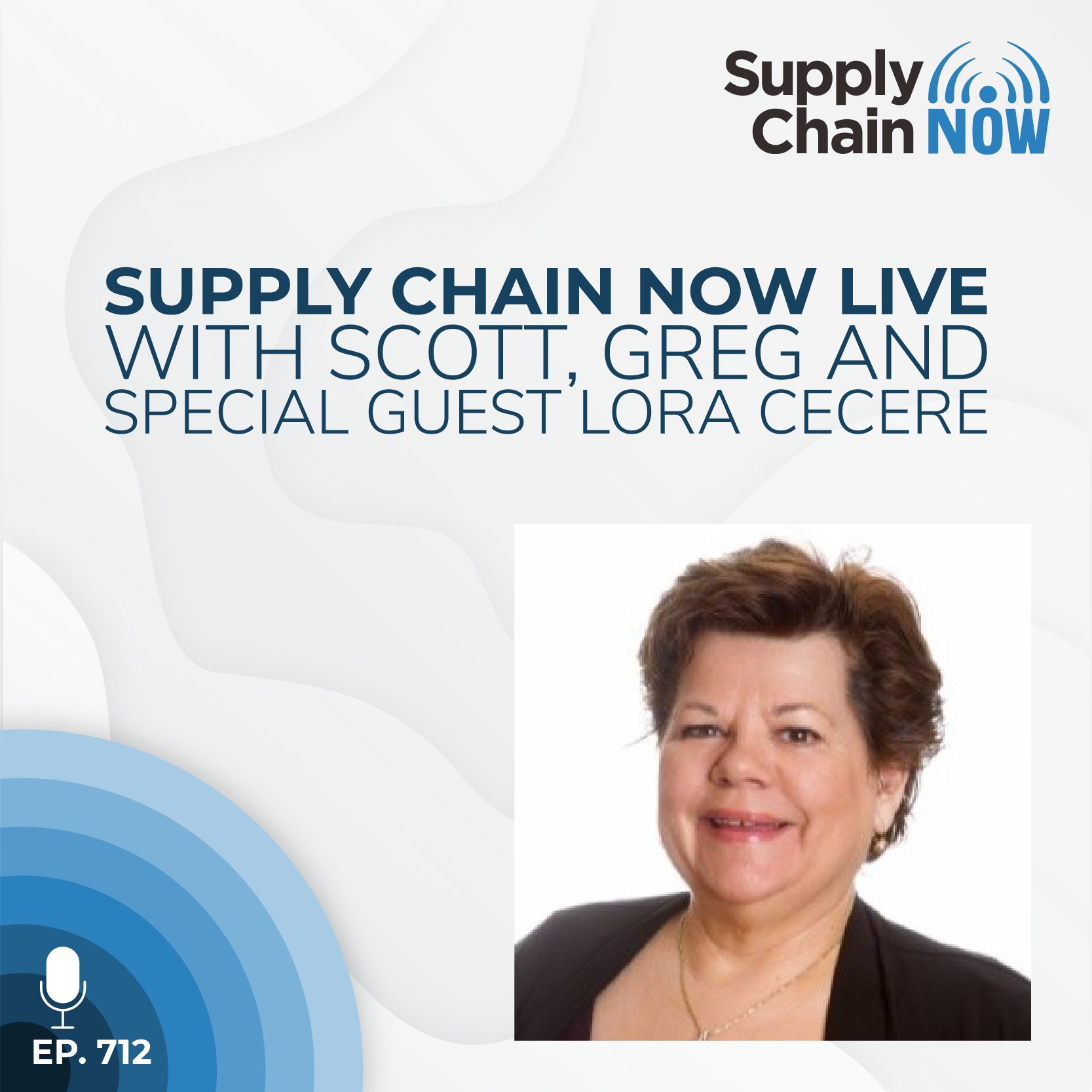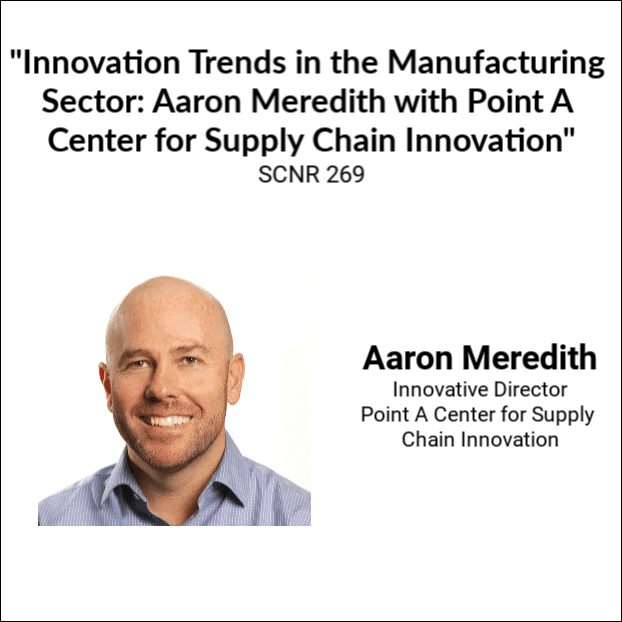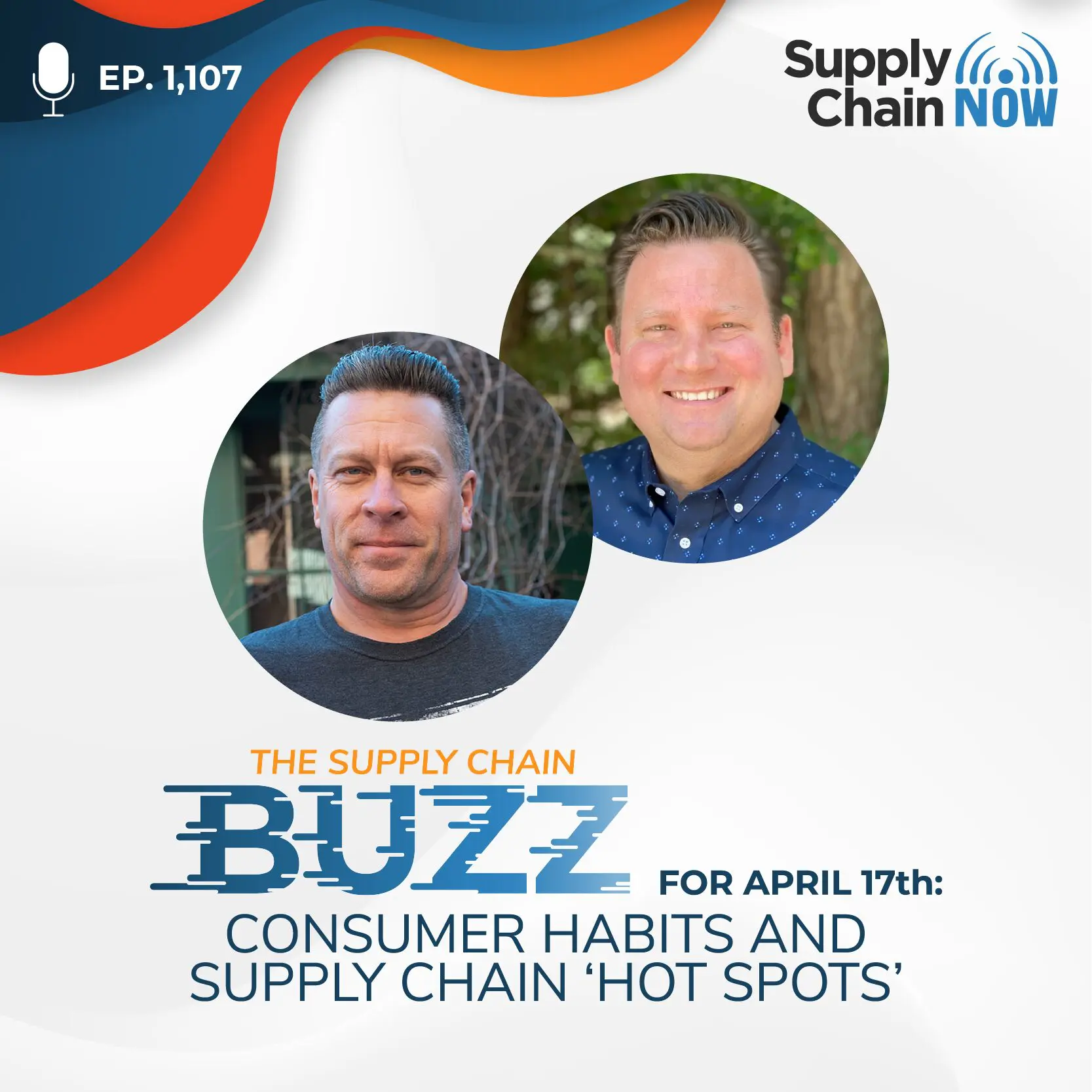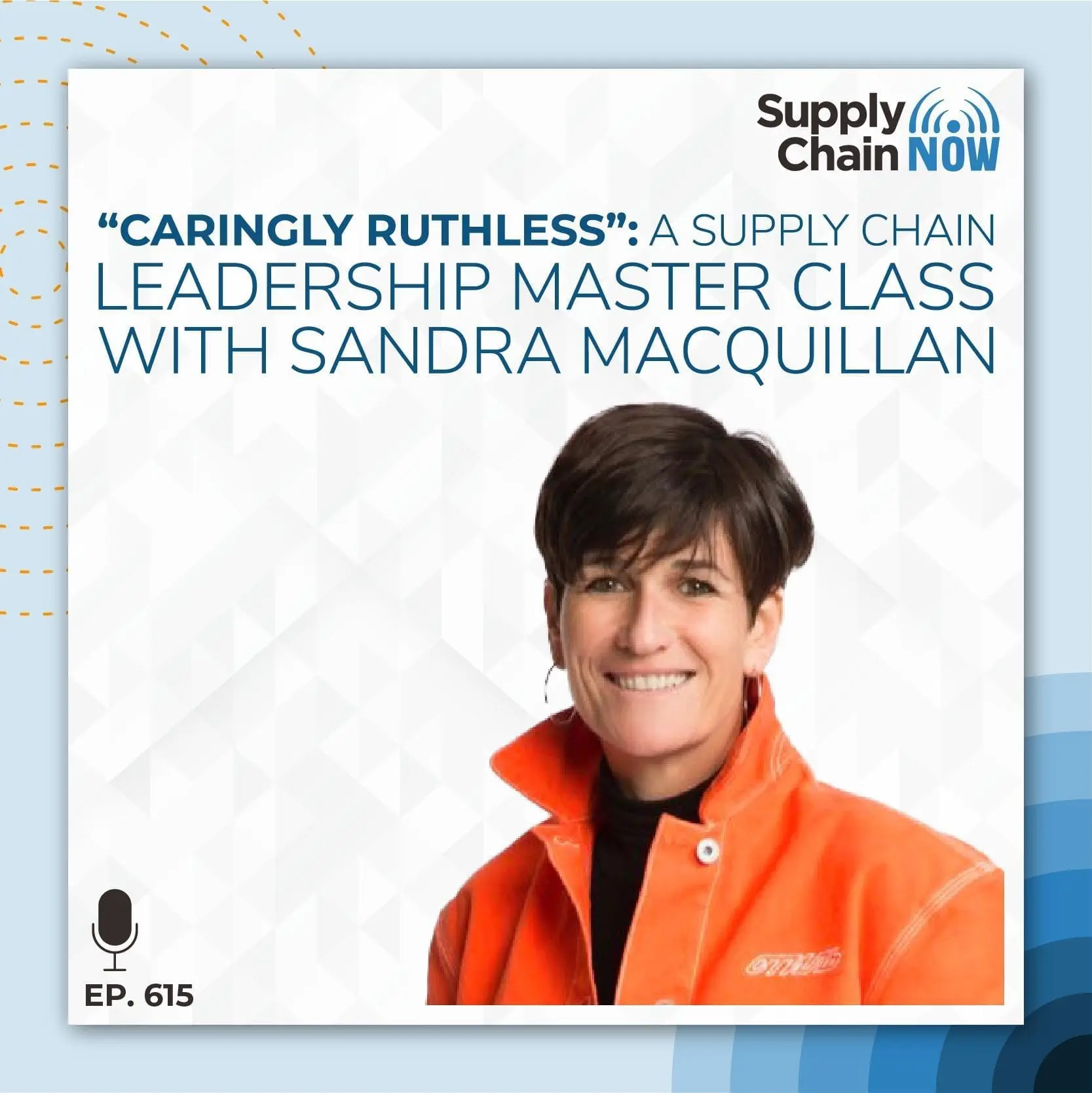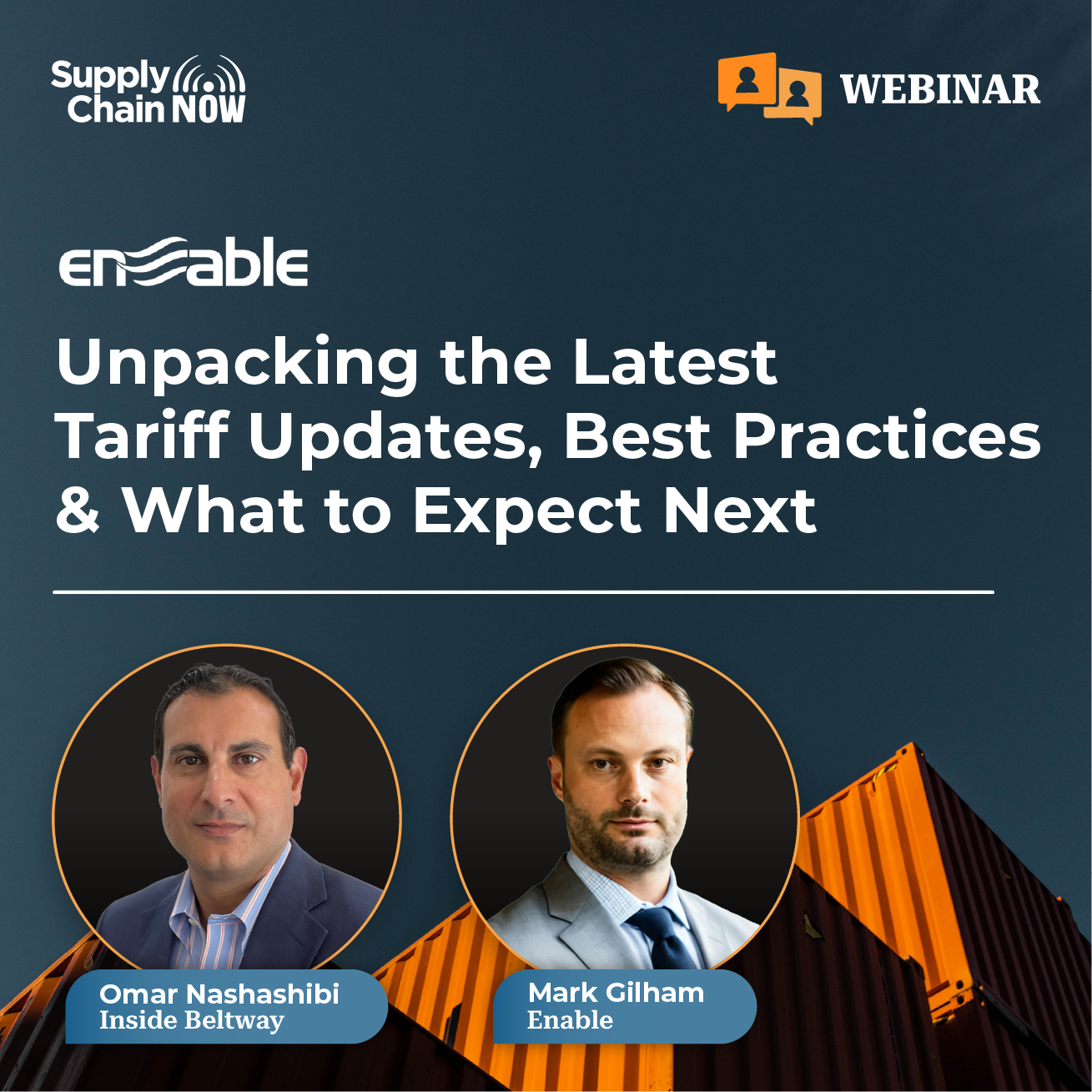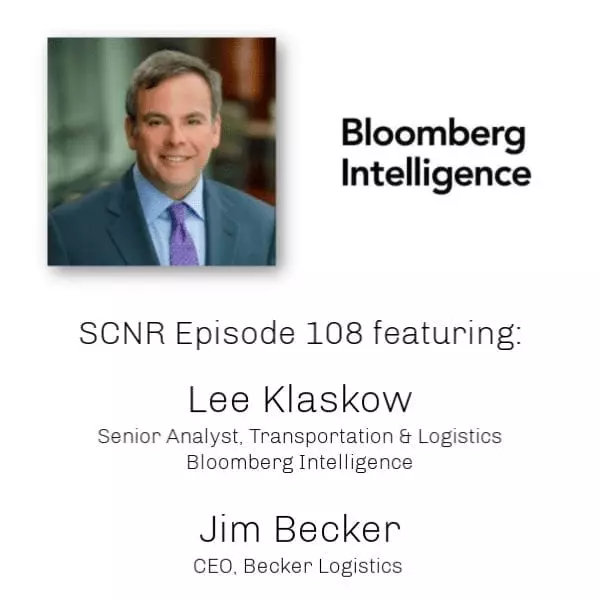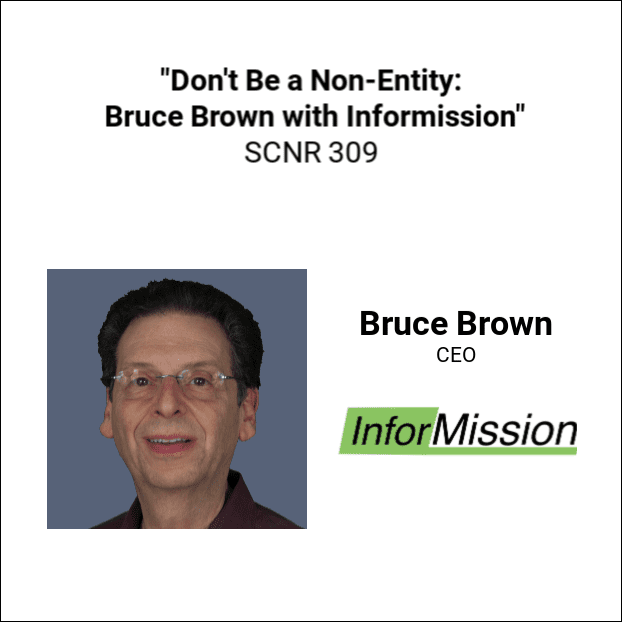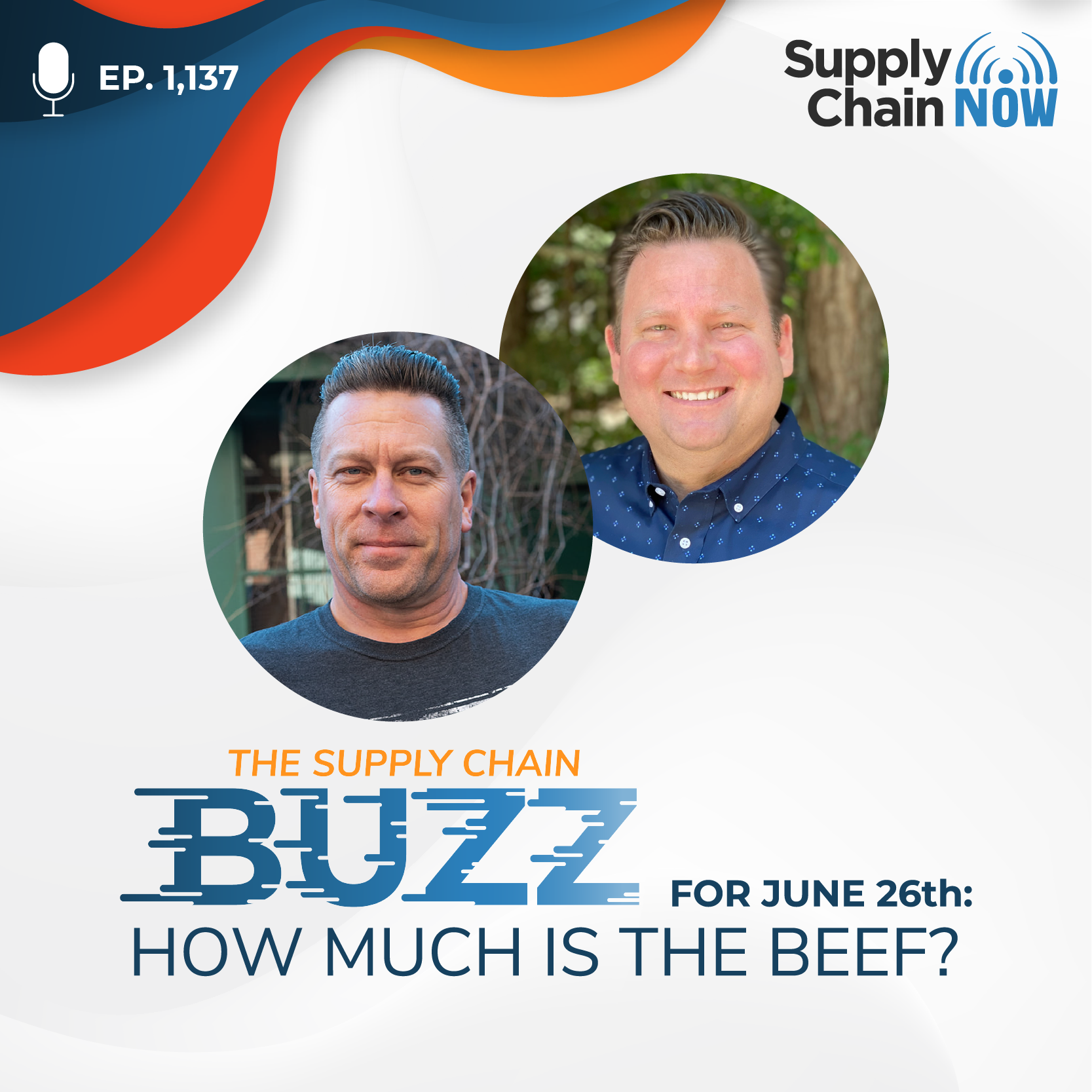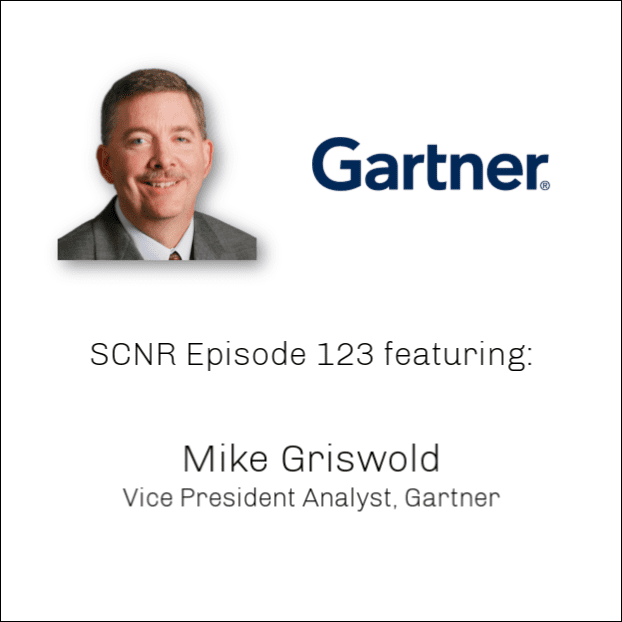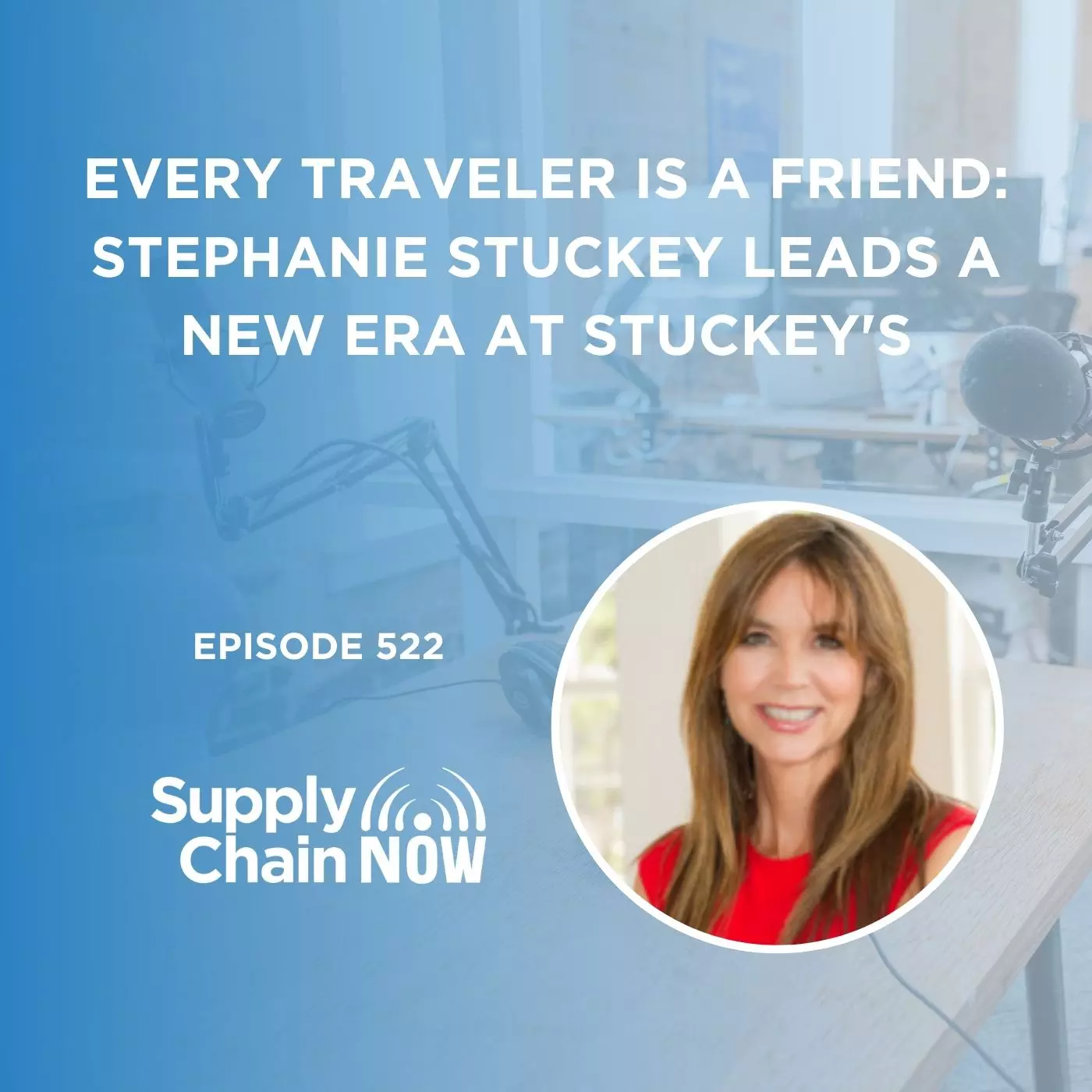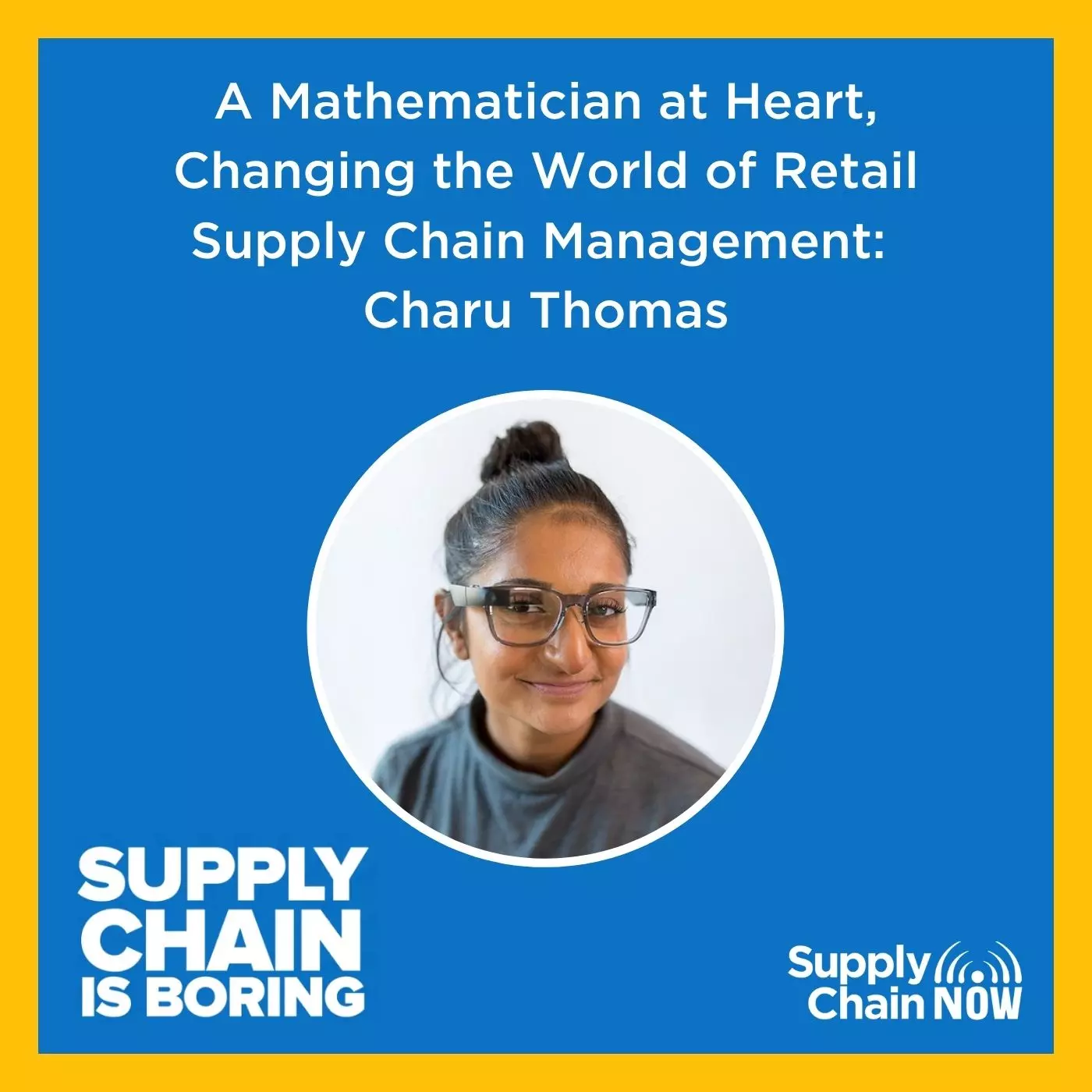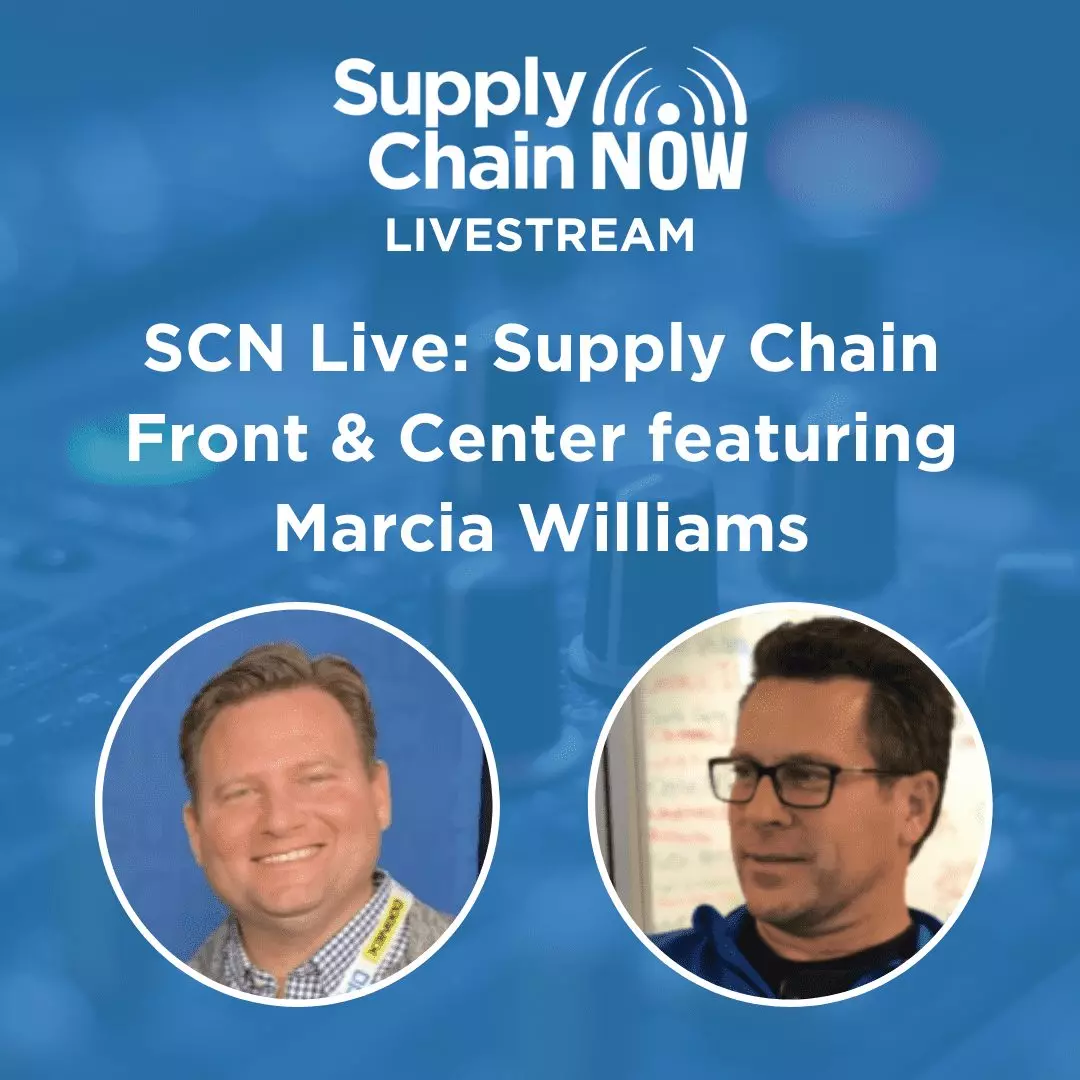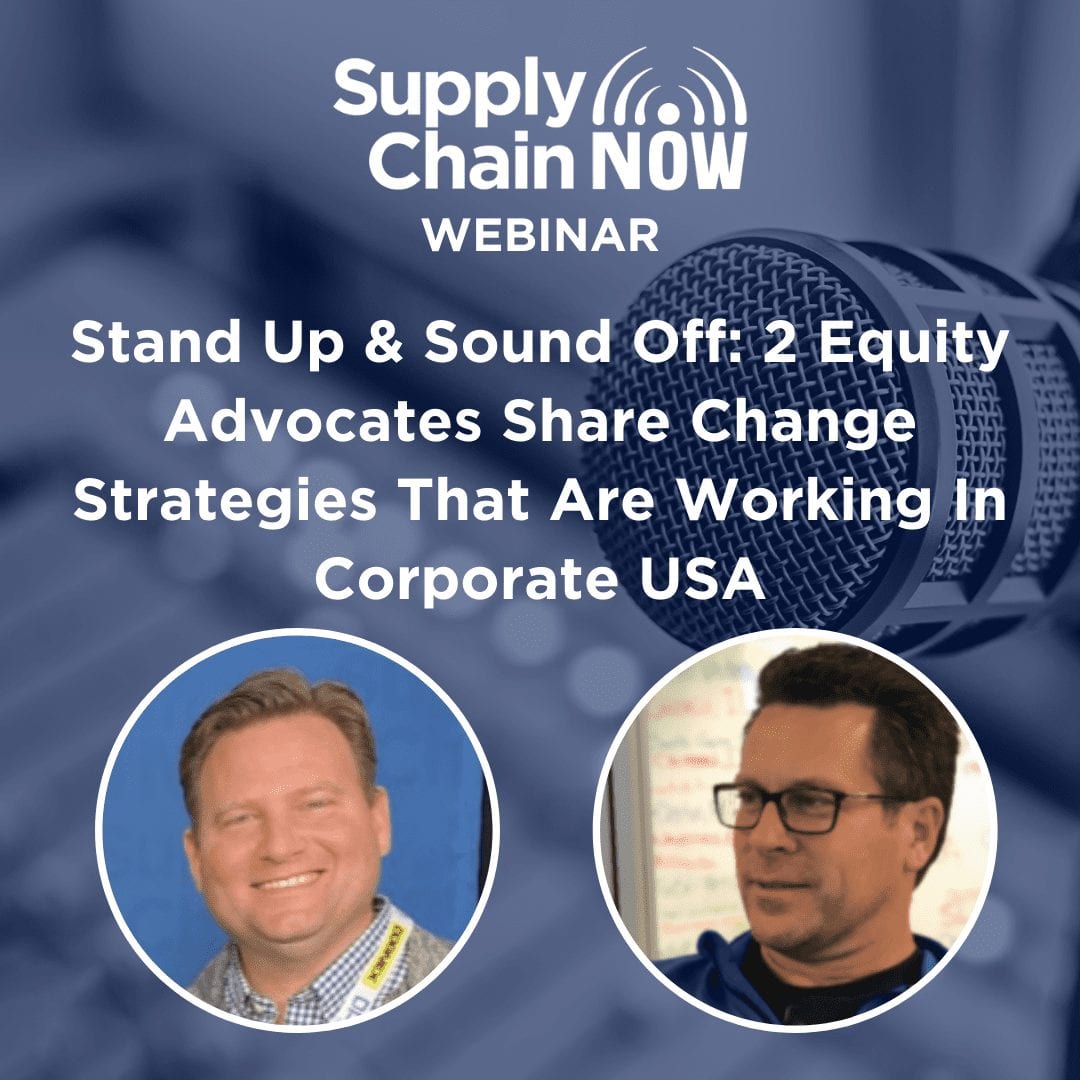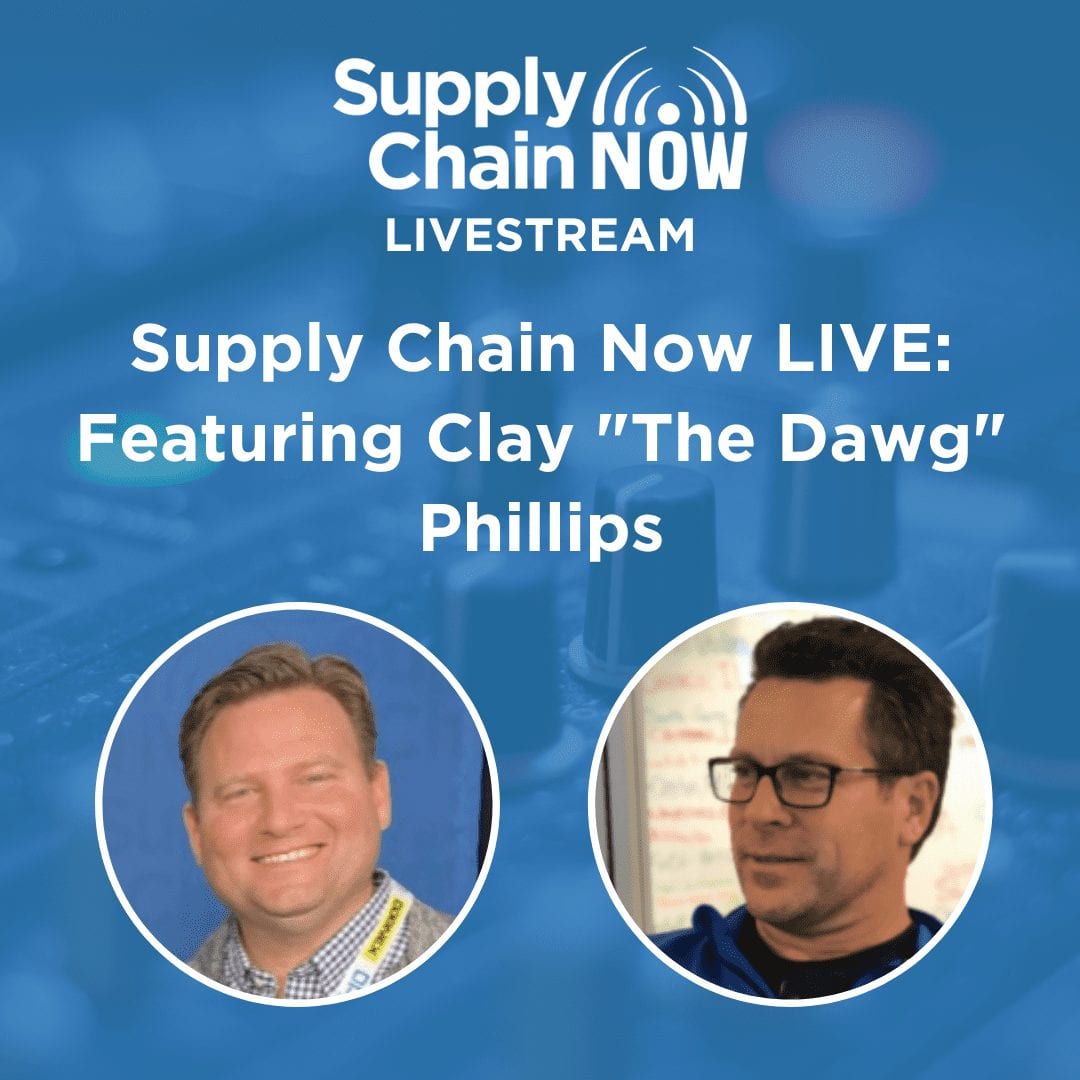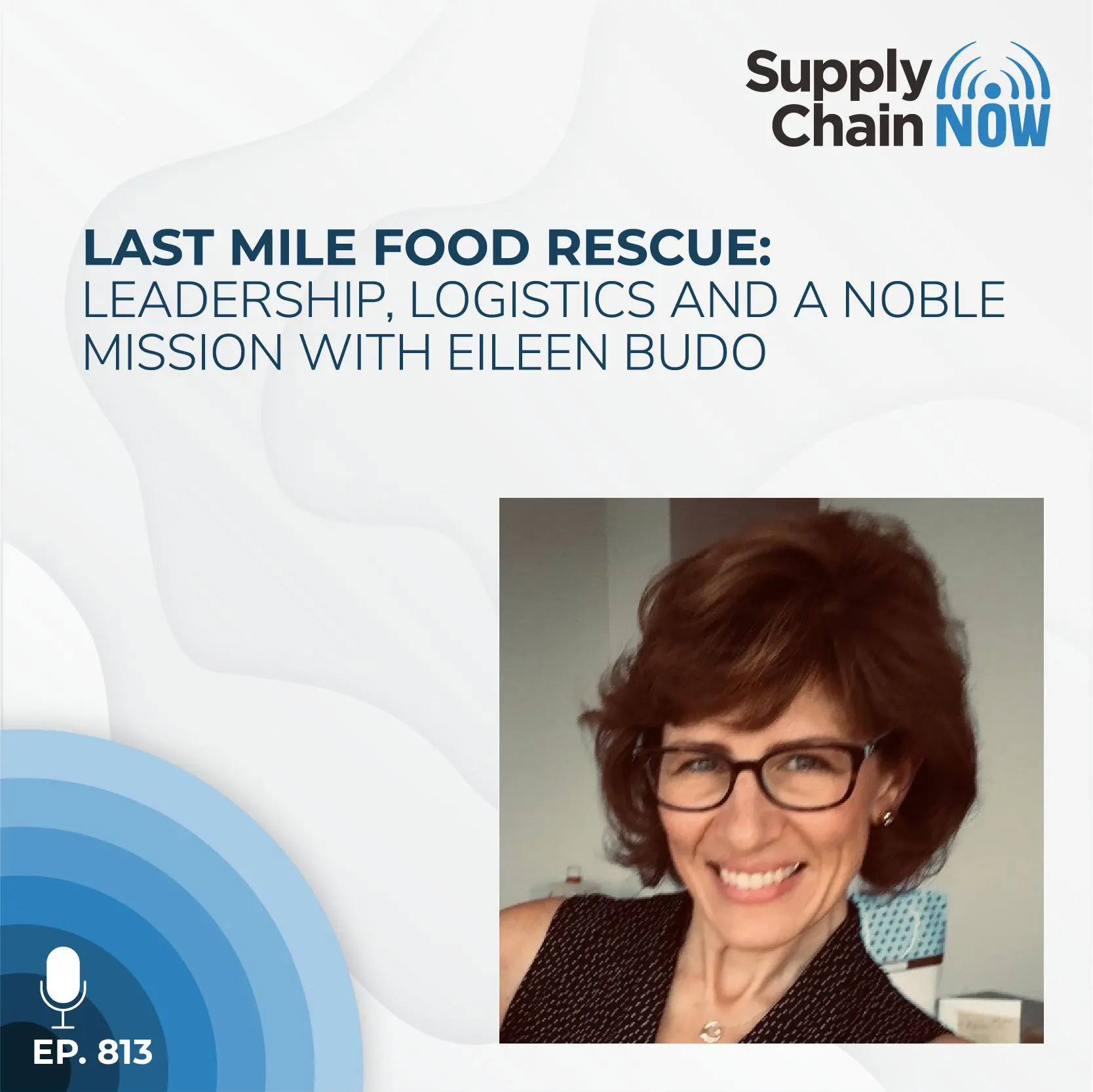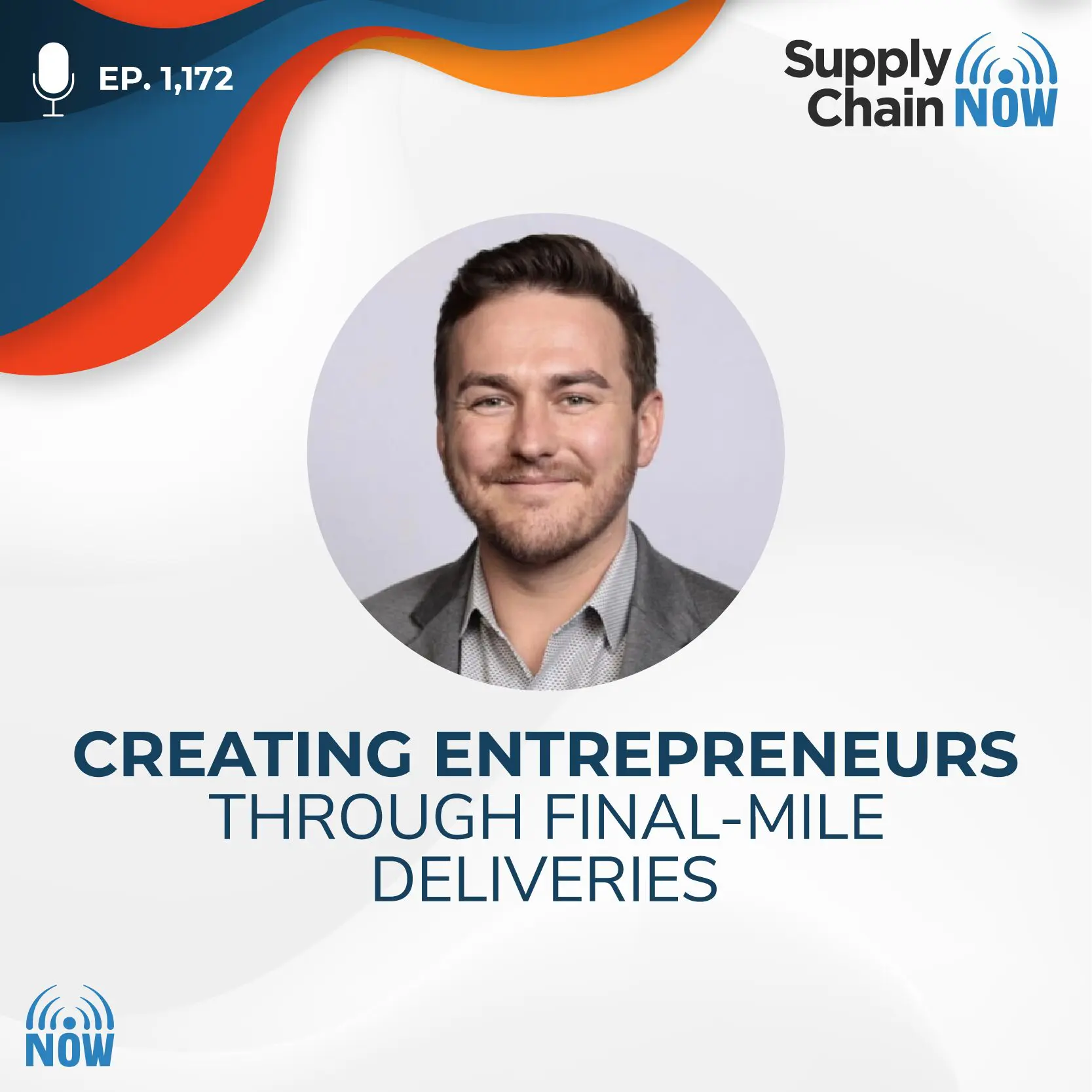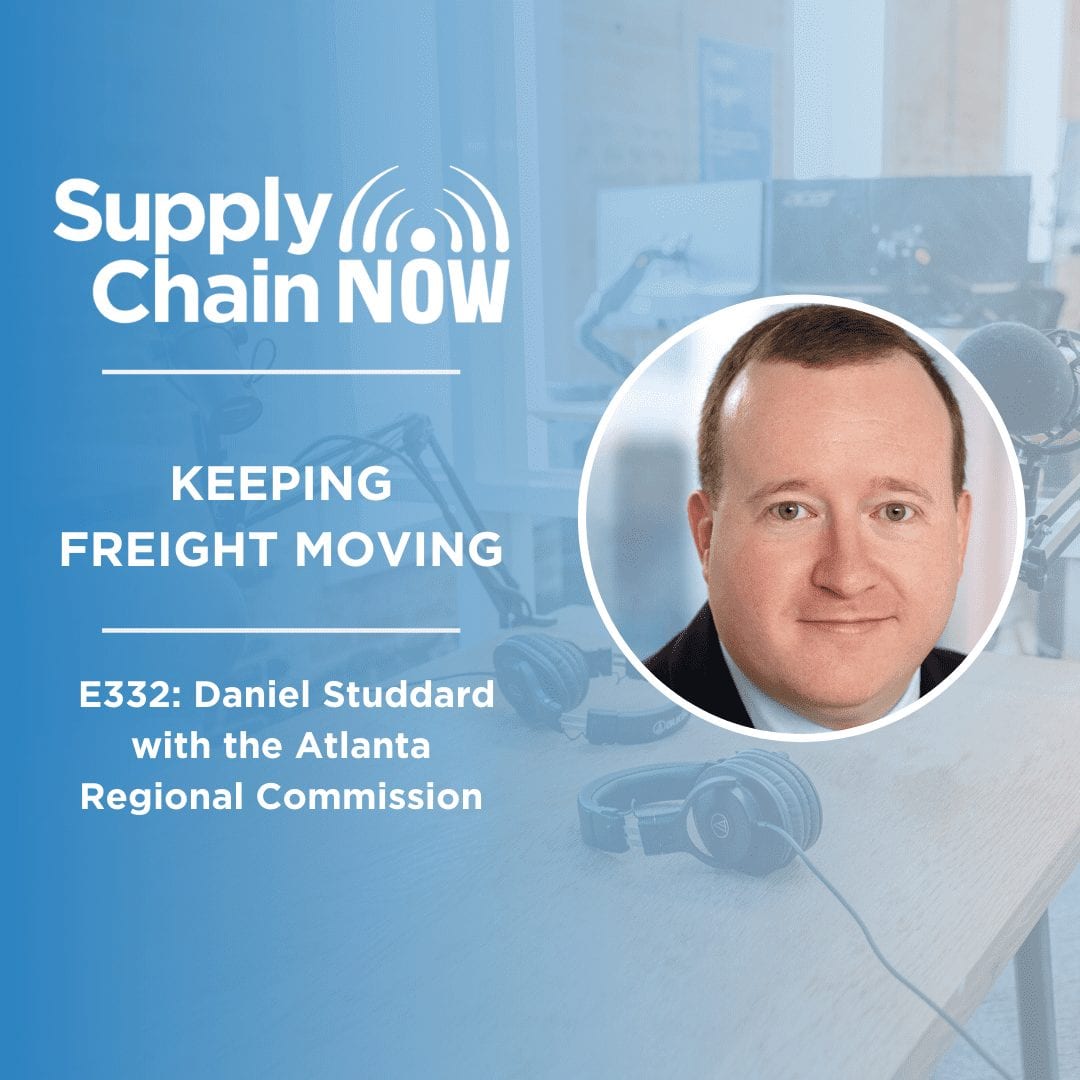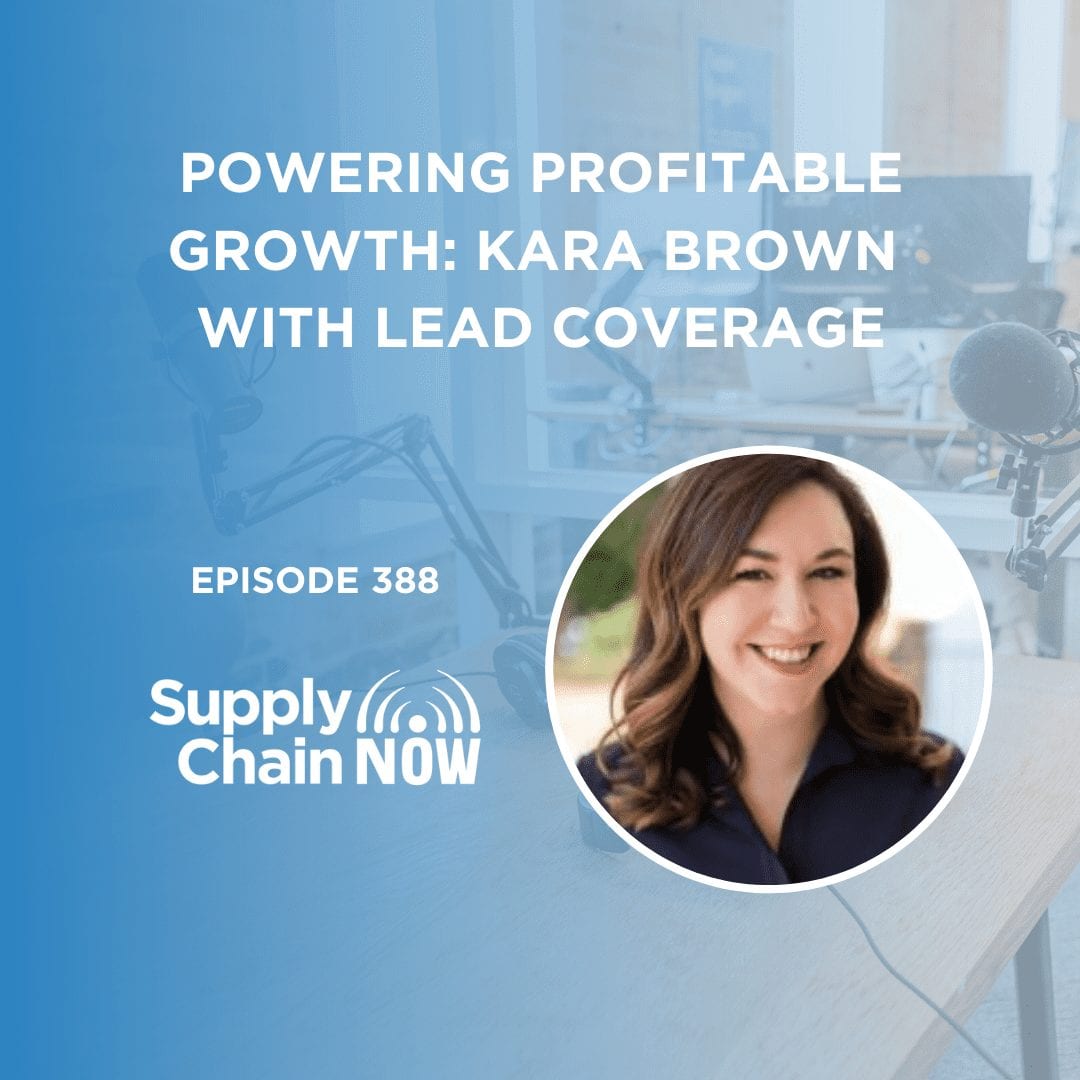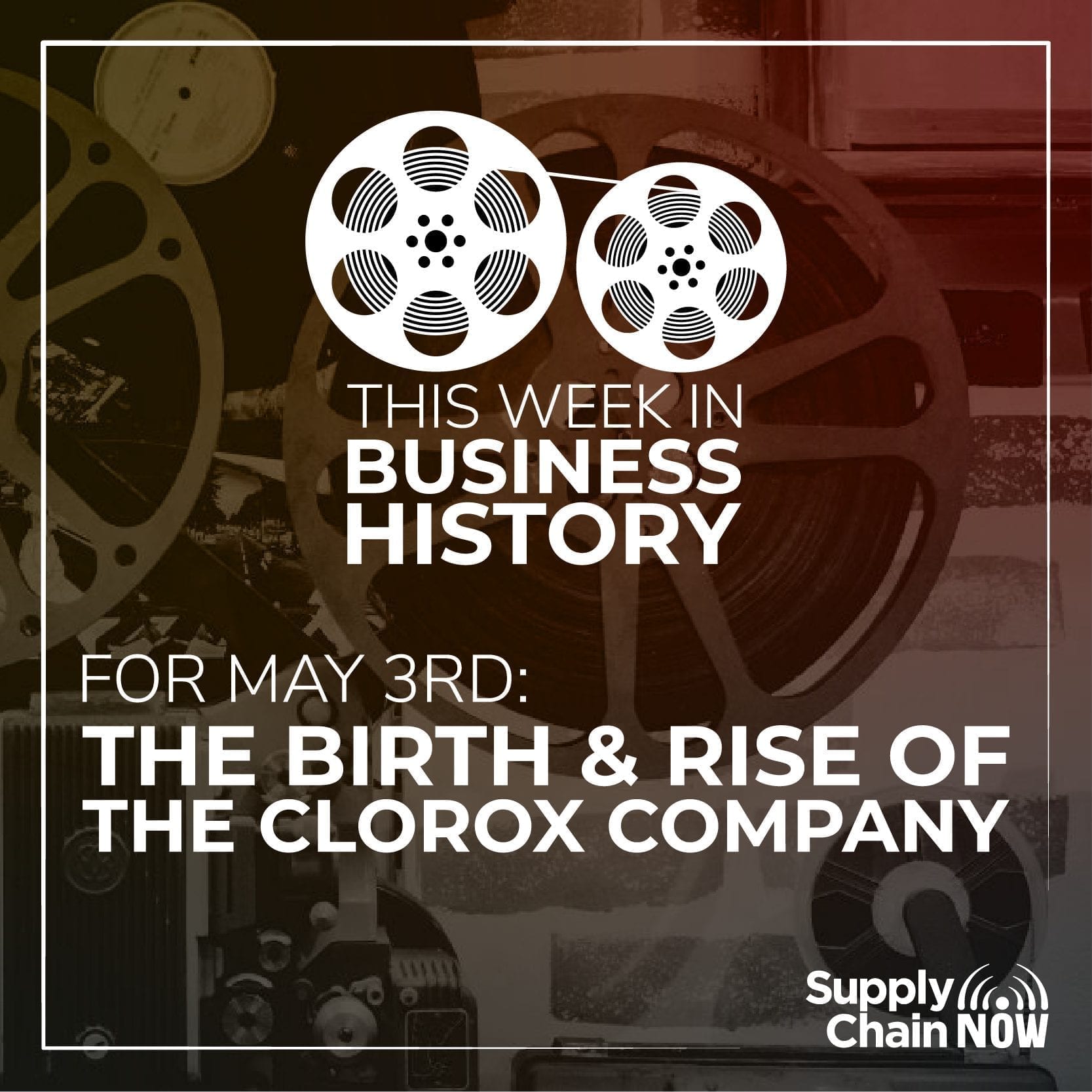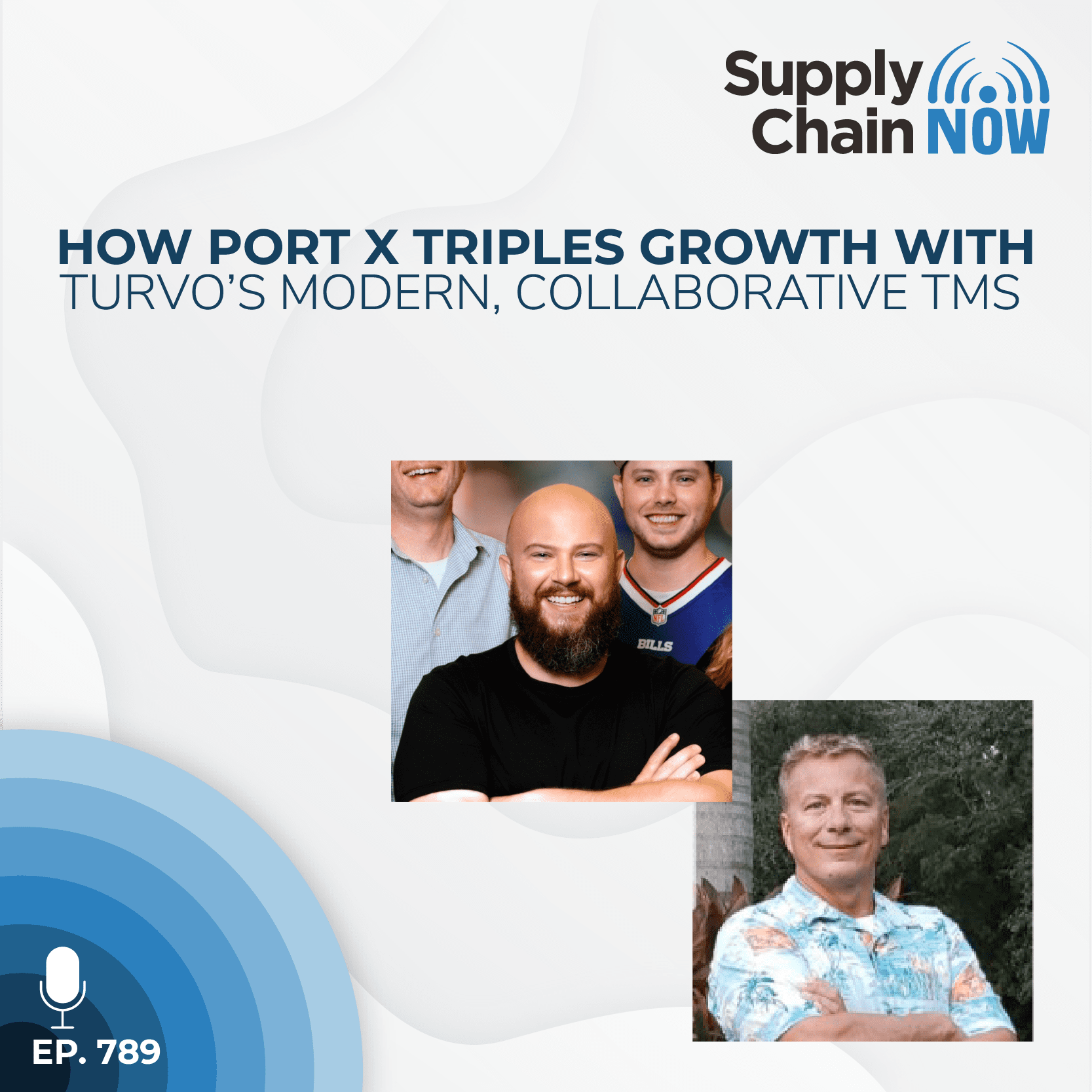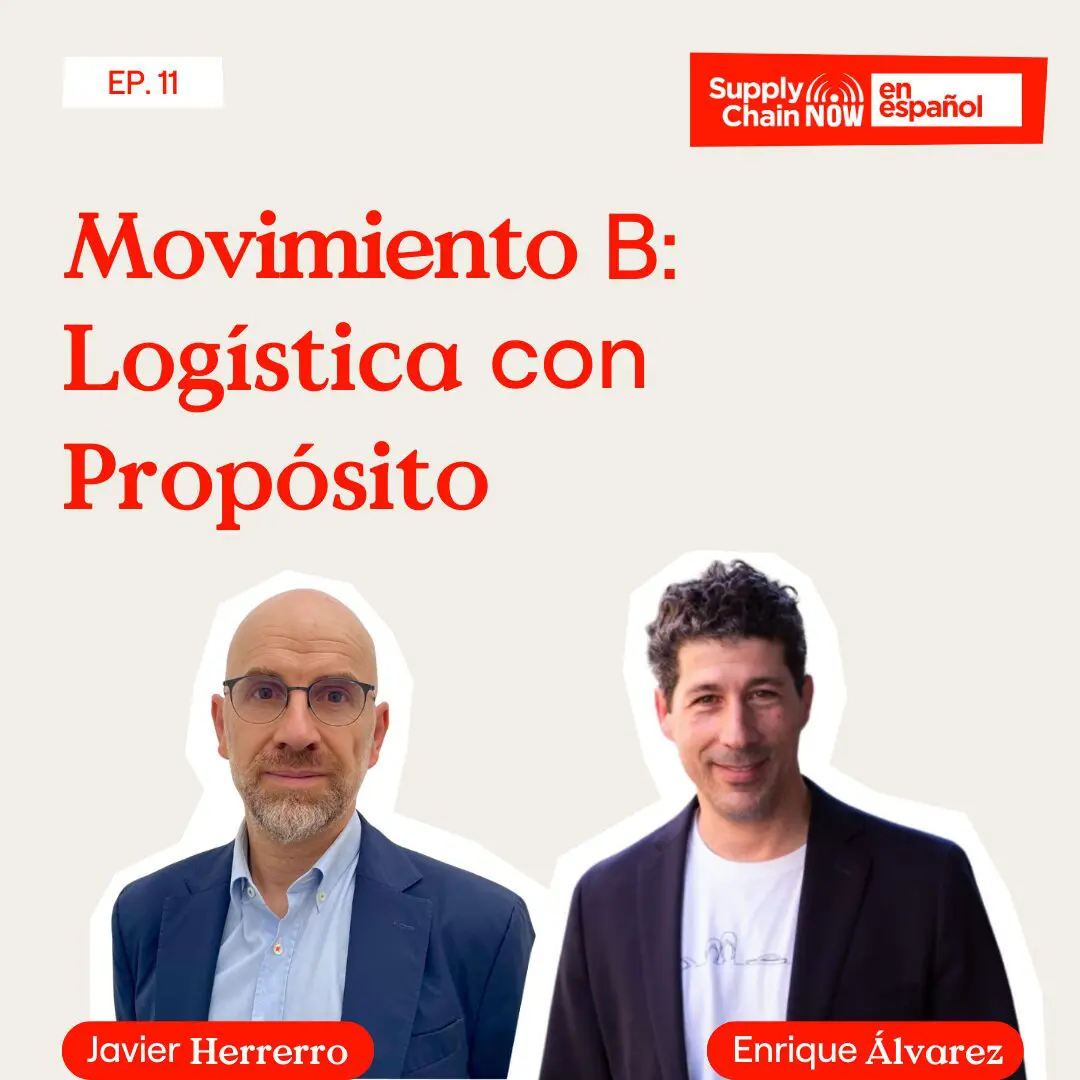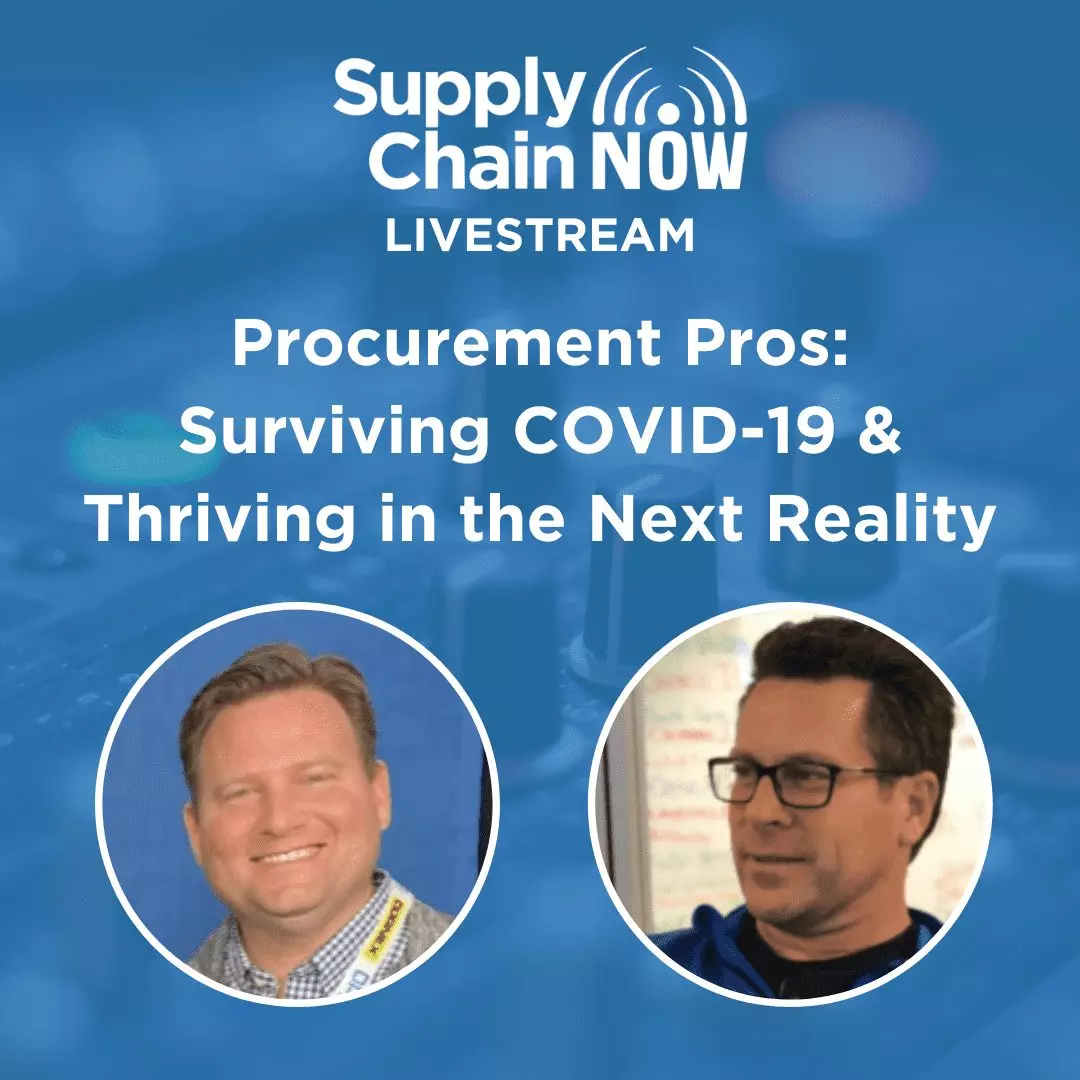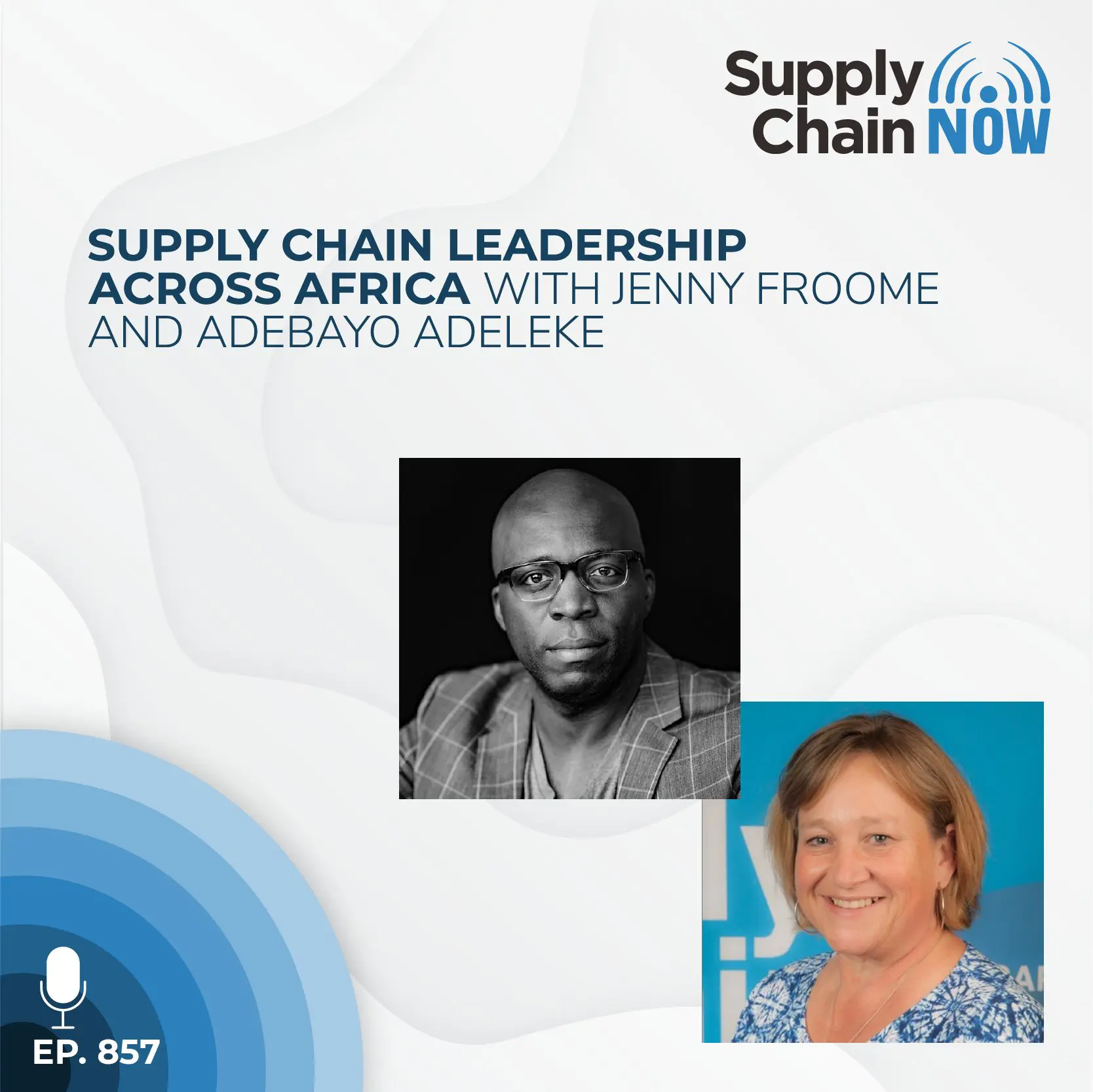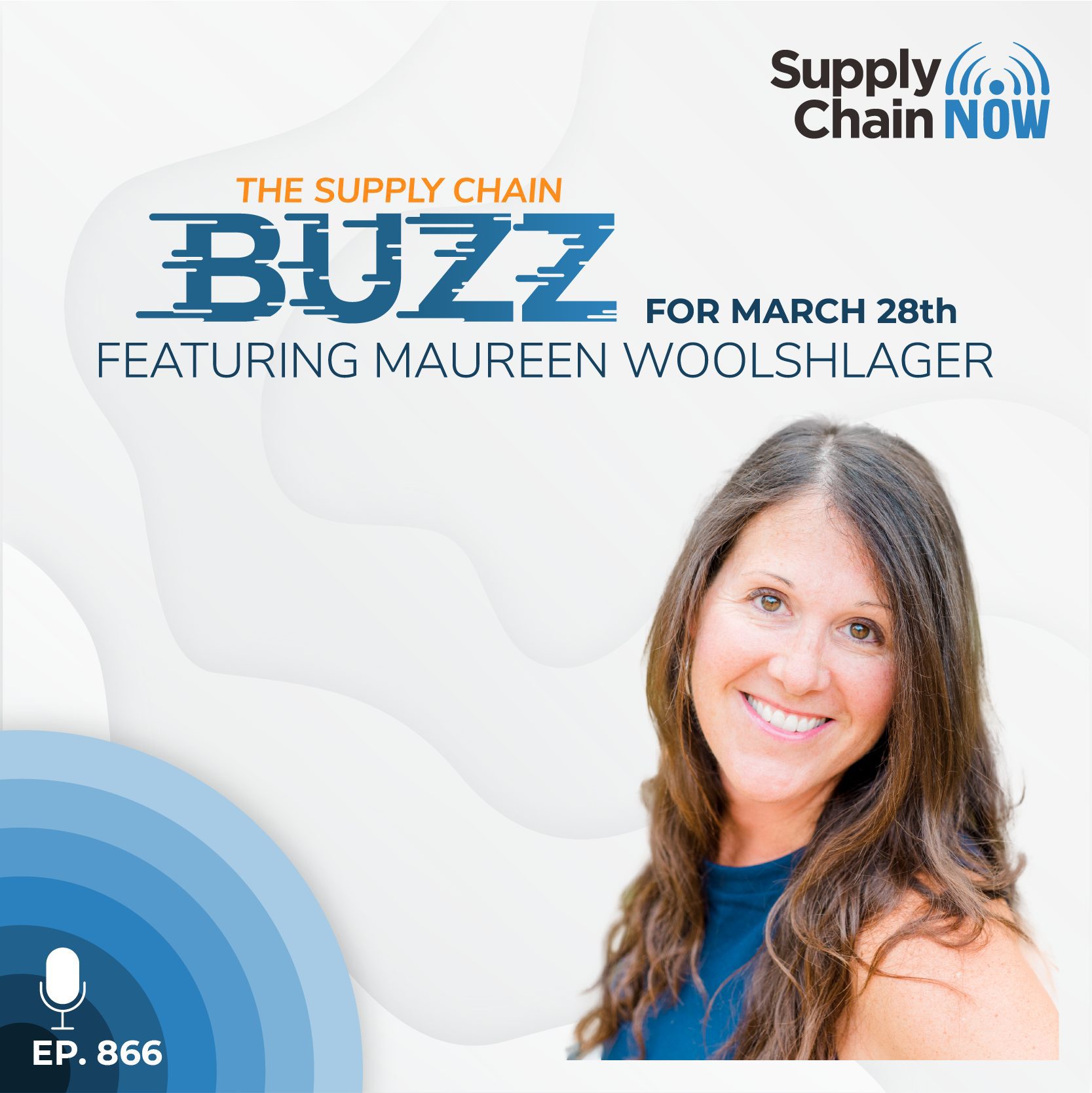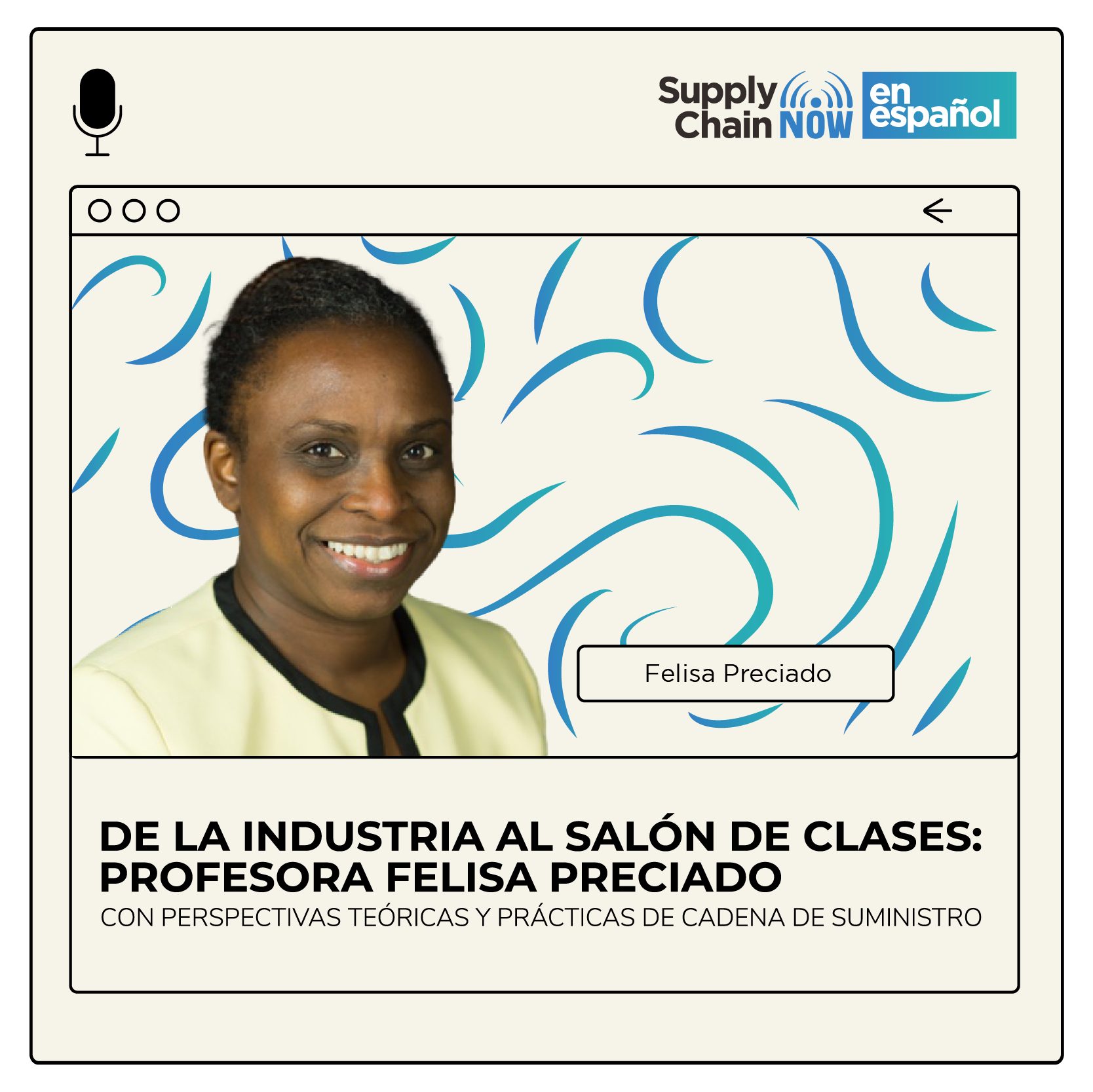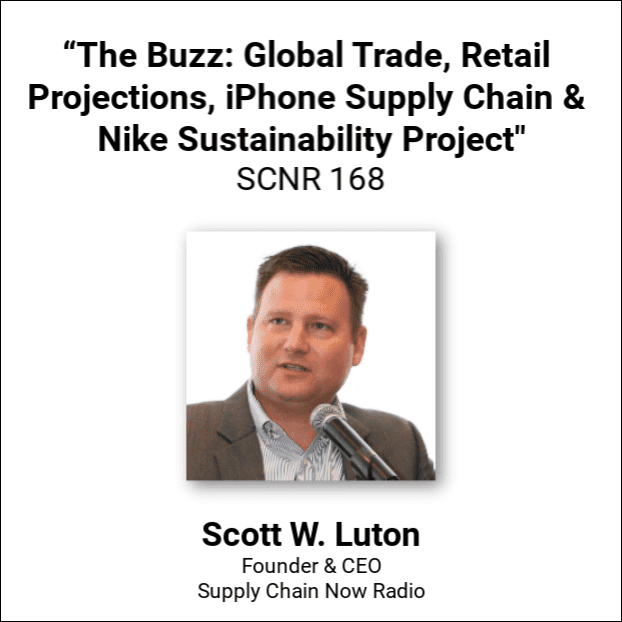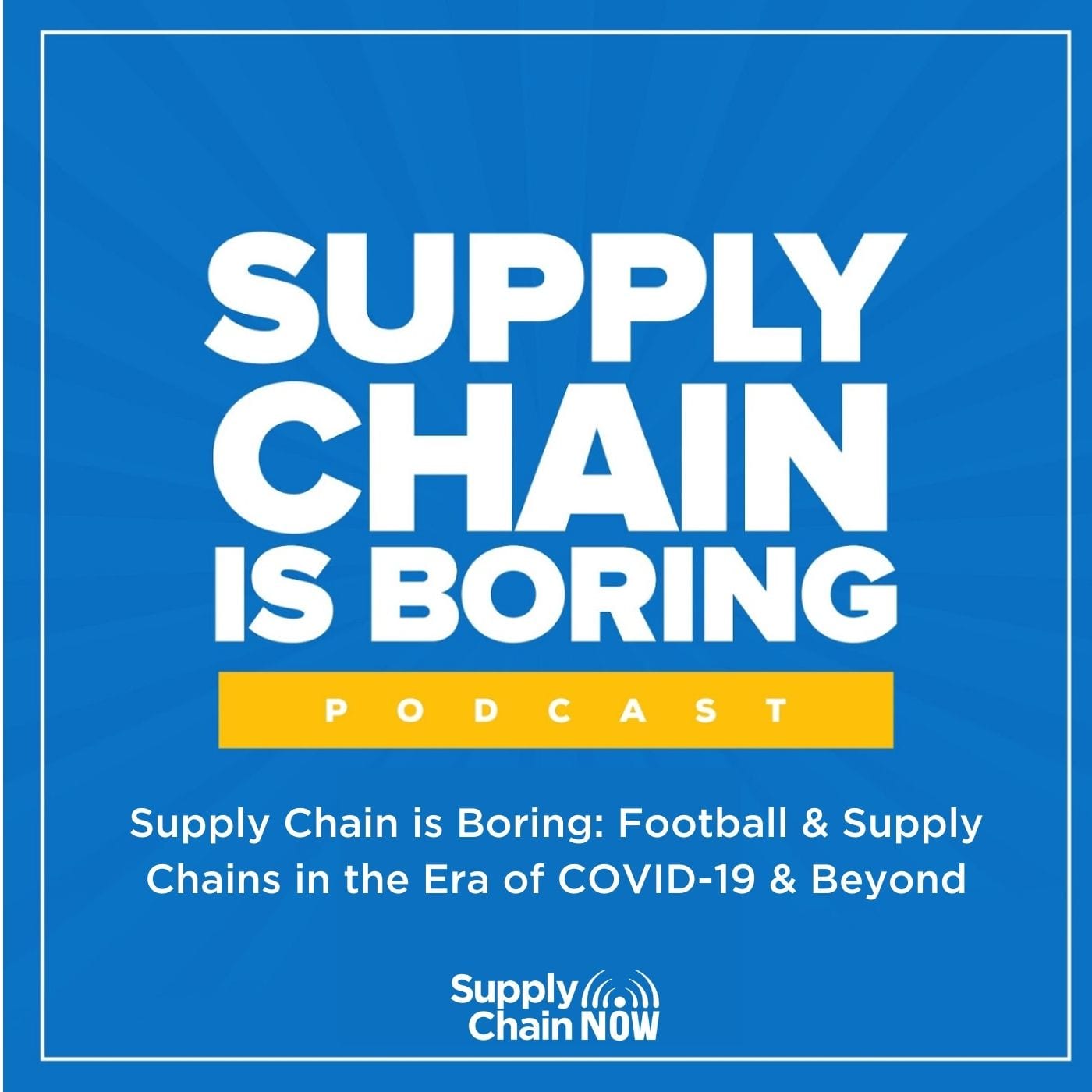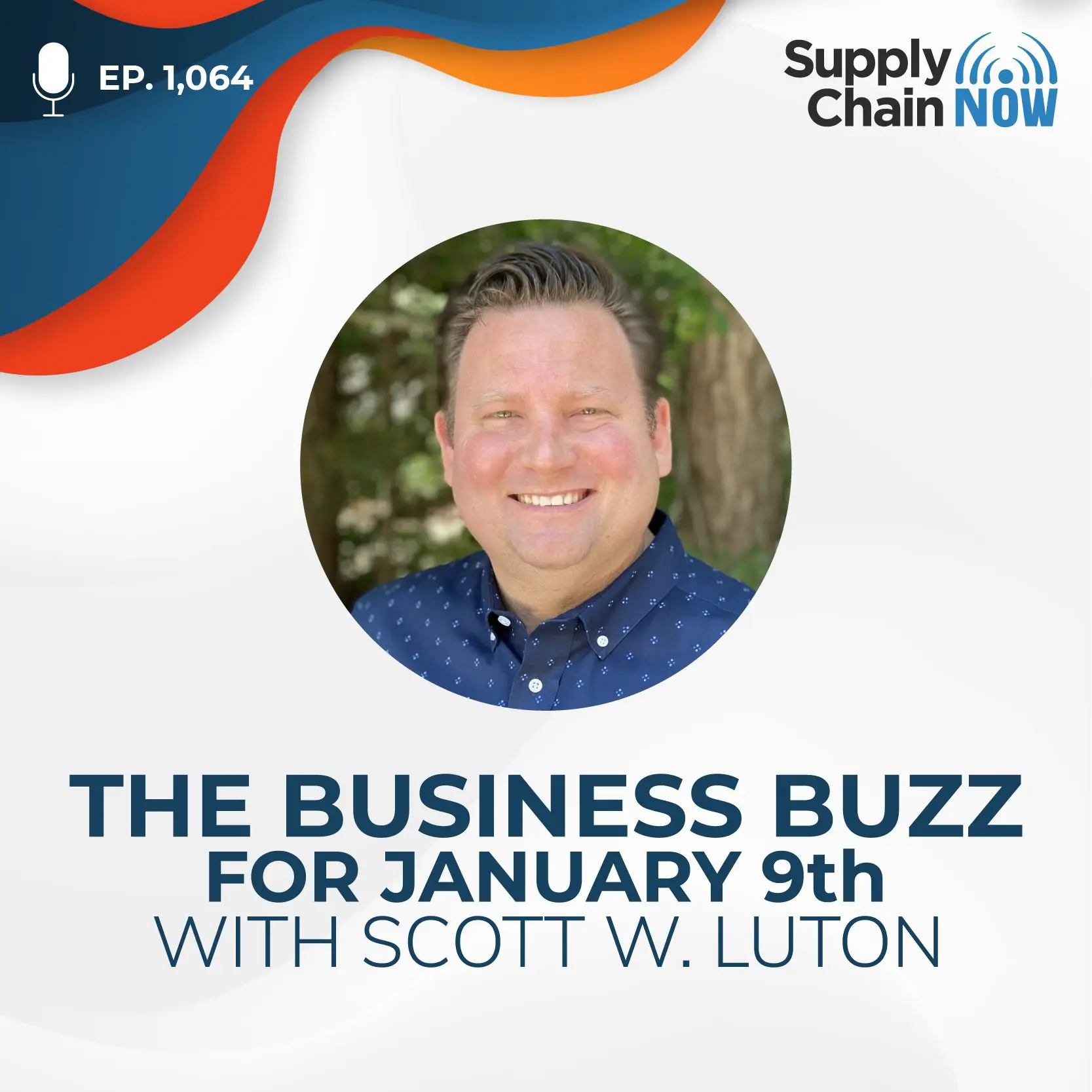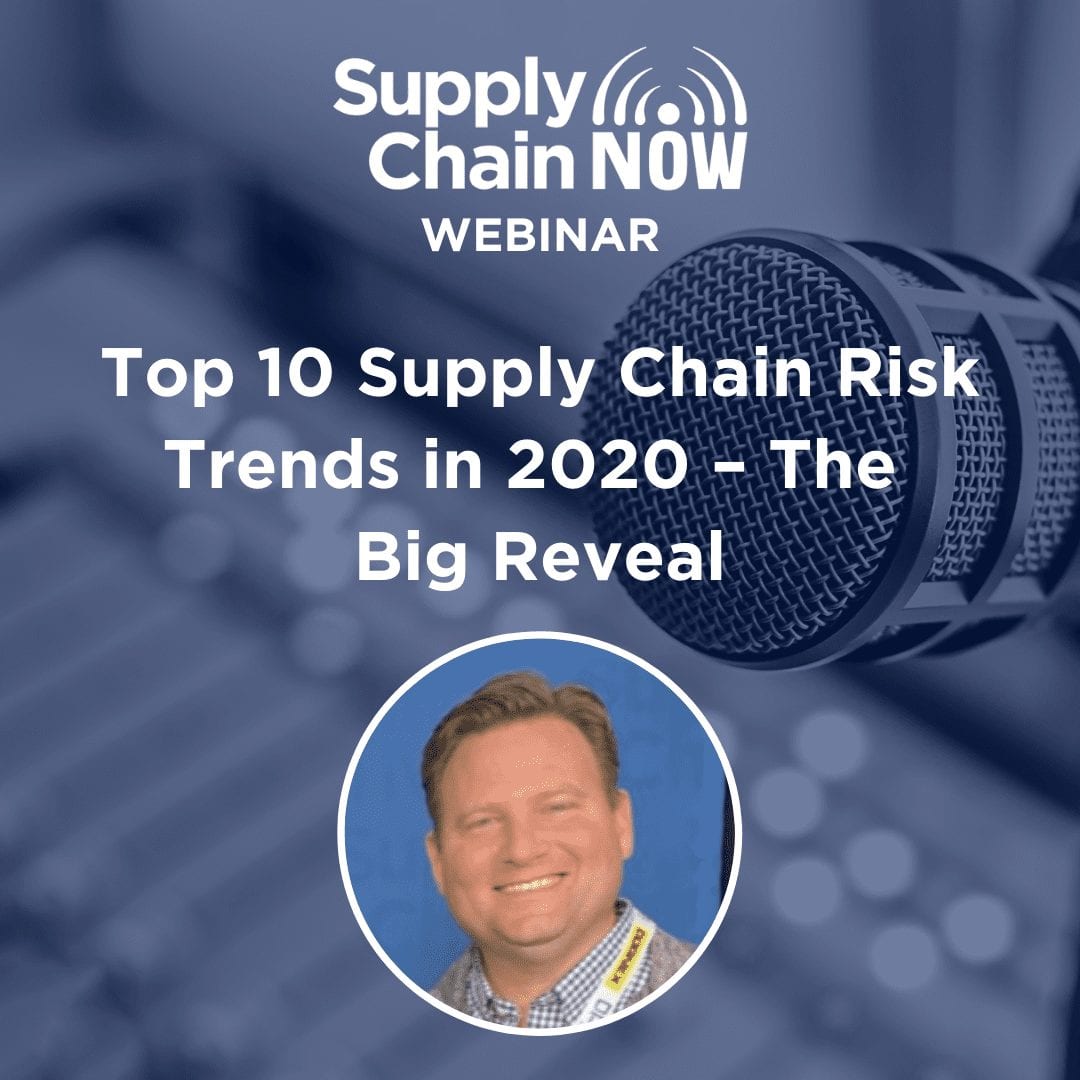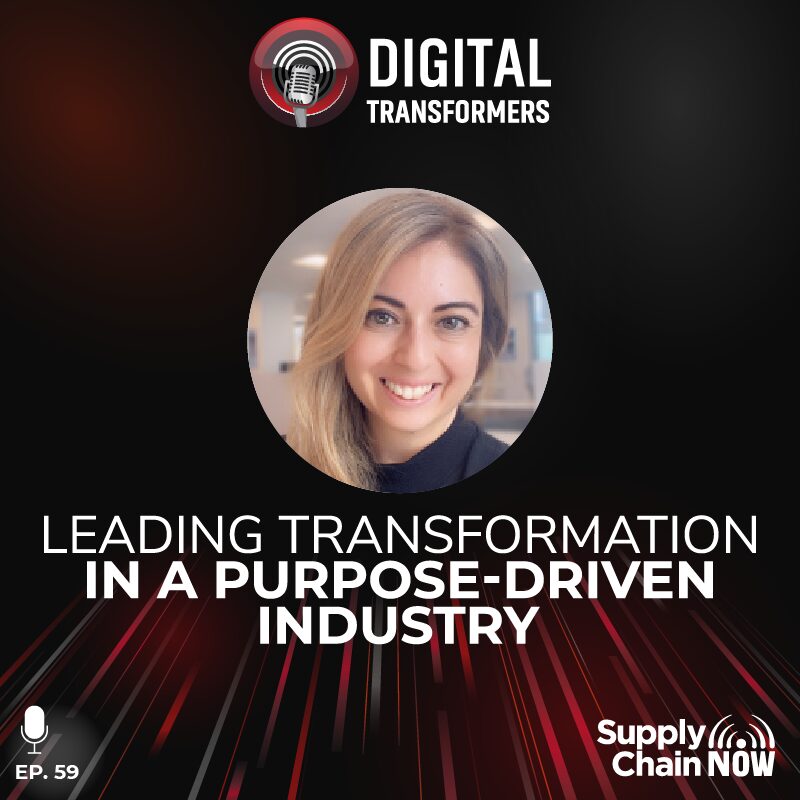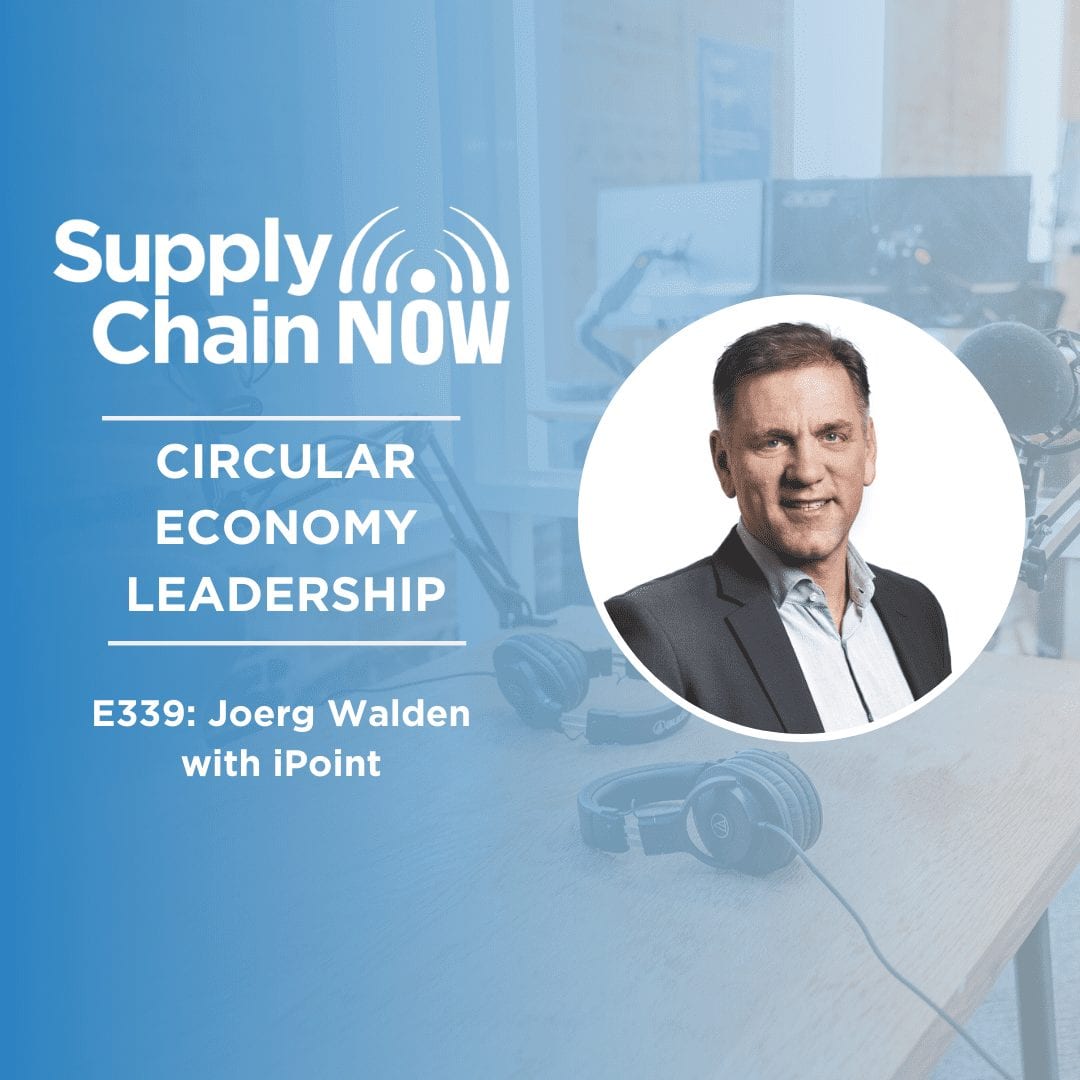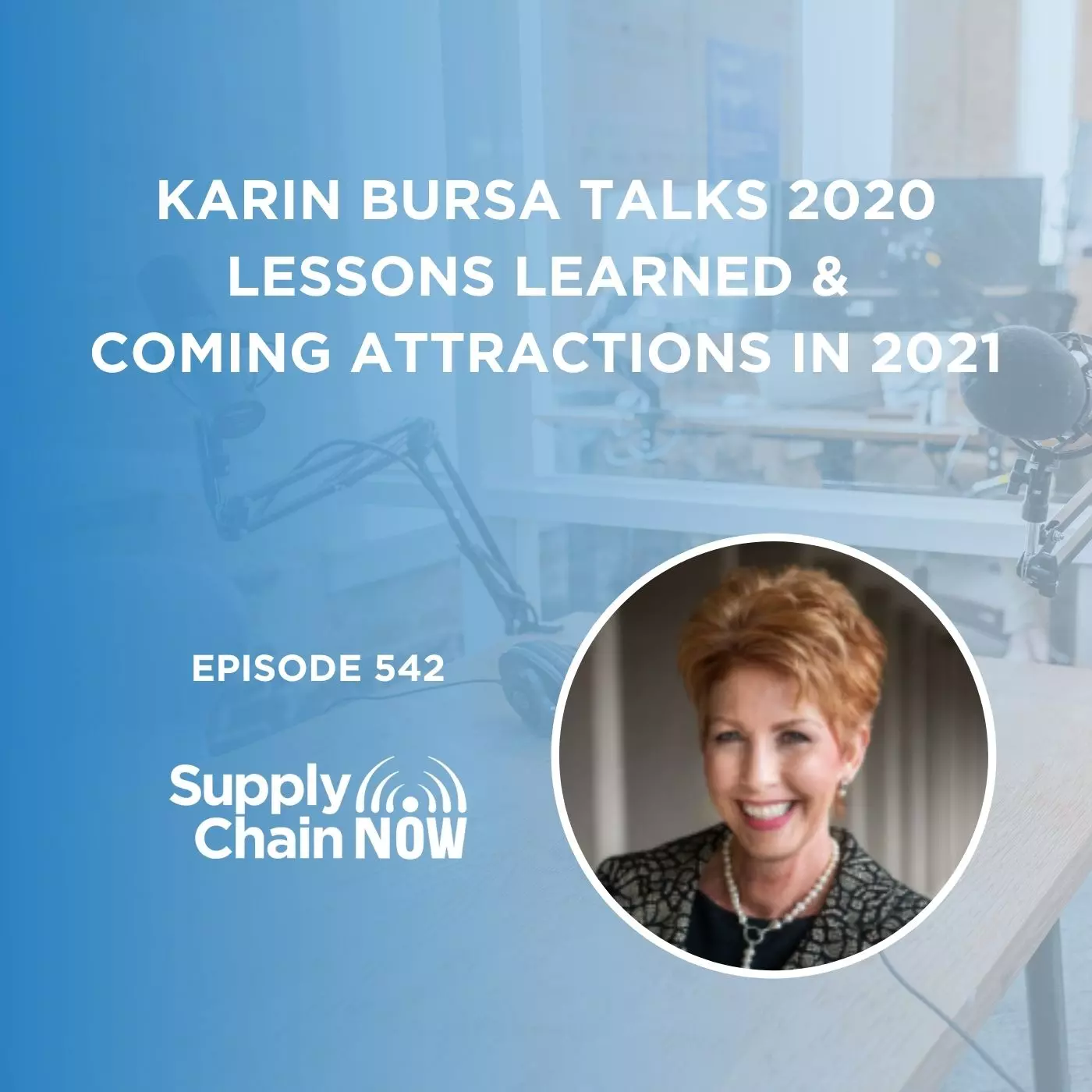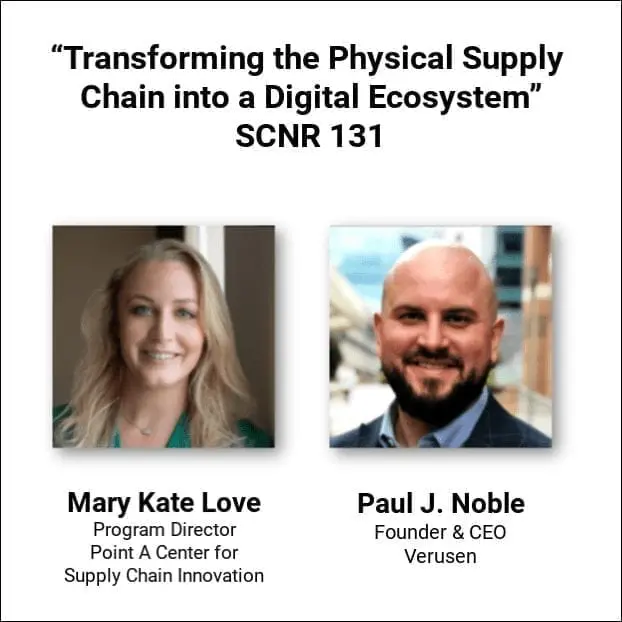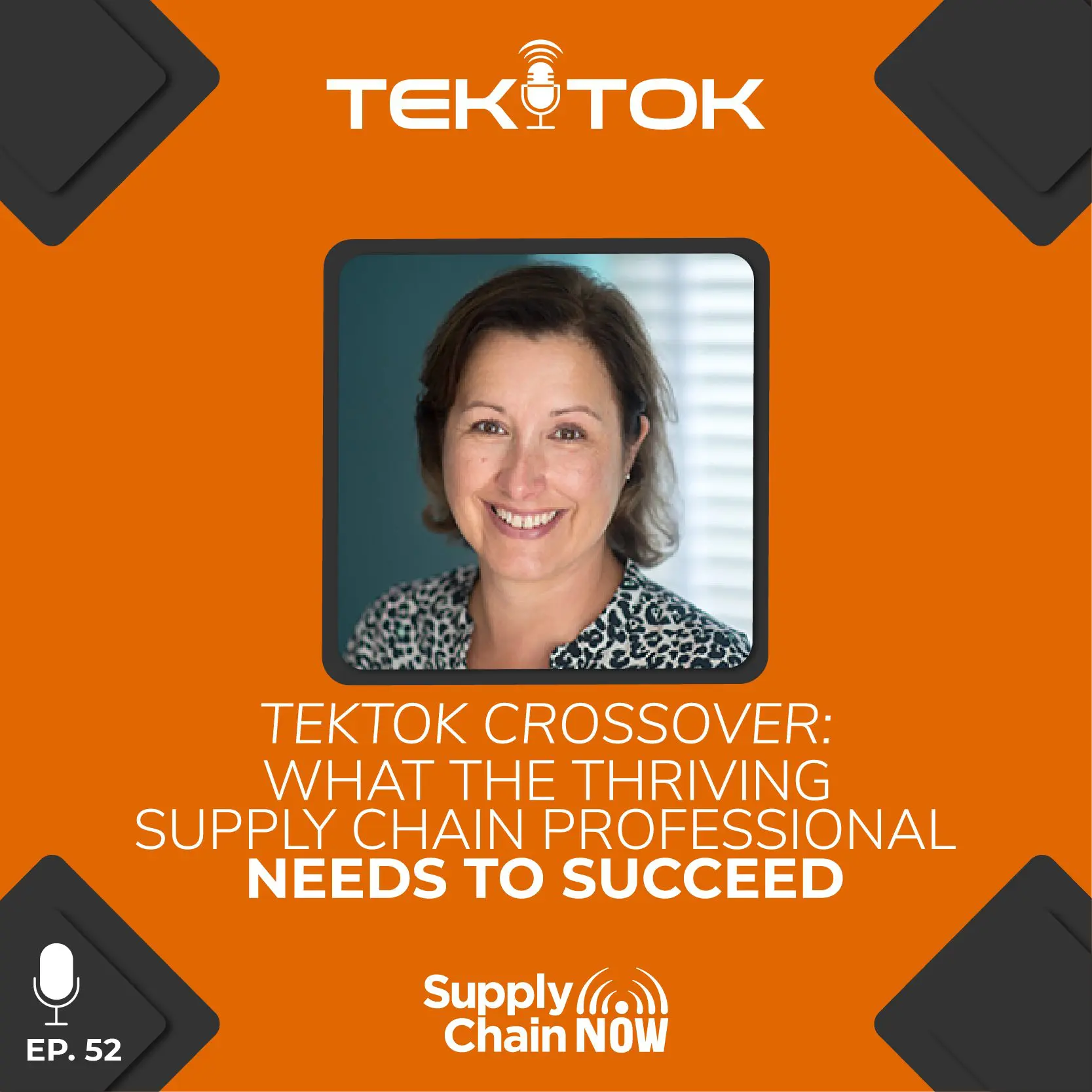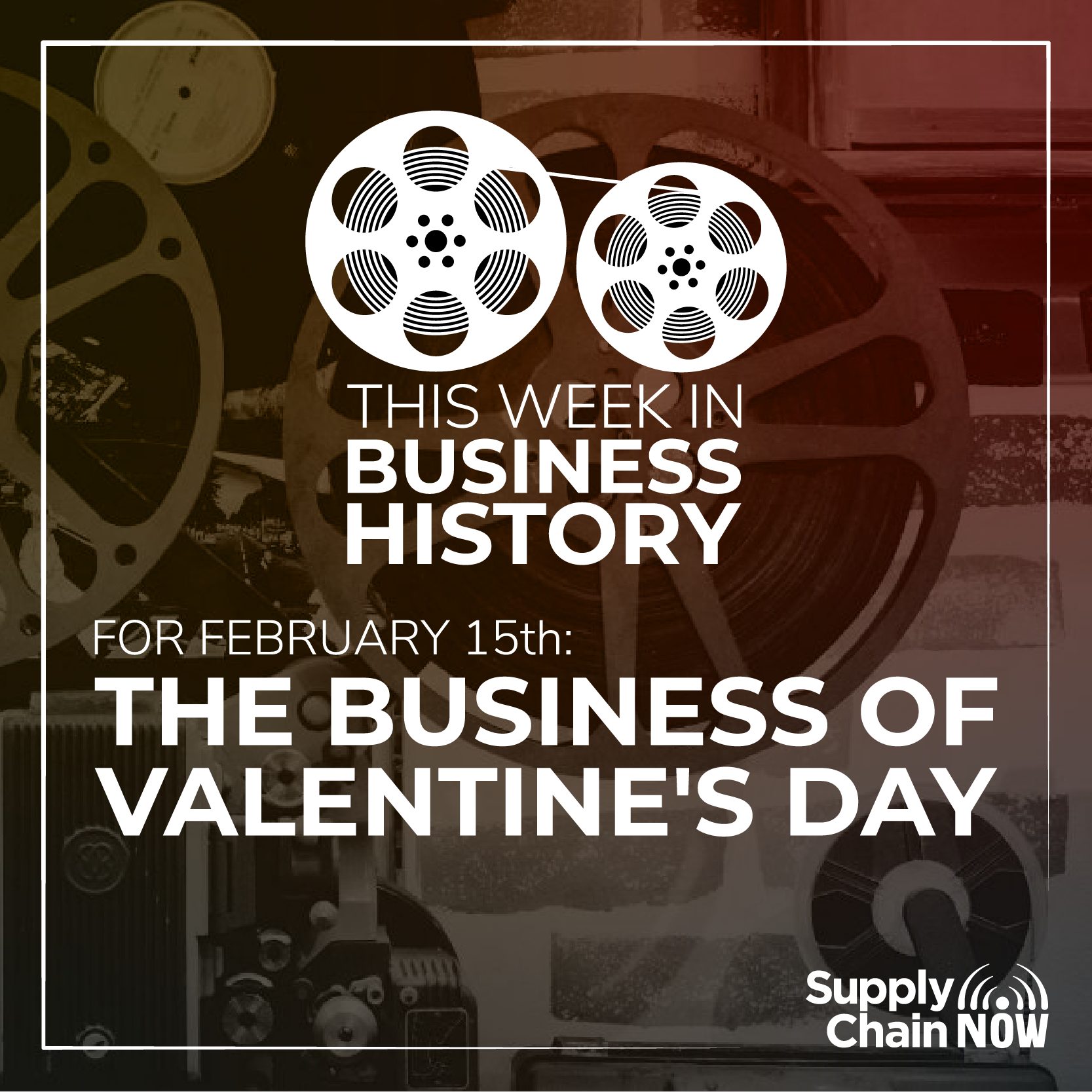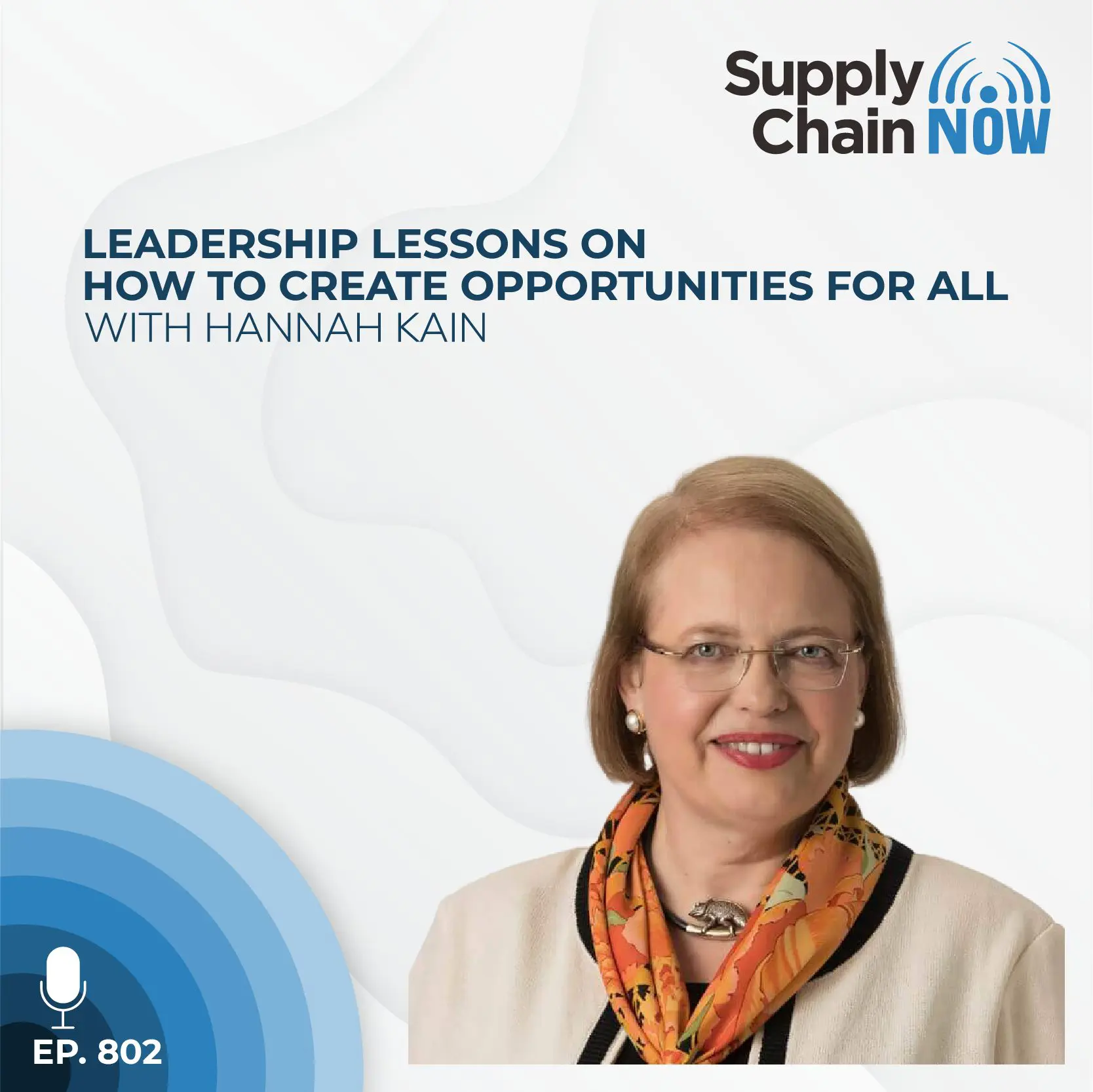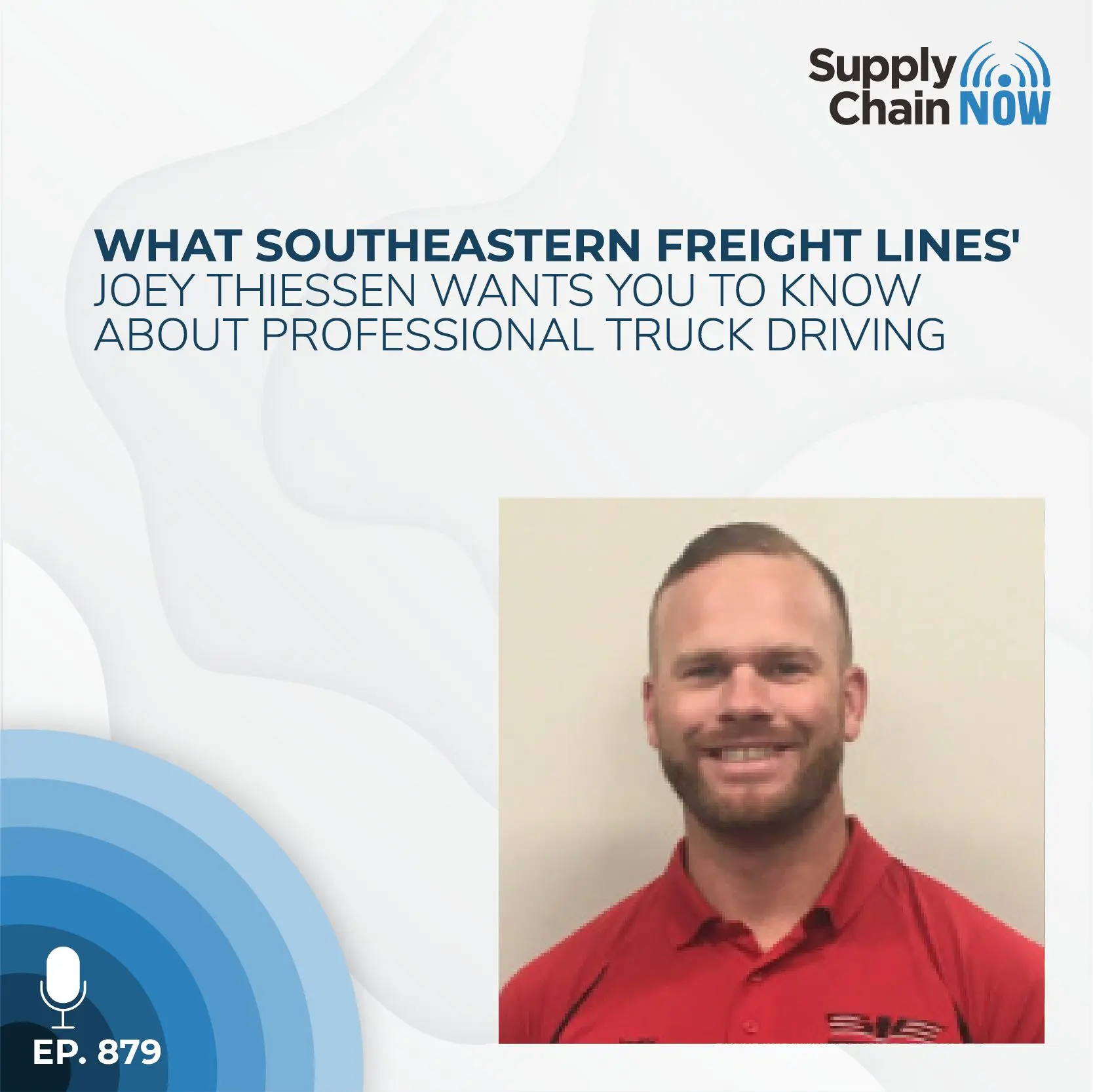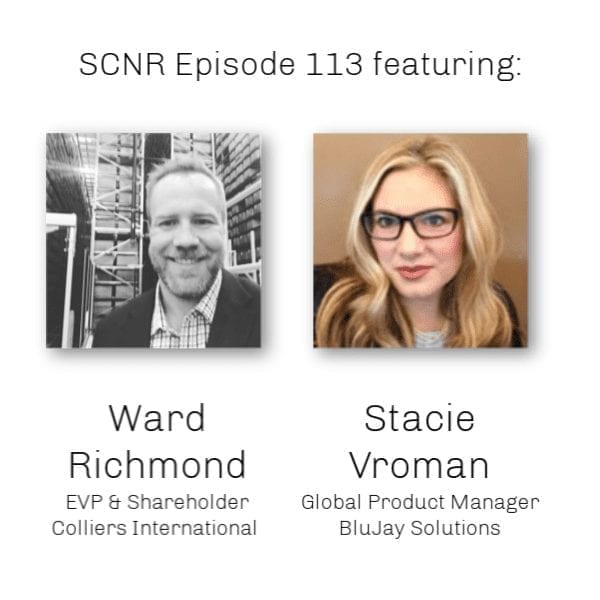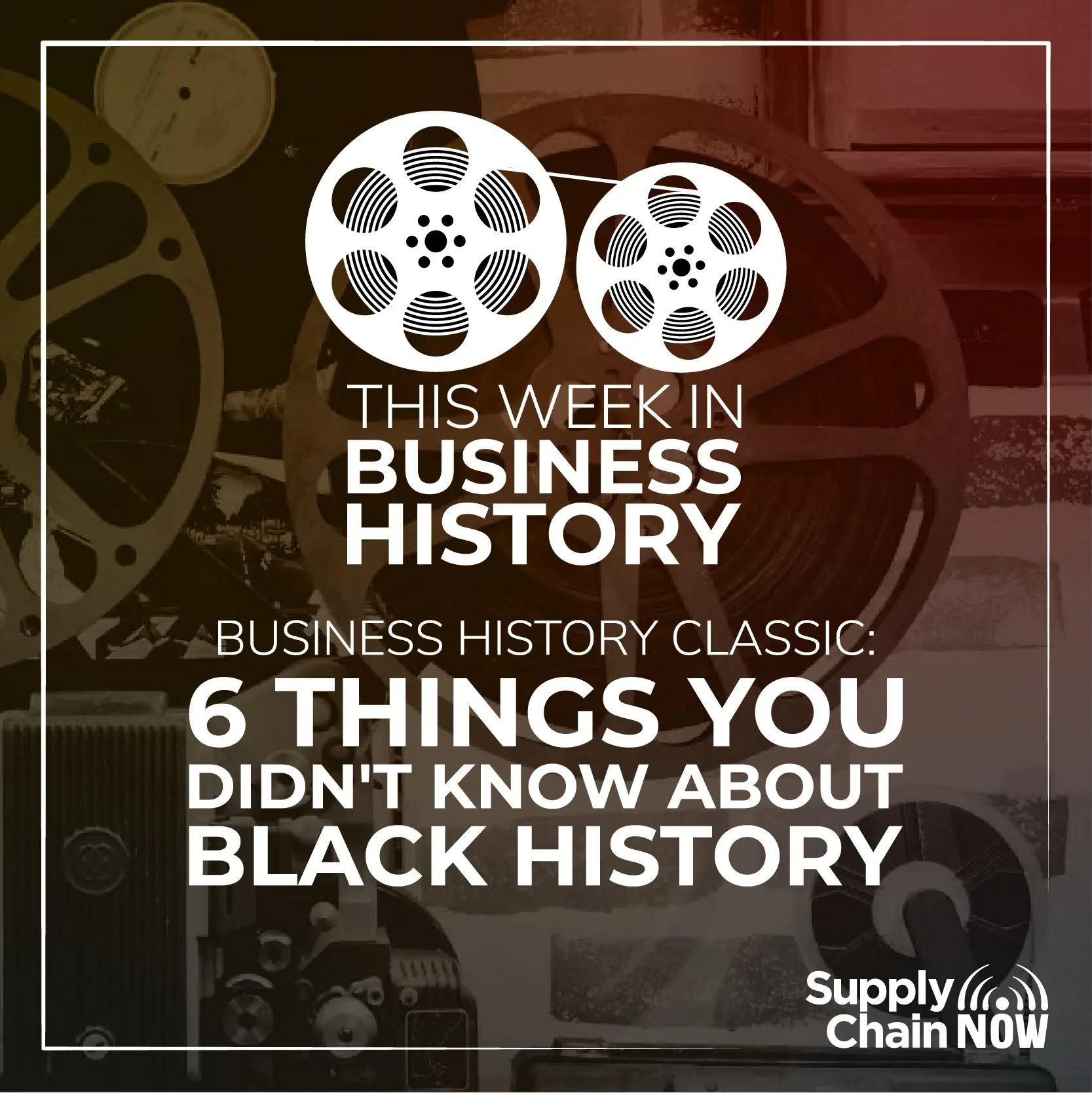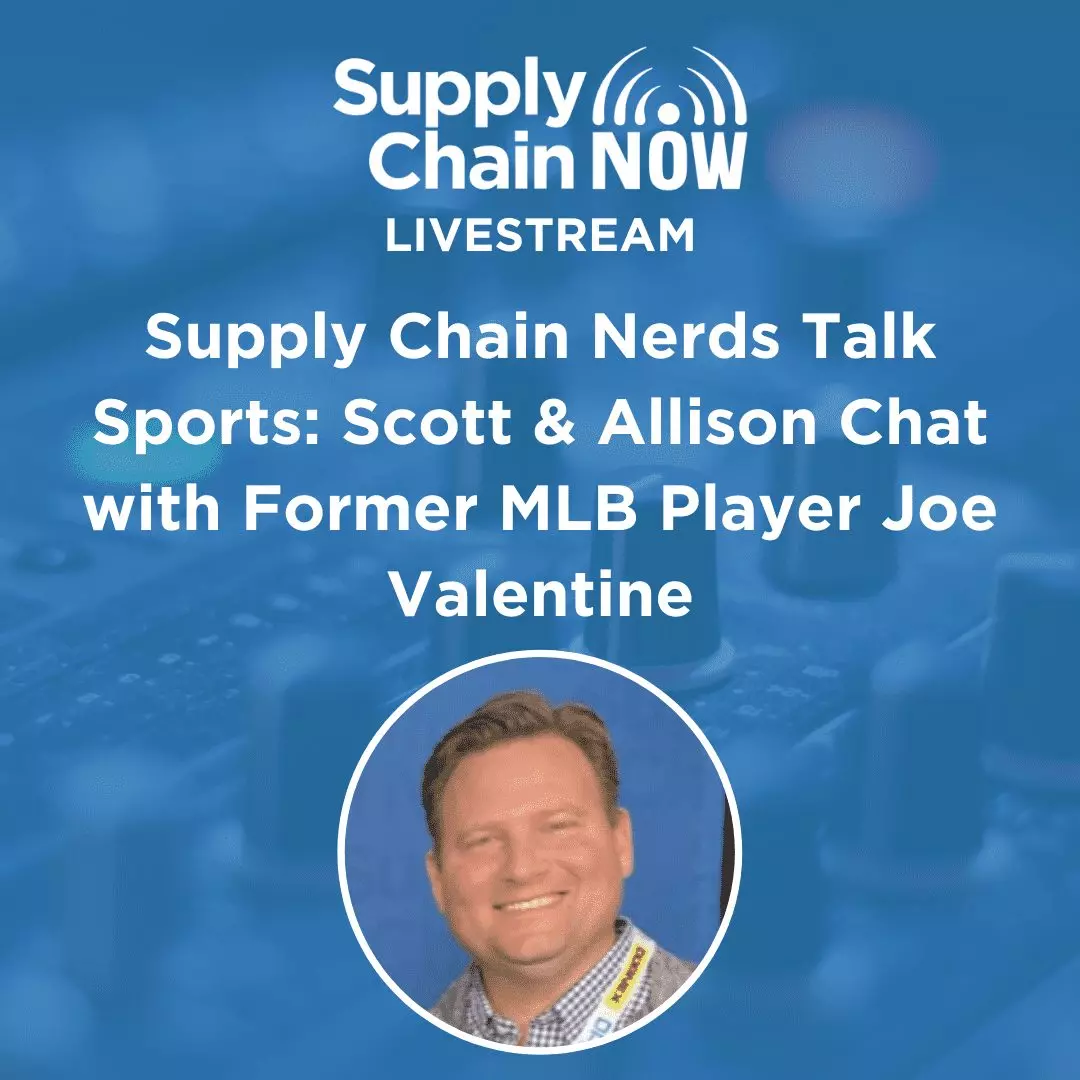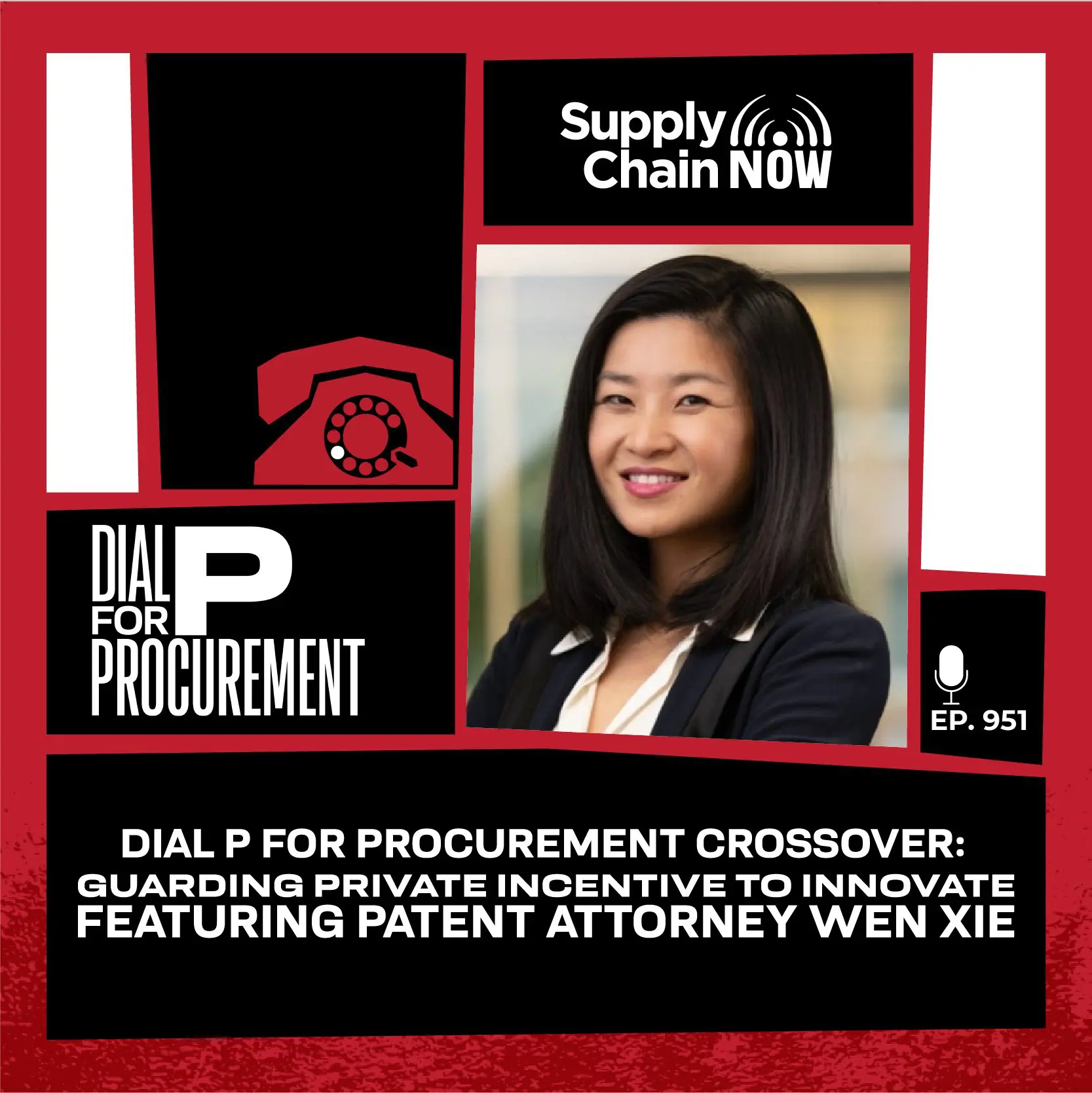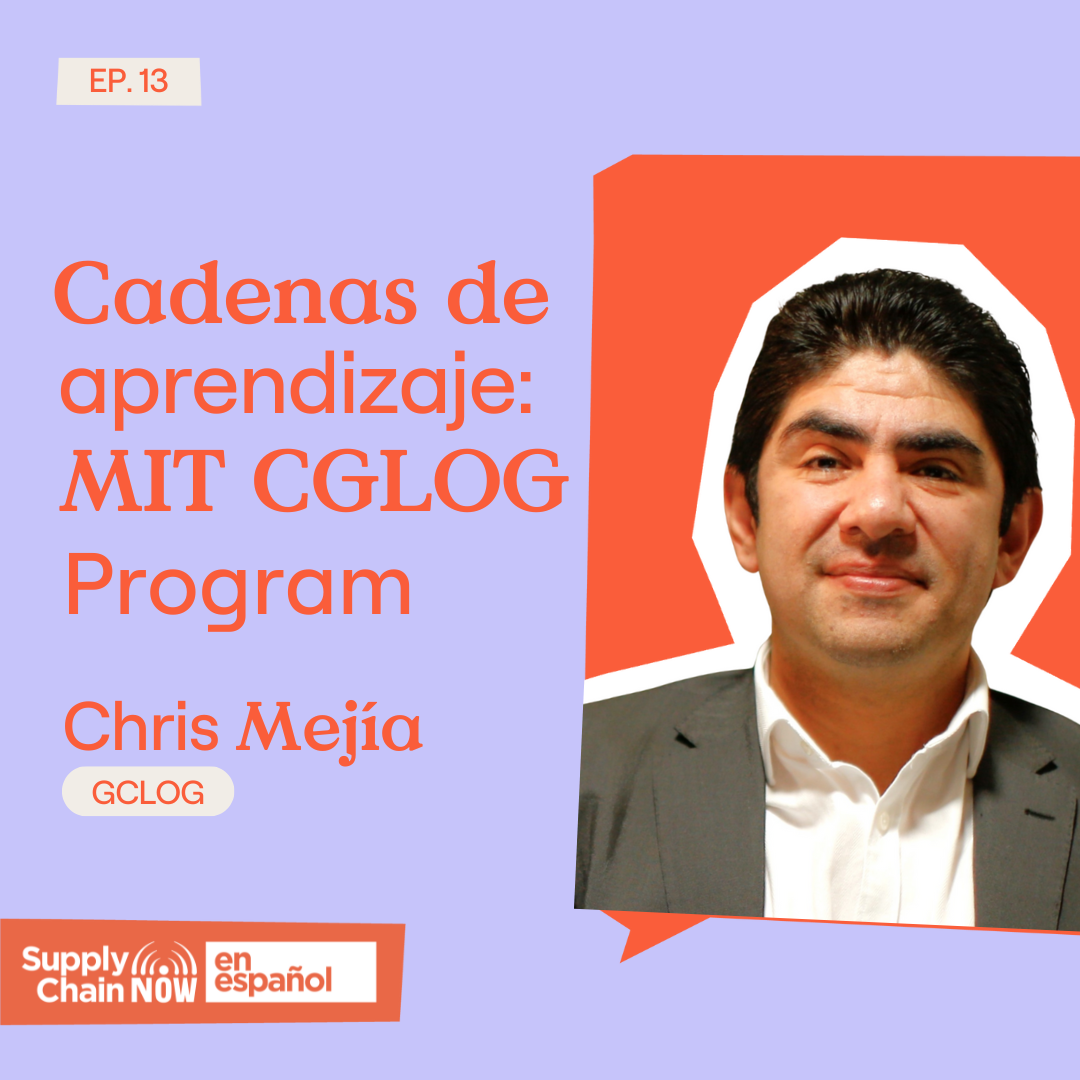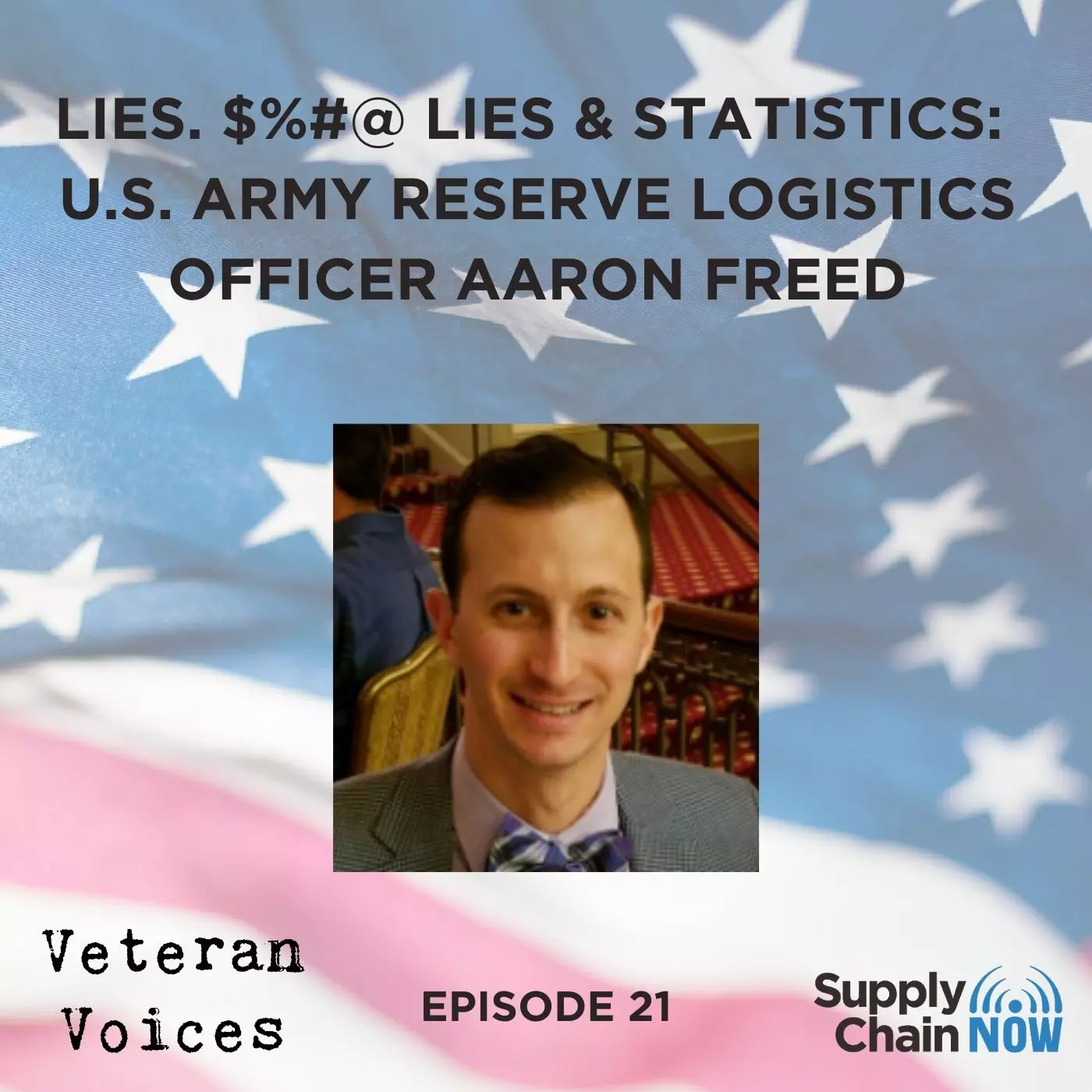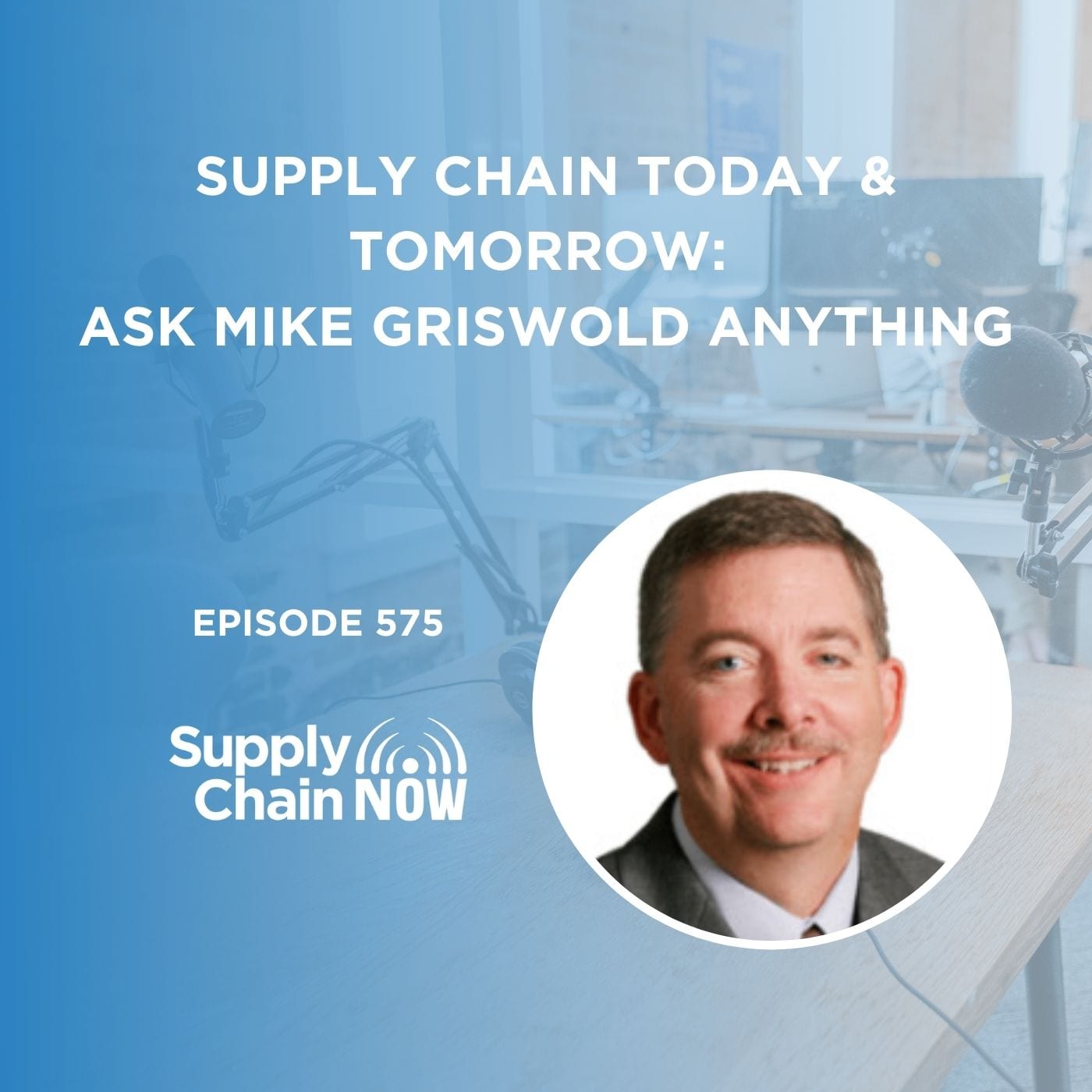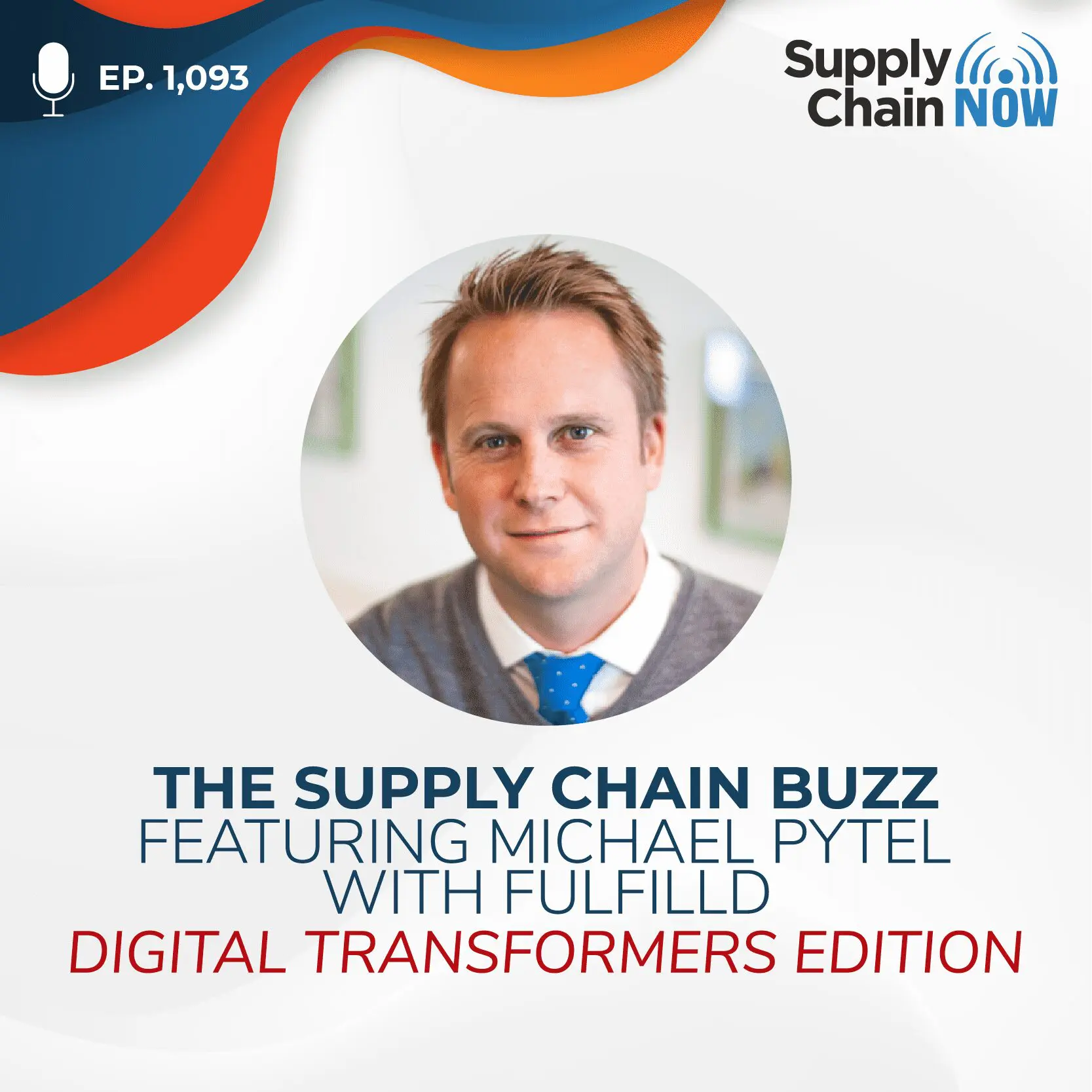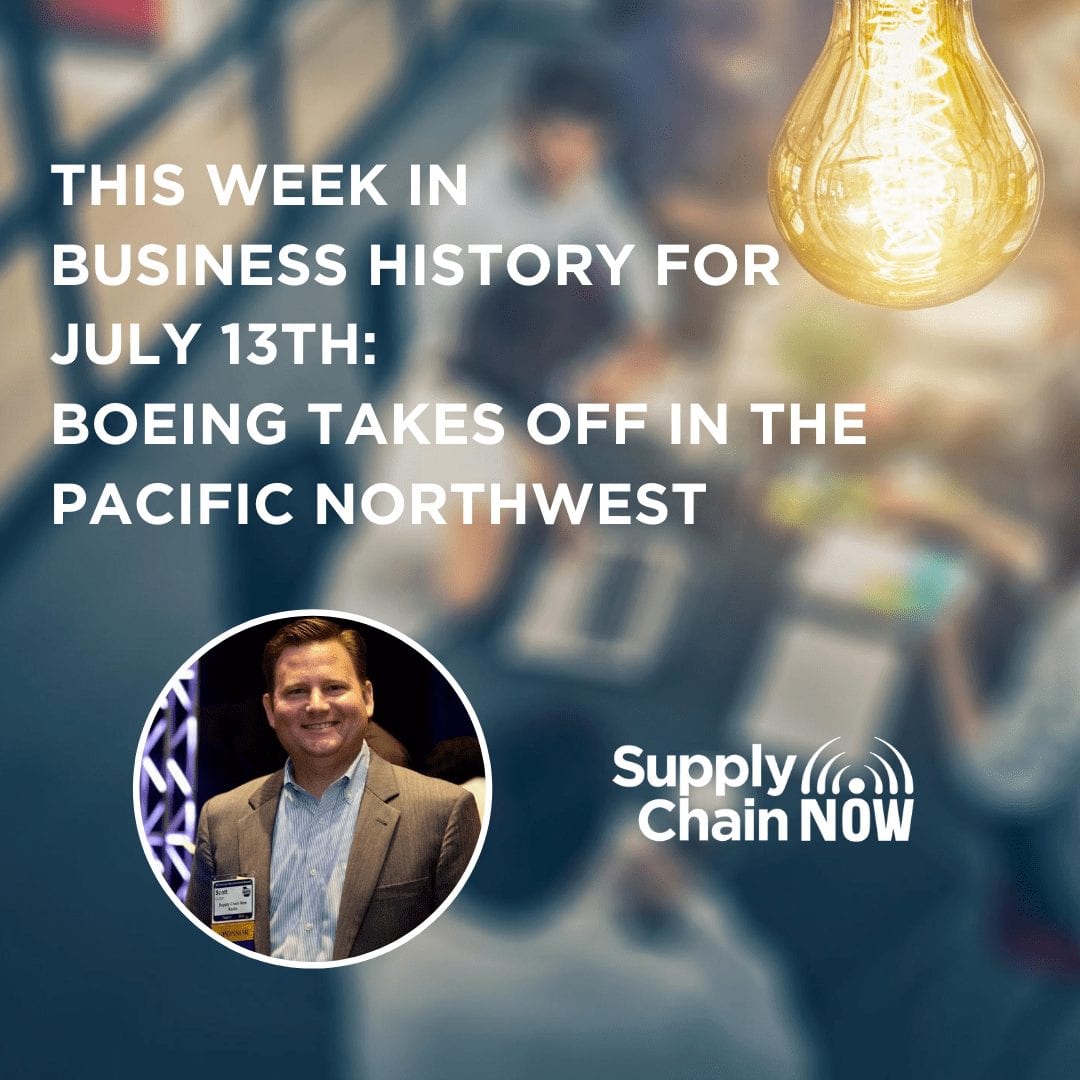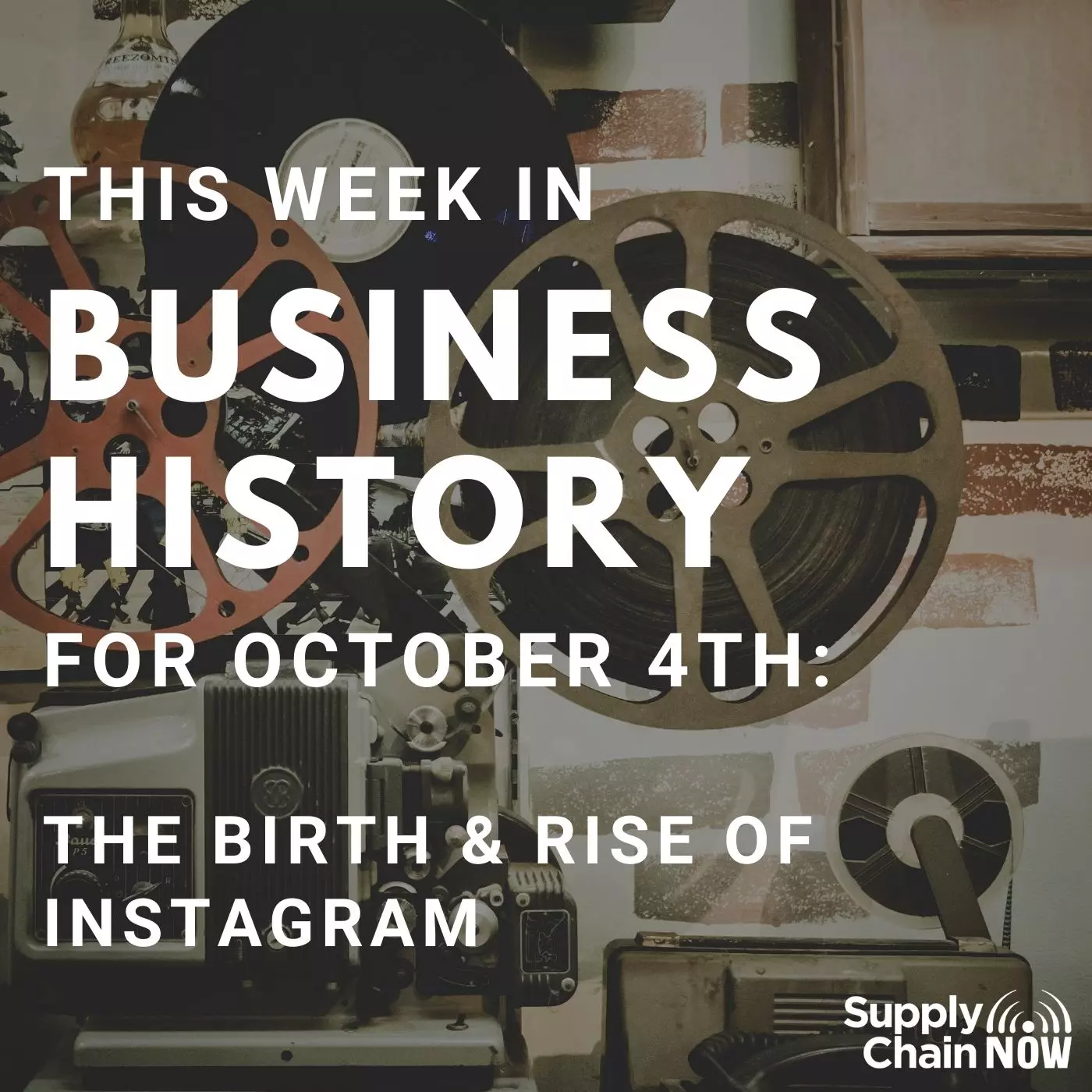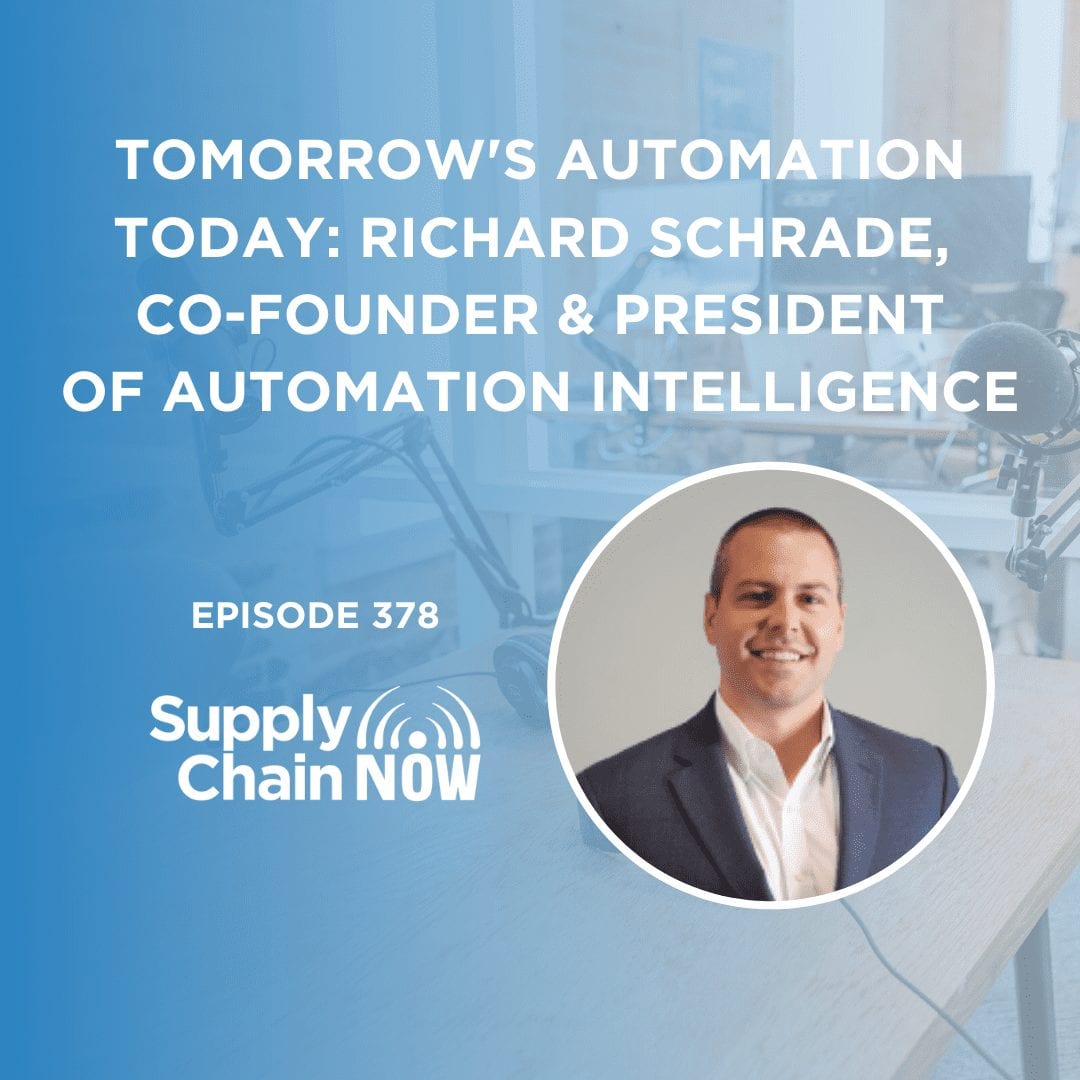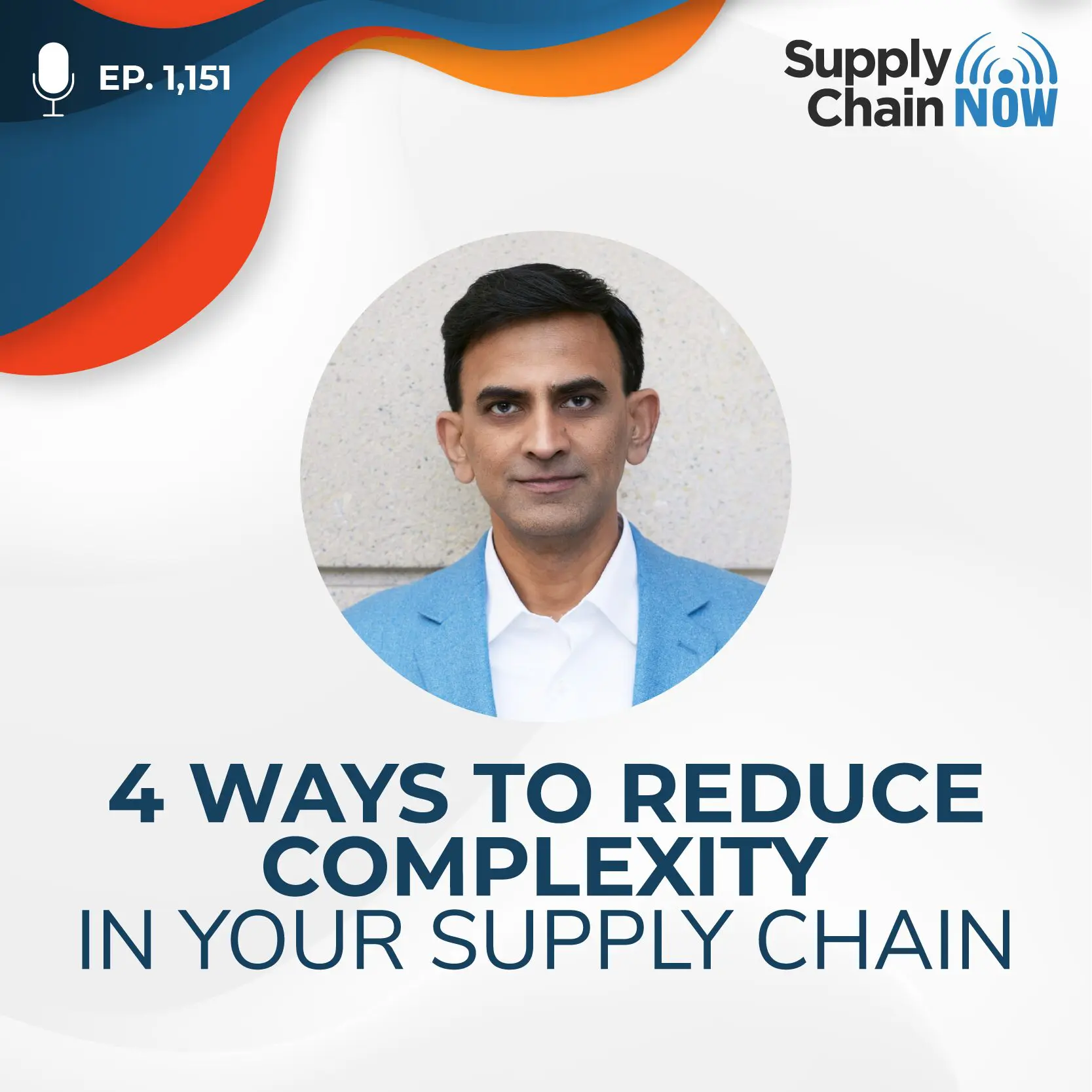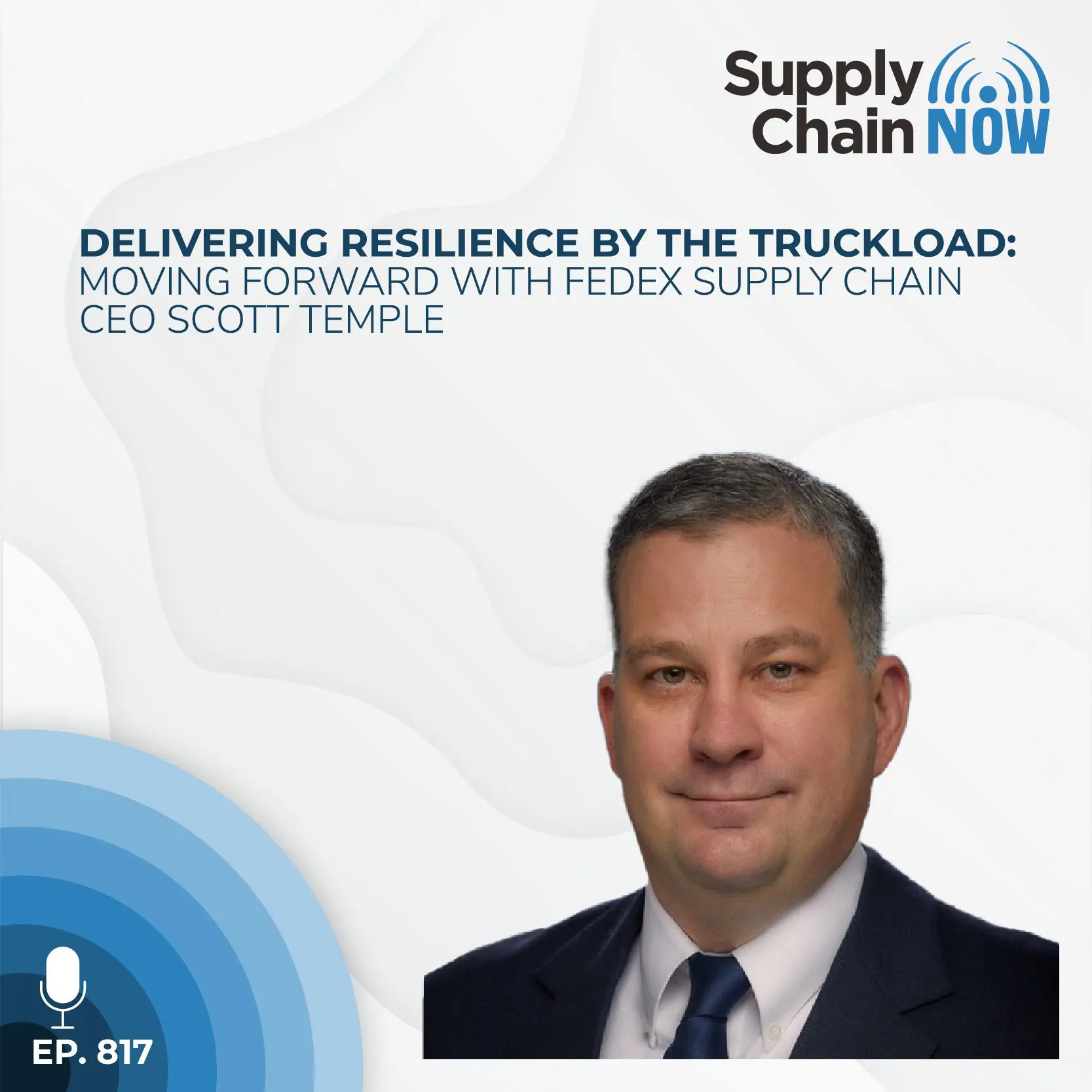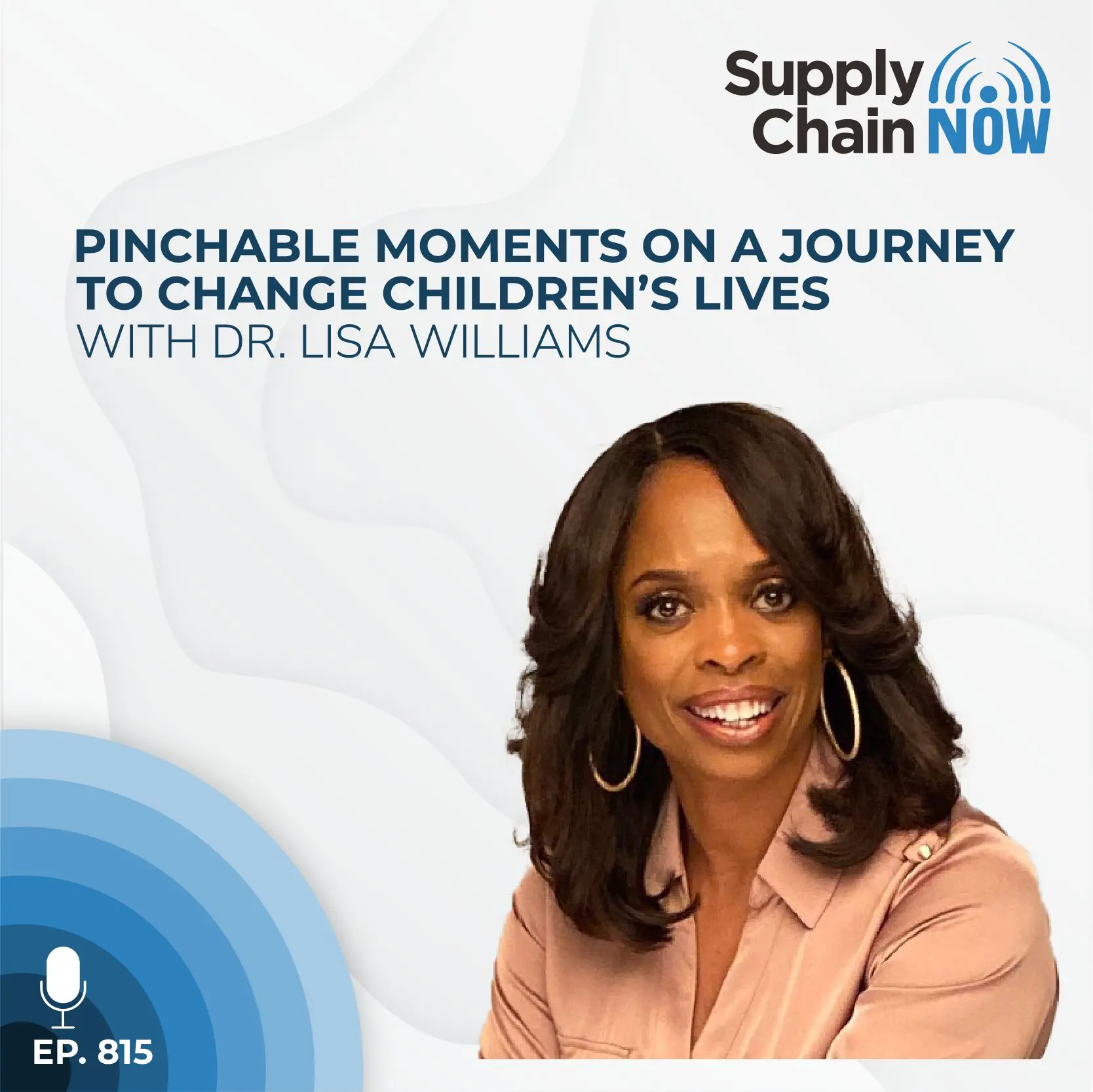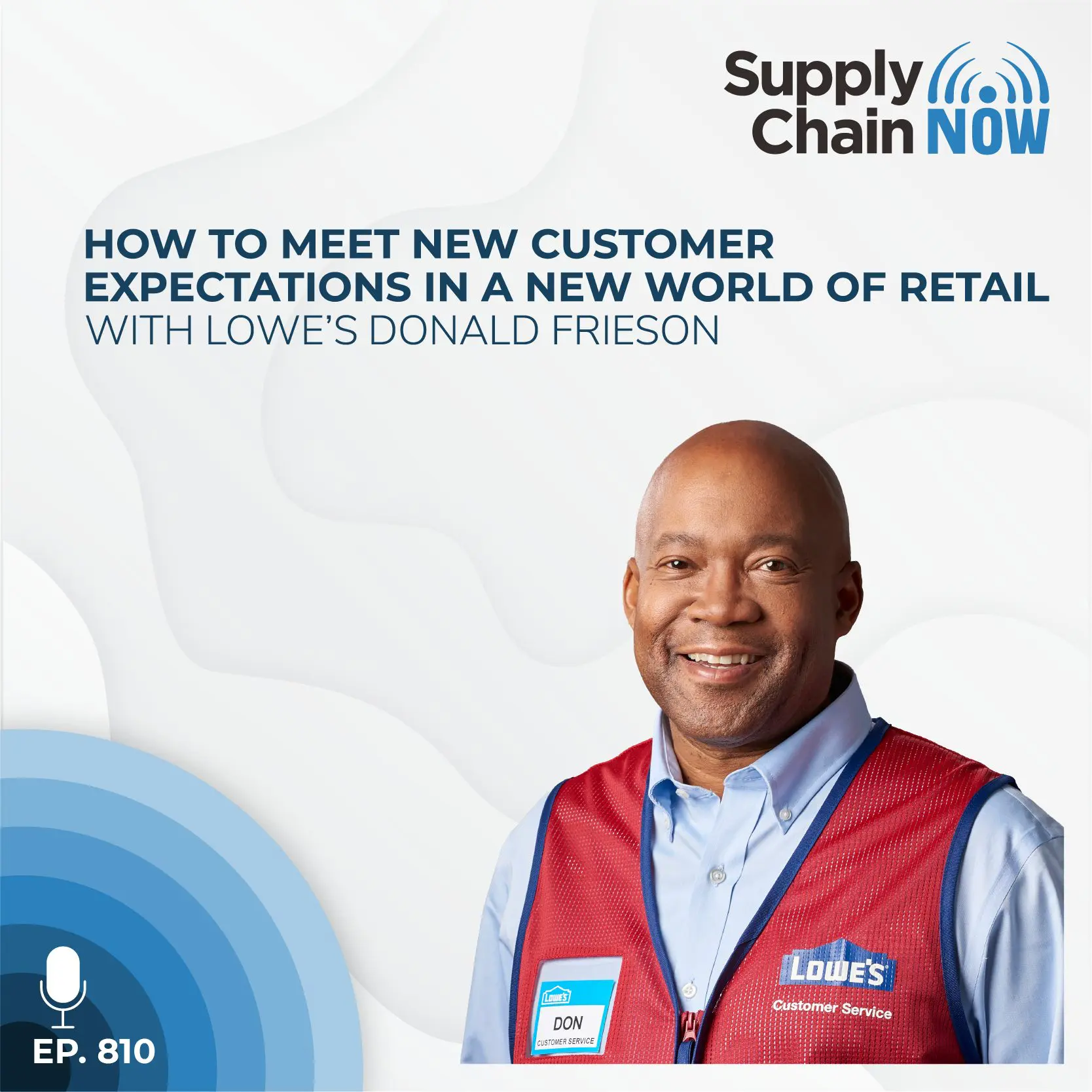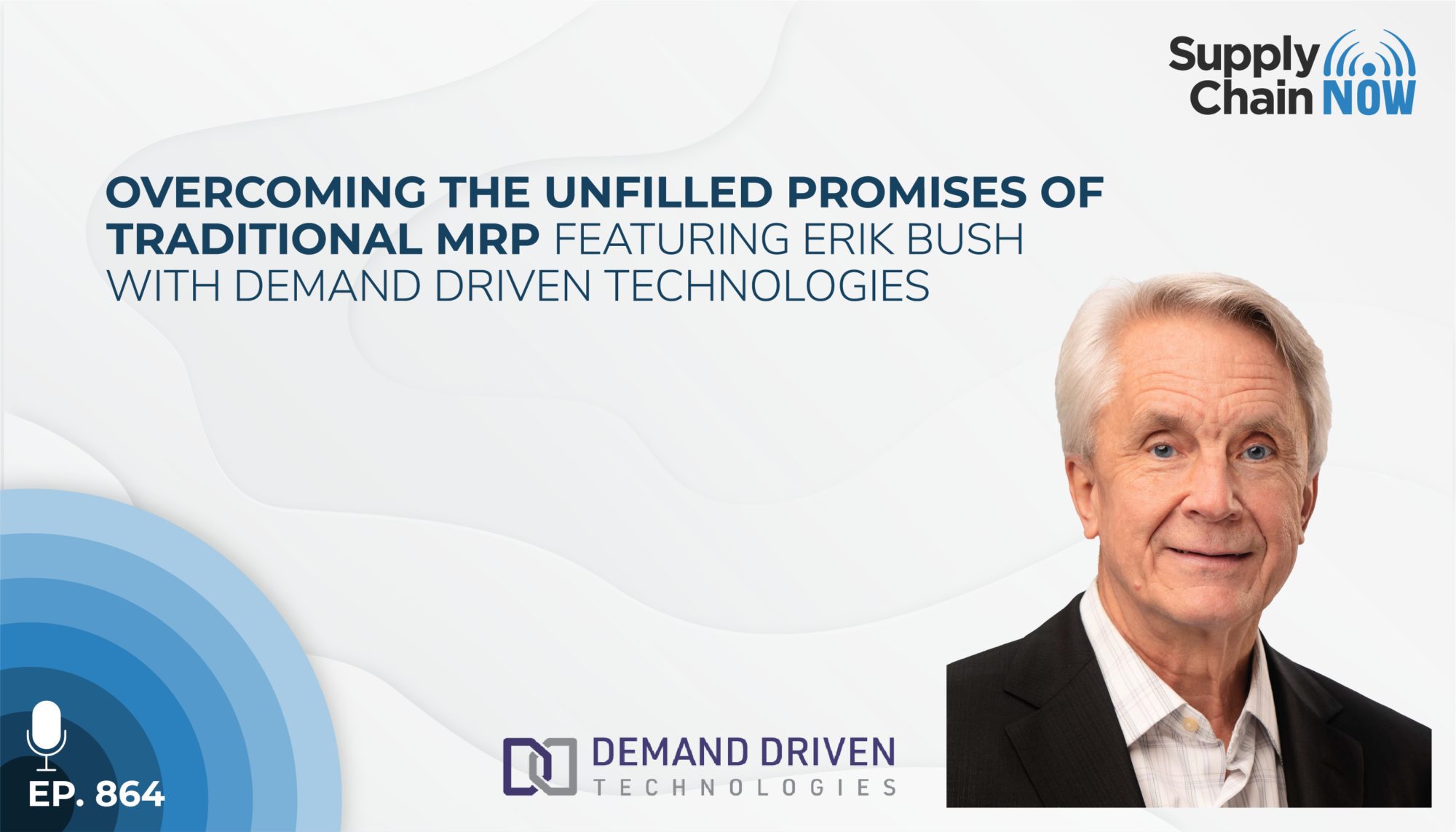
We have been spending way too much time and too much organizational energy trying to predict the future and get to a consensus supply/demand plan. I think there are much better ways to attack that problem that are easier on the organization, more effective, and lighter weight.
-Erik Bush, CEO of Demand Driven Technologies
Episode Summary
In today’s fast-paced world, companies are challenged by hard-to-identify demand signals, increasing numbers of SKUs, longer lead times, global sourcing, less reliable forecasts, and decreasing customer tolerance.
Despite the billions of dollars invested in ERP systems over the last 25 years, statistics from the Federal Reserve indicate that the inventory turnover rates of US manufacturers are the same today as they were two and a half decades ago. So, we can send people into space with iPads, but we can’t improve the most basic inventory metric?
Erik Bush is the CEO of Demand Driven Technologies, first and most widely deployed DDMRP compliant supply chain software solution. Erik has lead the rapid growth of DD Tech since its inception, leveraging his experience with driving value for clients in manufacturing and distribution.
In this livestream-based episode, Erik joins co-hosts Scott Luton and Greg White to talk about:
- The planning challenges faced by companies trying to get ahead in a ‘VUCA’ world (Volatile, Uncertain, Complex and Ambiguous)
- Why leading manufacturers like Michelin and Coca Cola Beverages Africa are turning to Demand Driven MRP (DDMRP) to optimize their supply chain management
- How supply chain leaders can challenge the status quo by fusing together the relevant aspects of conventional MRP with the pull-based approaches of Lean and TOC
Episode Transcript
Intro/Outro (00:00:03):
Welcome to supply chain. Now the voice of global supply chain supply chain now focuses on the best in the business for our worldwide audience, the people, the technologies, the best practices, and today’s critical issues. The challenges and entities Stay tuned to hear from those making global business happen right here on supply chain now.
Scott Luton (00:00:33):
Hey, good morning, Scott Luton, Greg White with you here on supply chain. Now welcome to today’s livestream Gregory. How are we doing today?
Greg White (00:00:41):
Doing very well. And looking forward to this,
Scott Luton (00:00:44):
We are too about
Greg White (00:00:45):
Topic. I love
Scott Luton (00:00:46):
We are too. I, I, I think we’ve got, uh, folks get your popcorn, get your diet Cokes. You might even wanna grab an adult beverage. We’ve got a dynamic conversation teed up today. Of course, we’ve got Greg joining me, but we’ve got Erik Bush with demand driven technologies. And we’re gonna be talking Greg about all those unfilled and unfulfilled promises that traditional MRP providers have been making forever. Now there’s gotta be a better way, right, Greg?
Greg White (00:01:11):
Yeah. And it just so everyone knows not all of the unfilled promises because that would require a week of shows, but the biggest ones, yes. And the most impactful ones to come companies. So, you know, it’s time to start talking about new solutions, new opportunities to attack the same problems.
Scott Luton (00:01:29):
Agreed, agreed. Folks. You’re not gonna miss this conversation. Uh, uh, we have had a couple of, of conversations, pre show and some really good stuff. So, and Hey, we wanna hear from you. We wanna hear your take. So get ready in the cheap seats in the comments you name it to share what’s on your mind today related to the topic or what else go is going on in global supply chain. But Greg, before we get started, and we’re gonna say hello to a few folks, couple of quick announcements here. I wanna, first up nominations are still open through April 1st for our 2022 supply chain and procurement awards. We’ve got nine different categories that matter where you are. You’ve got something for everybody, regardless of what sector you are in, uh, global business. Uh, you can learn more at supply chain, procurement awards.com and then one other Greg, you’re gonna be at a, a big event, the global upstate conference, international business and foreign affairs next week. What are you looking forward to there
Greg White (00:02:22):
Really just hopeful that I don’t inadvertently start an international incident by saying something crazy. No really looking forward to both political military and business leaders coming together to talk about international affairs and the confluence of all of those issues in business and, and particularly technology and supply chain is what Kevin L. Jackson and I will be talking about.
Scott Luton (00:02:46):
That’s right. Exchanging horizons as a tag tagline reads finding solutions. I love that. We’ll look forward to that and let’s say hello to a few folks. We’ve got some familiar faces and some new faces here today. Josh goody is back once again. Talk about a regular. He’s more regular than my folders. I drink every morning. Good morning, everyone from Seattle Folgers,
Greg White (00:03:09):
You just told a guy from Seattle, you drank Folgers.
Scott Luton (00:03:12):
No, I’m just kidding. Folgers came to mind. They got a great commercial celebrating the roots in new Orleans. I, I saw over the weekend, but Ariel resupply, it’s a veteran owned company we’ve recently subscribed and it’s really good coffee.
Greg White (00:03:25):
So is it? Yes.
Scott Luton (00:03:27):
Let the record speak. I love, love the folders,
Greg White (00:03:30):
Resupply
Scott Luton (00:03:31):
Ariel resupply, but Josh, great to have you here. Michael Jones has tuned in from Ogden, Utah via LinkedIn. Great to see you Michael ever been to didn’t
Greg White (00:03:39):
Greg. I don’t think so. Okay. Think I would remember that I’ve been to Utah, mostly to the ski slopes and then to a few kind of desert towns, south and east. I’ve been to helper Utah. I wonder if Michael knows where that is.
Scott Luton (00:03:53):
I bet he does, but Michael actually have
Greg White (00:03:55):
A coworker who lived there. Probably does.
Scott Luton (00:03:58):
Yeah. Helper Utah. Max Gomez has tuned in from Mexico city. We were just talking about Mexico. I think that’s where our guests viewed, uh, the national championship game. But max, as always great to have you back with us, uh, via LinkedIn. Let’s see Bob Johnson tuned in via LinkedIn. Hey Bob, hope this finds you. Well, let us know where you’re, where you are in the world. Uh, I eco is here with us once again. Great to have you back. I think he hails from Canada. I wanna say Alberta, but I think I’ve got that wrong, but regardless. Great to have you back looking forward to your contributions today. Ima Puna, and then we’ve got,
Greg White (00:04:35):
If you got it wrong, I guarantee you will hear. I
Scott Luton (00:04:37):
Hope so. I hope so. I hate, we hate getting anyone’s name wrong, right? I’ve been known to mispronounce my kids’ names from time to time, for sure. Yep. But great to have you here. Big Nash is tuned in from UMBA India. Great to see you here. Bigg Nash. Joyce.
Greg White (00:04:52):
That is a big town.
Scott Luton (00:04:53):
Yeah, it, it is. And you’re not talking about Greenwood village. You’re talking about UMBA India, but Joyce is tuned in from green village, Colorado via LinkedIn, Victor from Atlanta. Great to see you, Victor. Kaon legendary status around here, right?
Greg White (00:05:10):
Another Canadian
Scott Luton (00:05:11):
That’s right. Aina tuned in from Nigeria. I was just talking to autobi. Uh, a from, he was in Nigeria this morning. We were talking about our supply chain leadership series across Africa, Lars tuned in from north of Boston and hello. Everyone know we didn’t hit everybody there, but welcome everyone. We’re looking forward to your contributions today, but Greg, we have a heck of a guest and if you’re ready, I’m gonna go ahead and bring in our guest. You ready to go?
Greg White (00:05:40):
Let’s do it.
Scott Luton (00:05:41):
Let do. So with that said, I wanna bring in Erik Bush CEO with demand driven technologies morning. Hey, Hey Eric, how are you doing? I’m doing great. How are you doing wonderful, Greg? Well, Greg’s over the, the morning, morning. He’s Greg’s doing really well. He’s having a great Wednesday morning. Sounds
Erik Bush (00:05:58):
Great. We’re calling well known towns in Utah. I love it. Yeah,
Scott Luton (00:06:03):
Help. Yeah. Helper helper. And we’re not picking on Utah by the way. Uh, I had a four just helper. That’s right. Just helper. We’re only on helper. I had a four county rural territory for Cisco, uh, food back in the day. And, and I stopped and did business in a lot of towns in South Carolina folks. I’ve never heard of. So I love the highways and byways, but Eric, where we wanna start with you before we get into, uh, MRP and supply chain, manufacturing, business, you name it. How things gotta change. I wanna start with some food. It, it is national to Molly day today. Folks did y’all know this national. I
Erik Bush (00:06:38):
Did not know
Scott Luton (00:06:38):
That Tamali day. So Eric, the million dollar question, maybe the billion dollar question is if it’s not Tamas, Eric, what type of food does early spring? Cuz you’re in, in the Atlanta area as well. Yeah. What type of food does that give you a, a hunger for?
Erik Bush (00:06:55):
Well, I love girling out and it doesn’t really matter. What’s on the grill. It’s that process is great. Early spring. No can be a little problematic as you would know, we’ve got that pollen all over the place. Everything’s turning green. But I think if the weather can flavor raining like crazy and you’ve gotta cover deck, then absolutely get out there and grill up some, uh, hot dogs and brots and Mets and burgers or I mean you could go on and on and on love it, but that’s girling time for me.
Scott Luton (00:07:23):
I love it. It’s so gorgeous. I love the brisk on those, on those, you know, six degree days, such a nice time to be outside. Greg, I gotta ask you the same question. So Tamas or something else. What, what give, does it give you a, a Hankin for,
Greg White (00:07:36):
Uh, this is gonna be like the land landscaping answer, uh, egg salad. I love egg salad and spring always makes me think of egg salad. It’s a good cold sandwich. It’s got a lot of protein and, and it’s pretty tasty when you’re out playing or working in the yard.
Erik Bush (00:07:53):
Gosh,
Greg White (00:07:53):
I’m gonna pay for
Scott Luton (00:07:54):
That. So yes, you know of all the, of all the answers I, I was prepared for.
Erik Bush (00:07:59):
I didn’t see that one coming
Scott Luton (00:08:01):
Right. Hey, really
Greg White (00:08:03):
Quick. You’re the forecasting guy, Eric, come on.
Erik Bush (00:08:06):
No, no, no. I’m not the forecasting guy. So
Scott Luton (00:08:09):
Post
Erik Bush (00:08:09):
Put that on me. Don’t put that on me, Greg.
Scott Luton (00:08:13):
So really quick, Bob answered. He tuned in from Lauren, South Carolina. Great to see you there. Neil tuned in from Austin. Chris is at, in Canton, here in Georgia in just north of Atlanta, I believe. Great to see you, Chris. That’s right.
Greg White (00:08:27):
Dog brown, Georgia.
Scott Luton (00:08:29):
Yes. Which has great barbecue by the way, clay, the dog is tuned in today. AKA diesel, cause it’s engines always running Peter Bole all night and all day. Great to have you back with us, Peter. Okay. So we gotta get down to business though. Eric we’ve really enjoyed our pre show conversations. I wanna start, let’s just do some level setting and Greg, where we’re gonna start with Eric is first tell us about demand driven technologies and, and, and what you do and what your mission is there first.
Erik Bush (00:08:57):
Okay, sure. We provide supply chain software primarily in the inventory, planning, production scheduling and sales and operations planning arena. You know, our real mission and our goal has been to deliver tangible results and sustainable results to our clients. Um, and that’s was really formed in my observations through my career with IBM prior to forming DD tech, where having visibility to a lot of these big E R P implementations. And one thing that was so striking is that the, the needle wasn’t moving, you know, they were solving a lot of it problems and things like that. But when the opportunity to form DD tech came along, you know, the whole strategy was let’s make sure, sure the clients get a positive result out of this. Right. And if we focus and do that, well, we’ll have a good business. And it was, you know, that’s as a sophist, excuse me. As sophisticated as our business strategy has been, it seems to be working.
Scott Luton (00:09:47):
Yeah. I love the simplicity of that for sure, Greg.
Greg White (00:09:51):
Yeah. I mean, I, we talked a little bit about the broken promises of Dr. P and MRP and that sort of thing. And I think one of the things to give, to give our audience perspective is to recognize that everything that became D R P or virtually everything that became E R P, which usually contains an element of both of those capabilities started as an accounting and finance technology. And as customer said, Hey, could you help us with this? They cleed together. Something that, you know, solved the basic purpose and the way that those technologies are implemented with a lot of consulting resources is that, that, that leaves a lot of open space for those consultants to construct the, the solution in a broader and deeper sense is not always consistent, but always costly. So I think, I think that, that we have targeted solutions. Like this is really, really important for people to understand because it wasn’t so long ago that everyone was trying to use E R P to solve D R P R P base replenishment, warehouse management and all these other, all these other things. And it’s worth going deep in some of these areas,
Scott Luton (00:10:59):
Agreed, agreed, Eric move to level setting and out in industry, but really quick. So hello, Russ and Moji is back with us AIT. And Chris are all with us here today. They’re talking hot dogs in the comments, by the way, I love that it is baseball season. I wanna, uh, pause this question with you’all and with Eric, uh, talking about the biggest problems that manufacturing distribution companies are facing nowadays. So we’d love to hear that in comments, but Eric want to hear your take first?
Erik Bush (00:11:27):
Well that’s I I’d like to frame that, uh, Scott in, in kind of two dimensions, first of all, I think we have to recognize that if we’d say today, we have to talk about it within the context of the Panda and everything that’s been going on. Right. But I, I think at the same time, it would be inappropriate not to recognize that prior to the pandemic, there had been a lot of, you know, challenges that had not been really well addressed before we got into the COVID situation. And so I kind of think about it in those two lenses, if that’s all right. Sure. Um, from, from the standpoint, if we go back and rewind the clock to, you know, basically a couple years ago, the pre COVID conditions, I think the challenges that we saw clients having were finding ways to improve their ontime fold delivery performance, and they’ve been struggling to get to that very high level in the upper nineties.
Erik Bush (00:12:17):
Uh, many companies had just been frankly, throwing inventory at the problem. And that’s not always the best thing to do because either you’re buying too much or you’re using your production resources inappropriately. Hmm. So service levels to me is that’s the high ground. That’s what we’re all trying to improve on on, because that way we improve our competitiveness, our business grows, everything else is good, but while that’s going on, inventory turnover rates had been stagnant for the prior 25 years, which is a bit mind numbing. When you think about how can that be after we’ve made all these investments in software over that time horizon, that we haven’t taken the one most basic inventory metric and made it moving the right direction. And I think there’s a lot of factors that go into that. So I don’t wanna blame it all on software, uh, things like product proliferation and whatnot.
Erik Bush (00:13:05):
Those have made it more and more challenging for companies to hit those targeted service levels. And I think what we’re finding is that that, that problem is still there. I mean, it’s kind of hidden a little bit with COVID right now, but it’s, it’s still, to me the, the core focus that our business needs to be, uh, driving towards and that clients need to be paying attention to. Mm. When you think about the COVID time, it’s, it’s now we’re living in a supply constrained environment, heavily impacted by I, you know, logistics, offshore sourcing, um, certain raw materials that are in short supply labor issues that have contributed to it because people couldn’t run at full capacity, you name it. There is a litany of, um, stories there that have kind of really all conflated together to create an incredibly de for people or for companies.
Erik Bush (00:13:57):
And then on the other side of that is their client side impact. So they’re servicing a certain market and there can be issues where the client has to slow down, even though they’ve got all these constraints, because other materials that they’re dependent on are not available, even though you may be able to satisfy them. So now, now you’ve got this real whip sawing kind of effect going on. That’s been incredibly difficult. And I think people are looking for better ways to manage. And probably the biggest issue is one of prioritization. It’s like a triage, you know, what can I do with what I’ve got to give the best effect to my most critical clients? And I think that’s a very, very good, different problem, even though it’s still in a sense tied back to, um, servicing your market, servicing your clients and doing a good job with that. Hmm. Um, so I think there’s been really two major differences, one common theme around service level performance, but you have to attack ’em in different manners, uh, given those two kind of paradigms,
Scott Luton (00:14:58):
Okay, Greg, I’m gonna come to you next and get your take. But, but folks just like Sheldon rose has dropped some of, uh, the bigger problems that industry’s facing right now. We’d love to hear from you as well. So keep that coming. And, uh, we’re gonna say little through, y’all a few of y’all in just a minute, but Greg, what, based on what Eric has shared or, or, you know, other things you see what be your take there?
Greg White (00:15:16):
I think the biggest problem that companies have is prioritizing supply chain properly so that they apply sustainable practices rather than, as Eric has talked about in both of its scenarios where they’re not necessarily viable outside of the crisis of the day. Yeah. Right. And rather than taking a holistic approach to mend, or maybe even reconstruct their, their supply chain companies, are they lean too much on the forecast, which I’m sure, um, Eric can empathize with. And, uh, and too low little on the resiliency once the forecast has been cast, as it were and, and how they respond to things and they tend to formulate a response after not an anticipation of a disruption occurring. I think that foundational yeah. Flaw in the supply chain has impacted us from frankly, for decades, millennia, centuries, however long you wanna call it supply chain, but
Scott Luton (00:16:18):
HPH, or no,
Greg White (00:16:19):
That, that understanding of developing something that is a VI a, a continually viable solution rather than working for a moment or for an incident or for a disruption.
Erik Bush (00:16:31):
And that’s, and that’s what you mean by sustainable, not sustainable in the green context, we still care a lot about those things, but you’re talking about the ability to replete, repeat a strategy over and over again, which I think is very much at the core of some of the other challenges we see that there’s too much hero culture out there still. I mean, it’s not enough reliance on letting the system do the work for, right. And, and that presents its own challenges.
Scott Luton (00:16:57):
Yes. You know, rewarding the, the super men and women, you know, that they have to, uh, pull off these acts of Hercules. Right? Yep. How, how do we avoid that? Cause that that’s just poised for burnout and we’ll, we’ve heard
Greg White (00:17:08):
Mike Griswold talk about that from Gartner. We reward the arsonist, right? We do those things that, that cause not, not, not intentionally, but cause the supply chain to break down and then we take great pride in fixing what has broken down largely at our own hands. And we have to change that culture of, of the practitioners as well.
Scott Luton (00:17:29):
Well said, well said, I know Eric’s passion about that really quick. I gotta share a couple of these comments and then we’re gonna keep driving. So Tom Val, all TV is with us here today. Tom Valentine. I think he’s gearing up for a keynote at Mox. Uh, so great to see you, Tom. I saw that.
Greg White (00:17:43):
Yeah.
Scott Luton (00:17:43):
Heidi says the only hot dog worth eating is a West Virginia hot dog mustard, spicy chili coleslaw chopped onions. Hey, that’s what I’m talking about. Heidi, come back anytime. Bring those hot dogs. So
Greg White (00:17:56):
I can’t say only, but I’ll give that a vote. It is pretty delicious.
Scott Luton (00:18:00):
Jose is tuned in of course, uh, logistics and coffee hosts, a great live stream. Great to see you here. Uh, today, Jose, once again, um, I wanna share a, you know, Sheldon’s, we’re talking about some of the greater challenges, especially manufacturing, distribution, demand, sensing and supply slash supplier variability. That is a great one. Is Sheldon great to have you back once again,
Greg White (00:18:23):
Really a performance is a big, big impact on, on supply chain agility for sure
Scott Luton (00:18:29):
Point. So Eric, our dear friend and Greg, our dear friend, Jenny from the one and only the one and only with SAP picks, she’s wonderful breath of fresh share. In fact, I was speaking with her and autobi this morning, uh, she says so nice to be able to listen to Eric Bush, who is always a very popular speaker at SAP pick conferences. I’m normally too running around with Jenny. Great to see you here. Gene pleasure.
Greg White (00:18:53):
See Jenny. Yeah.
Scott Luton (00:18:56):
Jean pledgers tuned in great conversation. E R P and MTO. And finally Neil Hampshire. Neil says anyone who puts more effort into improving the forecast at the expense of improving supply chain and responsiveness is asking for trouble. Amen. Right?
Erik Bush (00:19:14):
Amen.
Scott Luton (00:19:15):
Eric, you wanna respond to that really quick beyond? Uh, really
Erik Bush (00:19:18):
Agree. I think the word of the day is responsiveness and agility. I think we have been spending way too much time and too much organizational energy, trying to predict the future, get to a consensus demand plan and some ply plan. And I think there are much better ways to attack that problem that are actually easier on the organization, more effective and uh, lighter weight, you know, kind of efforts to get through. So absolutely with you Neil.
Scott Luton (00:19:43):
Wonderful. I’m gonna
Greg White (00:19:44):
Comeback comment on that real quick. Cause as it turns out, Neil and I have been on a board of directors together, uh, Neil is a C I O by trade would never claim to be a supply chain expert, but has incredible skills. And I think the thing that, that demonstrates to me, I think he is a great example of how, you know, how we used to call it the business people and the technology people. You know, he is a great example of how technology G people, if that’s what you wanna call them or us, whatever are part of the business and our lending to the business and that, and that the, the cooperation between tech and uh, practitioners is so important in a business. And Neil is a great example that incredibly insightful, so honored Neil you’ve ever worked with them.
Scott Luton (00:20:32):
Neil, come on back anytime, open invitation, a couple quick comments. And then Eric, I want to get into some of the solutions to some of these challenges and what you see there. But first, uh, Jose unfilled promises has been and still is high quality customer service. A lot of firms certainly are struggling with that. And then finally Peter says, great point, Greg, I’d add that most companies feel they can replace skilled professionals with the drop of a hat with lower pay and not lose a step, but we all know that simply is not possible. Great.
Greg White (00:21:04):
And we’re finding that out in a big way as baby boomers retire at an incredibly increasing rate.
Scott Luton (00:21:10):
That is right. That is right. Let, let me add one more here, by the way, Neil says he’s blushing Greg, uh, Terence Terence says efficiency, agility and resiliency. When we’re talking about the, the challenges of industry, especially when it comes to manufacturing and distribution. Okay. So Eric let’s get into, how do we fit? How do we address these old and new challenges, speak to that if you would.
Erik Bush (00:21:35):
So I think, you know, Neil’s comment was right on and, and all the points that have been made about resili in agility all makes sense. The, the big question is how do you actually do that? Right? Because talking and walking your two very, very different things. And so, you know, I had the great privilege of working with Dr. Ellie Goldrat and we had adopted theory of constraints, principles in IBM in my role as VP of ops for the consulting division. And we used those to great effect to change the paradigm with which we managed our supply chain of consulting skills. We were going through a massive shift from way from legacy technologies into the, the web technologies, the shift towards E R P other industry solutions and things like that. And we found that we had to be much more pacing to, to the new opportunities that were out there.
Erik Bush (00:22:20):
And a lot of that was very difficult to predict at the time. So one of the key tenants of Dr Goldrat’s work was, you know, wait as long as possible to take an action before you do so, because the sooner, the more you narrow that gap, the more accurate your action will be the old adage of shoot, you know, when you see the whites of their eyes and whatnot. And so the question becomes one of how do we shift to that kind of a paradigm, because if I wait till the orders come in from my customers and I’ve got 30 day lead times to resupply, I’m dead, I’m, I’m not gonna be able to do that. And it’s about kind of borrowing that, um, first principles thinking that Elon Musk talks about, you know, take away all of the elements that includes some level of assumption.
Erik Bush (00:23:05):
MRP has a one very, very critical assumption and that that demand is known our forecast. If you have the demand forecast, correct, I can backward schedule, but I need to buy assemble package and deliver to meet that forecast. And so the only our, our mindset has been trapped in this notion that that’s the only way to get there. And in fact, you know, that we have found through the DD M R P methodology, that we can actually configure stock positions in a, an effective way to ensure that we can respond to the demands that actually come in waiting to the last moment while not carrying too much inventory. Everybody thinks to do that. You’re gonna carry, you know, a arena full of inventory to be affected in that regard. Right? So I think it it’s for us to get to that resilience and agility. We have to go back and challenge our thinking, right?
Erik Bush (00:23:53):
And the thought processes that led us to the strategies we’ve implemented for the last 40 years that have not achieved any of those inventory improvements we were expecting and really examine where those these are, that we can pivot create more flexibility and resilience in our business and, and be able to operate in that kind of a fashion, just like, you know, SpaceX landing rockets on their tail, you know, up until then it was the ideas that we couldn’t figure out a way to do that. So we’re gonna crash ’em and burn ’em up, and it’s a much more expensive way of doing space travel, right? So if we can challenge those existing assumptions that are out there that are still embedded in all that software, we open the door for new opportunities and new ways to improve.
Scott Luton (00:24:35):
Excellent. All right. So Greg, I’m coming to you for get your reaction, but really quick. I know there’s lots of opinions around Elon Musk, but man, I love what he’s been doing these last 2, 3, 4 weeks, you know, you know, addressing what’s going on in Ukraine, the Russian outright Russian Aion, uh, aggression and atrocities. So Elon keep doing, keep doing that. All right. So Greg, I love the analogies. Eric was using some things he was speaking to. What’s your take? How do we fix all this stuff?
Greg White (00:25:01):
Uh, uh, yeah, I’d add one more presumption to not maybe just in R P or E R P or D uh, or D R P, but to the supply chain in general, it’s not just that we can predict the future. It’s this term, Edris, paras, all other things being equal. Wow. We assume that all other things will be equal in the supply chain. In fact, that is a foundational principle of statistical forecast thing and of most safety stock methodologies, all other things being equal. And in fact, they are not ever equal. So we need to take a different look at how we consider the risk in the supply chain as well. And to, to the point that Eric is making it is that recognition that allows us to be more agile, more resilient, more responsive. Absolutely. Uh, maybe even more predictive frankly of disruption, not just demand. Hmm. So there, and, and, you know, whatever you wanna call it, it’s the status quo of supply chain. It needs to, it needs to cha change foundationally. Wow. That was a mouthful. It needs to change found
Erik Bush (00:26:08):
He’s going to Latin everything.
Scott Luton (00:26:10):
Well, I thought I was about to say, Eric, he I’m still back at the Latin phrase that he shared. I,
Greg White (00:26:14):
I shouldn’t have said the Latin. I, sorry. That
Scott Luton (00:26:16):
Was extraordinary. No,
Erik Bush (00:26:17):
No, no. That’s beautiful.
Scott Luton (00:26:18):
Eric respond to that. And then I’ve got a couple quick comments I’m gonna share, respond to that, Eric, if
Erik Bush (00:26:22):
You would. Yeah. Well that all things being equal, you know, you talked about statistical analysis, the big underlying assumption, there is normal distributions, which are not what we see in real life. Right. And when you look at the wave forms of patterns of demand, and you think about how the hell is it Shaza can identify a song, take an analog signal out of the air and match it up to the album, the artist, no matter what part of the song is playing. Right, right, right. Or maybe, maybe there’s some opportunity there that if we can do that, we can start to understand demand patterns in a more effective way. So that things like protective safety zones or buffers or whatever you wanna call it are better configured to the actual usage pattern that, uh, an item experiences, and also be able to detect if it’s drifting into a new pattern, right. That may need different settings. So I think there is, I mean, we could go on and on and we don’t have time for all of that, but there is some great examples in what Greg brought up there that we can, uh, tee off on. Right.
Scott Luton (00:27:26):
When Greg said that Latin that’s exactly what came to my, my mind. Shaza, Shaza what you just shared there. Uh, Eric, all right, Greg, and I think you wanna,
Erik Bush (00:27:37):
I love it.
Scott Luton (00:27:38):
Response, Greg, and then I’m gonna share some comments.
Greg White (00:27:41):
Yeah. We, we have applied to often in lie chain general principles. When, when Eric talks about adding to inventory, most companies think I have to add to my inventory, all of it, every item, you know, basically just go from four week supply to six week supply right. In my inventory. But you can really very carefully target that. And if understand the risk profile, as he’s talking about, if you understand the demand and the risk profile of items individually, and if you can have the data to do so all the way down to the location level, you can raise inventory very precisely, only in as much as, as needed for the condition that you’re trying to defend against right now. Now.
Scott Luton (00:28:26):
Okay. Beautifully. Can I
Erik Bush (00:28:27):
Try onto that just for
Scott Luton (00:28:28):
A second? Yeah, really? Yeah. Please.
Erik Bush (00:28:30):
One of the other things that I learned from gold wrap was the importance of finding the point of leverage, right? He used to quote our committees. If I had to lever long enough, I could move the world and all that. But the point is is that there are certain items within your portfolio that are way more critical than others. And by properly buffering those carrying inventory in them, you can actually compress lead times, you gain so much more flexibility and it’s, it’s not this boil the ocean, do everything. It’s about finding that point of leverage within your portfolio where you can really get some advantage.
Scott Luton (00:29:02):
Love that. Okay, we’re talking Latin, we’re talking, uh, Greek mathematicians here on supply chain. Now, today it’s highfalutin highfalutin, but a lot of real takes on what must change to move forward. So lemme share this here. So Greg, I am so glad that T squared is back with us here today. Uh, he’s always a fountain of truth. He says the bullet effect is more pronounced now, more than ever. It’s the bully that screams running from he won’t save you. You can see that right. Painting the visual yeah. Demand sensing and possibly accurate response approaches might be the go-to for today. Good stuff there. Thanks for joining us. T squared holds down to Fort for on YouTube. Josh talent retention is one of the big challenges and he loved that phrase that, that you attributed to Mike rewarding. The Aness. It is such a good one. Sheldon outside in processes will be part of the solution. It’s all about changing mental models. Eric made some great points, old mental models in new algorithms. Love that. Get this from Jordan and Jordan. Great to see here today via LinkedIn, roughly right. Is better than precisely wrong, man. T-shirt I
Greg White (00:30:10):
Have never heard it said that way, but that is dead on when it comes to forecasting, right?
Scott Luton (00:30:15):
Neil is trade marketing,
Greg White (00:30:18):
Right? We have for too long relied on the four forecast as if it is the end all be all of, of performance and supply chain. And it’s not at all.
Scott Luton (00:30:26):
Mm well said, Neil is trademarking Shaza for demand patterns. And then finally kaon
Greg White (00:30:32):
Did I tell you he was genius? Right? We missed a shot. I
Erik Bush (00:30:35):
Didn’t Neil though. We’ve already filed for the patent on that, so,
Scott Luton (00:30:38):
Oh, well I’m on a, not surprised Eric. Uh, and then kaon says, predicting the disruption, predicting the unpredictable. How about that? That’s the art of the possible in many ways. Okay. Lots more comments. We can’t get to ’em I’ll try to keep working those in as we get through the conversation. So I want to, I want to kind of get into definition mode here. So D D R P, if you can define that, talk about how it’s different than conventional planning methods and how it it’s different from a lot of the other, uh, supply chain software solutions that are out there.
Erik Bush (00:31:14):
So it’s a methodology and the whole concept of demand driven MRP as it’s called, uh, was developed by Chad Smith and Carol Patak, both of whom had deep relationships with Dr. Goldrat. So it’s built heavily on TOC thinking, uh, at its foundation. And it starts with the premise that we are going to pace to actual demand in the market, not the forecast, the idea being going back to that first principle thinking, well that it’s a cleaner signal. If we can pace to actual demand and how we do that is we establish what’s called a buffer, meaning a stock position of a certain amount of inventory. And the DDM R P methodology describes the techniques around which how you do that. The principle being constant availability. If we have constant availability, then we can adapt to the cleanest demand signal we’re gonna get. And by virtue of that, we mitigate the forecast air that pollutes our systems today.
Erik Bush (00:32:12):
I mean, it’s essentially that simple. You could get into the details of how the, the, the zones of the buffer are calculated and things like that, but it provides a much more clear and concrete way of a establishing inventory positions, how they’re managed, right, what signals they respond to. And the result has been continually in clients, not only our clients, but clients around the world who adopted other similar solutions are reporting tremendous improvements, 25 to 35% reductions in inventory service levels into the upper nineties. And more importantly, uh, the ability to decouple lead times because you havet principle of holding stock in that material. When you look at your cumulative lead time within your bill of material, now it becomes much shorter because you don’t have to wait for the upstream lead time of that position to be fulfilled. Right? So now I can actually carry less inventory if I buffer correctly and be more responsive in the same breath, which to most people would say, NFW, you know what I mean? There’s no way you’re gonna be able to do that. And so,
Scott Luton (00:33:19):
Wait, wait, wait, you can’t try that. I’m sorry about that. Don’t spell that. Don’t don’t tell ’em to that’s spell that out. That’s a new one for me. Bad
Erik Bush (00:33:26):
Choice of words. My
Scott Luton (00:33:27):
Apologies. No blank way. I, Eric, that’s good. That’s good. We usually say GSD around here gets stuck. Your
Greg White (00:33:33):
Children are gonna be very embarrassed.
Scott Luton (00:33:37):
All right.
Erik Bush (00:33:38):
My apologies.
Scott Luton (00:33:39):
No, no, no. Hey, we gotta maintain a sense humor. Hey,
Greg White (00:33:42):
This is the new age of supply chain. That’s
Scott Luton (00:33:44):
True. Right. That’s true. I know
Erik Bush (00:33:46):
Everybody’s familiar with the term, so,
Scott Luton (00:33:49):
All right. So, so keep going there, cause I’m gonna get Greg to respond to kind of what he’s hearing and, and the methodology, and especially the compare in contrast with, with everything else is out there. So Eric, I let you finish as you explain kind of the differences here.
Erik Bush (00:34:03):
Yeah. So I think the principle there is that it, that, and it really applies not to every item. If I’m in a heavy engineer to order environment and I’m making everything bespoke to a given client demand, then I’m only gonna buffer using DD, M R P maybe some shared raw materials or components that go into that. But in any business, you’re gonna find areas where you can apply this, uh, buffering technique and you get more reliable, um, order supply order generation. In other words, what you signal to your suppliers. And one of the most telling things of this, and someone made a comment about the bull effect earlier in your comments, clients have reported to us that there were suppliers became some of their best once the client, not the supplier, the client shifted to DD M R P for their purchased items. Why? Because they were giving that supplier a more reliable signal to generate their product against, right?
Erik Bush (00:34:58):
So they had a, an easier time fulfilling. And what it means is that they’re not getting the impacted by the bull whip effect that cascades through any MRP kind of environment that we’ve seen out there. So it’s a concept called decoupling, and we’d be happy to meet with anybody to explain this in more detail. But the idea of holding that constant availability allows us to pace to a more clean signal, but it also decouples elements with within the supply chain, the way a buffer would. And if you’ve been in the TOC community, you kind of understand those concepts. For those not familiar, we’d be more than happy to help. And there’s tons of literature now in the market that, uh, you can access to get a better grip on that.
Scott Luton (00:35:36):
Right. And we’re gonna share some resources towards the end of today’s, uh, interview that will help as well. But the goal is the book foundational book. Uh, y’all checked it out by Dr. Gold rat. All right. So Greg, we’ve got a bunch of great comments I wanna get to in a second, but your, your take on that and the difference and why it matters.
Greg White (00:35:54):
Yeah. Well, this is a principle that’s been applied for a good long while in service parts, Dr. Gold rat and, and, uh, another, I don’t know if I would say he’s a science, but Robert G. Brown wrote a book about service parts that kind of started this discussion at IBM back in the sixties. And, um, and they have evolved this over the years and we apply light it at a couple of companies that I worked at or ran and, uh, for finished goods though, right? Because the margins are much tighter and the volumes much lower at finished goods. The need for this has been around for much longer than it has in manufacturing and, and especially distribution. But so we know that these principles can be applied and can work. We just have to apply. We just have to really reach that cultural hurdle in manufacturing to get, I think, two recognitions get us there.
Greg White (00:36:51):
One, um, the reason that many manufacturing supply chains are for lack of a better term sloppy, is because they, their margins are huge, enormous compared to distribution and retail, and they can literally afford to be sloppy. The other, the other reason is that, oh my God, I forgot the other. Oh, the, the other reason is, is that the, the way that manufacturing and, and retail worked to gather, and I think Neil, um, addresses this in the, in the comments here is that they are so tightly coordinated that a brand or a retailer may impact the demand pattern of a, of a manufacturer by how they promote or don’t sell or don’t display, or don’t the goods to the consumer. And that can have a huge impact. And the, and the manufacturers are just that much extracted from core demand at the consumer level. So it’s been a struggle from a structural standpoint for manufacturers.
Erik Bush (00:37:54):
Yeah. One thing I’d add here, Scott is that, you know, we there’s this emergence now demand sentencing technology. We’ve seen from some of our clients who have point of sale data that, you know, their steady runner products are basically flat as a pancake. Maybe there’s a little promotional blip now, and then, but it’s very flat. And then you back and juxtapose on that shipments and you’ll see more variability and then you’ll see manufacturing even greater. And what I’m pointing out is that we clients introduce a lot of this pain into their own system based on various policies that they develop, you know, minimum lot sizes, full truckloads, you name it, things like that. And those are going back to the point, Greg was making challenging some of those other assumptions that are out there. Do those really promote, flow and return on investment the way we think they do.
Erik Bush (00:38:41):
They’ve been so accepted for so long that they’re, they’re not even challenged anymore. And I think that’s one of the things we see clients doing is really starting to rethink what are those parameters that we should have? Is it really the case? We had a large consumer goods client that actually shortened their batch sizes substantially were much more able to respond to the market, had far fewer schedule break-ins. And guess what the OE metrics did not suffer. So how did that happen? Right. Well, there’s lots of other UN UN kind of seen, uh, issues that get in the way there. You really need to go back and rethink.
Scott Luton (00:39:17):
Yes. There’s
Greg White (00:39:19):
Many things Eric, that are just accepted because that’s the way we’ve always done it. Yeah. And I think every one of those, and I think that’s what you’re advocating here. Every single one of those needs to be challenged. Yeah.
Erik Bush (00:39:29):
Agreed.
Scott Luton (00:39:30):
Agreed. Hey, uh, ever since Eric dropped his acronym, I’ve been getting lit up on my phone with some funny, uh, acronyms. Uh, so folks, I’m not gonna tell y’all, but y’all looked this up. Boca is one, uh, FUBAR is another one. So I’ll just let, y’all go. Google that on your own.
Greg White (00:39:45):
Those are all military.
Scott Luton (00:39:47):
That’s true. That’s true. All right. Really quick. Um, I love this discussion. We, we need a couple hours and I especially love that, but both of y’all real passionate about areas and, and, uh, and not just planning, making easier on your team, doing it better for industry, but doing it different for industry. And we gotta challenge all of these long held assumptions. Jenny says, I don’t think most companies realize the science or cleverness behind inventory management, or even supply chain management and the inter connected this, uh, connectedness of it all. I agree with you, Jenny, but I would also argue the silver lining part. One of the silver linings with the pandemic is folks are having that epiphany around what you speak about there, a Mohe and congrats Mohe, and your latest certification you added Mohe says just in time, is out, just in case is in, along with over demand and production bull whip, and the opportunity for agility, responsiveness, and the traditional MRP to learn from chaos and be intelligent. Eric quick response there.
Erik Bush (00:40:50):
Yeah. I, I couldn’t agree more. I think it’s again about how, how do you do that? I mean, I think we we’ve, we’ve called out that these are the, uh, directions we need to move in. And I think it’s about going back to what we’ve been talking about here, challenging our thinking, revisiting the core under underlying assumptions there, and then using those to break out of the patterns of behavior we’ve been in for so long, right. That have led to that flat inventory performance and the like, and you know, like any new invention or any new Strat going back to Elon, you gotta crash a few rockets until you figure it out. Right. You know, we’ve gotta be willing to push these boundaries out in different directions and find, yeah. The better ways of working
Scott Luton (00:41:29):
Really quick, going back to what Jenny shared. She, she says, sorry, she didn’t put it in Latin. Like Greg did or make it sound more clever. I thought it was beautiful. Uh, Jenny, by the way,
Greg White (00:41:38):
She could probably put it in Africas and then none of us could there, you understand it, but it would look very clever.
Scott Luton (00:41:45):
Hey, this is Colleen and Colleen says agree. Hi, margin high inventory can lend the sloppy supply chain lowering the water level, reveals the pain points are the big rocks. Well said, Colleen. Okay. A couple more comments. I’ll try to get to those and, uh, questions as we get towards the end here. But I wanna pose this, uh, Eric, this question to you, and then Greg will come back and get your take as well. So Eric, what are the organizational also adding a Sy there, implications implication of the evolving trends in the supply chain environment?
Erik Bush (00:42:22):
Yeah, I think it’s, it’s really interesting. You know, the clients that we’re meeting with and, and working with are, are doing global rollouts and things like that. And one of the challenges that they’re facing is the, and I think, uh, Greg made a comment about this earlier, the evolving workforce that they have available. And inevitably, you know, there has been some movement offshore. There’s been a whole number of tactics. People have tried, there’s been M and a activity. All of this has kind of combined to make it very difficult, to get standardized ways of working across network of plants. Right? So, and given the challenges that they’ve had with traditional planning methods like MRP, they find that each plant is running their own sauce. They’re cooking their own stoop. They’ve got their own way of working with it. And when the CFO wants to benchmark plant a against plant B, he doesn’t get any meaningful calls to action out of it.
Erik Bush (00:43:17):
He gets an argument about why plant B’s plan is different and it that’s an invalid compare and it’s, it’s a waste of effort to do that. So I think what clients are looking for is first and foremost, a way to get to more standardized and legitimately sustainable as Greg use the word are best practices. And to do that, they they’ve kind of, many of them said we’re going to, in certain areas of our business start centralizing planning, because now they can get a concentration. Instead of having two or three planter buyers at each plant, they can get critical mass, they can adopt standard ways of working and they can get more leverage on this situation. I mean, I think that that is a critical part of it. There is still what I see a, a continued pressure on cost, wherever you go, whether you like it or not.
Erik Bush (00:44:08):
Even if you’re in a high, mid margin business, people are trying to squeeze the turn up. And what that does is they look at, okay, you know, are like an overhead item. We can we take one more head count out that would save us this much, yada, yada yada. And I think like it or not, part of that is a reflection that the automated ways of working aren’t there. So we have to find a way as we challenge these assumptions to build more agility, to get to where we can pour more materials on autopilot, meaning that they’re on, they’re just, autogenerated right. Somebody’s reviewing but much like the pilot in the airliner that I flew across to Europe last week, they’re not flying the plane most of the time. Right. That intervening on exception cases and the like, and that is so far from where you see most companies today with Excel workbooks and all sorts of other means that they’re using cuz they’re fighting the system instead of the system helping them.
Erik Bush (00:45:03):
Mm. So I think, you know, the big things I see is a, a movement towards more centralization, a, a, a cry from more automation so that we can get more out of less, uh, resource wise. Then probably the last thing I would say is that starting to see more interest in reshoring production in certain key areas, because in the quest for that agility, one of the biggest things that comes up first is that if I’ve got 90 day lead times from Asia, if I’m so working into north America, I have tied myself up for 90 days. Right. And, and so, you know, those would be the, kind of the broad themes that I’m seeing with the clients that we’re working with. Um, I think they’re all early days, right? I think there’s a lot of ground in, you know, you’re dealing with the vital organs of a manufacturing company when you’re working in this area. So I don’t expect it to change overnight. It’s gonna take a while. But I think if we use those as kind of navigational beacons as to what we’re trying to get to and challenge our thinking that we’re gonna make a lot of progress in those directions.
Scott Luton (00:46:04):
Yep. Or navigational beacons the second time in the same week, that’s come up. Think Jimmy buffet does. Yes. Jimmy buffet and, and Alan Jackson
Erik Bush (00:46:13):
Don’t get me going on puppet.
Scott Luton (00:46:15):
All right. So, so Greg respond to some of those organizational implications that Eric was just referring to.
Greg White (00:46:22):
Yeah. Well, I think we have, uh, I think we have to acknowledge that it again, in O in other tiers of the supply chain, that more autopilot type methodology applies. I mean, if you, for instance, I’ve been working with retail companies for decades. I won’t even say how many where things like replenishment of the store shelves is fully automatic because a store holds a hundred thousand skews and there are a thousand stores, no one could physically review the, the orders or forecasts or recommendations. They have to only review exceptions. And even the most exceptional of exceptions, there are even tolerances that say, Hey, if the anomaly isn’t this much greater than usual, you know, X number of standard deviations, then go ahead and pull the trigger, right. Go ahead and do it. So it can be done. We know it can be done. We’re dealing with much, much higher volumes at a manufacturer.
Greg White (00:47:20):
Whereas a store might be a million dollars. A manufacturing run might be 10 or 20 million. So, you know, you’ve gotta consider all of those things, but it absolutely can and is being done and it can be done at, at the manufacturing level. And I think it’s time. It is time because it is time. You know, the other thing that manufacturers have to recognize is there’s nowhere to hide anymore. When I can sit down at my dinner table and say supply chain and all don’t glaze over. When I talk to friends at cocktail parties, God, I hope we do that soon. And, and, and say supply chain. And they’re like, oh yeah, not what’s that. Then, you know, there’s no place to hide. And I think one of the biggest threats to manufacturers is not economics. At least not the economics they’ve thought of it’s their brand equity be their brand identity economics, right? It’s the top line that is now threatened by mismanaging a supply chain. As whereas before, again, all of the things being equal, we might just pay too much for transportation or for, or for buffer stock or, you know, or inventory or whatever. So,
Scott Luton (00:48:29):
Uh, nowhere to hide mistakes
Greg White (00:48:30):
Are raised.
Scott Luton (00:48:33):
Yes, the stakes are raised and quick heads up, Greg and Eric, if y’all lose me, we’ve got a ton of rain out, uh, where we are, and that always impacts, uh, connectivity. So if I pull a disappearing act, that’s why I’ll be right back. Okay. We’ll keep driving. Otherwise I wanna share a couple quick comment and then we’re gonna, uh, I’m gonna share our question with you, Eric. And then we’re gonna talk a couple resources as we wrap fast and furious finish here today. Uh, Neil says IOT and smart appliances have the potential to connect demand to point of consumption rather than a point of sale. Excellent point. This is where we can move to for many categories. Excellent point there, Jordan says over reliance on minimizing unit costs, thinking that would be the silver bullet in reality, in most cases, your total cost of ownership, TCO, look that look that up.
Scott Luton (00:49:21):
Uh, your land costs ends up being higher. Excellent point. And then finally, uh, there’s lots of questions that we can’t get to all of ’em, but I, I wanna, uh, pose this question to you, Eric, from Sheldon. I think this is a important question that goes back to demand driven technologies, maybe some of the pushback that any new approach would get both you and Greg spoke to the challenge, uh, in challenging these assumptions and these long held ways of doing things. How important that is, Sheldon great question. He says inventory models, not aligned with market requirement, DV MRP implementation sounds like the sales team may push back. How do you overcome the resistance to change from other business units with different goals, uh, within the cost capital service triangle? It’s excellent question. I think
Erik Bush (00:50:07):
The best way to address questions like this and I Sheldon and I absolutely resonate with what you’re, uh, asking here is to look at the facts. So what we do with any client that we engage with is we do simulations because we want them to understand how the methodology works and whether it’s gonna provide value for them. And in fact, there’s been a couple cases where we walked away from each other, cuz there wasn’t a play for them. And it was probably more in an ETO type environment and whatnot. And so it’s about building awareness and understanding and gaining confidence in not just the planning community, but the organization at large, you have to have them on board with where you’re going there. And once they realize that the actual service levels are gonna improve, cuz the simulation results will bear out what improvements that’ll make.
Erik Bush (00:50:52):
It’s not purely an inventory reduction kind of mindset. It’s about service. We talked about that earlier. You’re typically find that the, the people on the business side or the sales side of the organization get on board and they understand because if it’s gonna improve our reliability and it’s gonna give us better, uh, response times to the market, they’re all in on that. Right? And so we do these simulations, it validates it, it creates a business case for moving forward and, you know, go back to what I said, originally Scott, we founded the company to create value for clients, right. And this is how we work to try to sure that that is what occurs at the end of the day.
Scott Luton (00:51:30):
Wonderful. Uh, Greg, your quick response.
Greg White (00:51:34):
Well, I mean there, this is just such a complex story, but I think ultimately, you know, if we want to change things, my first thought, my first thought was that there’s a so much that needs to change that just addressing that point is, is really, really difficult. But to me it’s as much a culture change in the, in the industry, as it is anything else we have to cease to rely on. That’s the way we’ve always done it. Or even, you know, the ancient scientists have established this because the thing that the, a lot of people don’t recognize is the way that we have attacked supply chain to date is based on the data that was available in 1903 or 18 0 18 88. When most of the forecasting techniques that are used in supply chain were invented. And there’s a presumption of lack of data and a presumption of unavailability of information like the, I, I O T information that Neil was talking about that give us greater insights. And when we have those greater insights, and I know we’re not really talking about forecasting, but forecasting’s a great example. We can forecast more effectively. We can also predict more effectively how our suppliers are gonna perform. And it, it all, it all ties back together to, to create a, a different dynamic. But we have to look at supply chain differently than we’ve always looked at it in the past.
Scott Luton (00:52:59):
Agreed well said, Hey, quick heads up to the production team. Big, thanks to Chantel Amanda, Catherine Clay that makes this happen. We’re gonna keep Eric with us for the full we’re gonna close, uh, with Eric. Cause I wanna save a couple minutes cause we still have a couple resources we wanna walk through and we wanna make sure folks do how to connect with you, Eric, uh, Bush with demand driven technologies. So first up demand driven technologies global conference, 2022 is coming up. Eric, I believe April 5th, the seventh, if I’ve got that right. Excellent opportunity to really understand and see how other companies have embraced the demand driven, uh, methodology and, and learn more about the results. What, what’s one thing you’re looking forward to about the conference and folks let’s drop the link to that in the comments.
Erik Bush (00:53:44):
I think it’s just a great sharing opportunity. We’ve been doing this over the years and it helps take some of the mystery out of the, the story for the people who are new to DD, M R P or new to the demand driven methods, to be able to see peers talking about their experience and the kind of results. It’s obviously an opportunity for us to share updates on our product strategy and where we’re going organizationally and the like, and over the time we’ve built a growing, you know, very nice network of companies who are very willing to reach out to each other and share experiences. I was in Europe a couple weeks ago and you know, they’re all interconnected. They’re, they’re talking, they’re telling us about visits that they’ve paid to each other. And the like, and it’s just kind of neat to see that kind of community gathering around these ideas. And I think the more people we have thinking in those directions, the more benefit, the more solid the whole strategy becomes going forward.
Scott Luton (00:54:39):
Love that. Appreciate you sharing. Thanks for making that available here. We dropped a link to learn more in the comments, Greg. They may even have a cocktail party maybe, uh, at the conference, who knows?
Greg White (00:54:50):
I thought it was virtual. Well,
Scott Luton (00:54:52):
Still have
Erik Bush (00:54:53):
We could
Scott Luton (00:54:53):
Still have toast. Yeah. Since when is virtual virtual conference is stopped, right?
Greg White (00:54:58):
Well, at least we’ll have the convers. Maybe we can do it in the metaverse where it, ah, looks weird, but feels
Scott Luton (00:55:05):
We we’ve got so the sources keep coming. I wanna share though. Jenny says great interview learned so much that I should have known Ken. Uh, thank you for introducing DD, M R P to us so many years ago. Good to know people are still learning all around the world. Great stuff. Thanks supply chain now. Good stuff there. Thanks so much for joining us, Jenny. All right. So beyond the conference, which we dropped the link in the comments, let’s talk about this resource center that y’all maintain and fuel, helpful information, educational content, you name it all powered by your team there at demand driven technologies. What’s what’s what are things? What are the types of things there?
Erik Bush (00:55:40):
Great, uh, information, a lot of case studies from different industry segments and things like that from large enterprises, like Michelin and go Cola down to, you know, mid-market type companies. So it’s not just, you know, big or small, it’s, it’s really proven to be very effective in a wide range of industries. There’s also the demand of an Institute that I’d give a shout out to because they’re quite been the pioneers on the thinking and the thoughtware behind all of this stuff. And I would wanna, you know, make sure that they’re visible to your audience as well.
Scott Luton (00:56:10):
Wonderful. And let’s drop the link to that as well. In the comments for the resource center there, a couple Jenny says, Ooh, can’t wait for a real life cocktail party. Never thought I’d say that. Peter says I’m gonna private message my address to Greg white for the invite I travel almost for free almost for Joyce says that the, the DD tech conference is kind of early in the morning for cocktails. Hey, is there ever such a thing? What
Erik Bush (00:56:37):
Time with a bloody Mary? It’s always
Greg White (00:56:38):
Five o’clock somewhere
Scott Luton (00:56:40):
And Jose, thanks for stopping in today and commenting on the conversation. Many folks will see Jose at next week at, uh, mods here in Atlanta. Um, okay. Eric, a lot of good stuff. I really enjoy you and Greg, uh, talking about some of the things we’ve talked about here today. It was better than advertised. Uh, I, I didn’t break out my popcorn diet Coke. I’ll save that for the replay, but how can folks with you, Eric and your team?
Erik Bush (00:57:05):
Uh, you can find me on LinkedIn. Just look up Eric Bush with a K E R I K B U S H. And you’ll find me if you look for demand driven technologies, info, demand driven, tech.com is another avenue you can follow and would love to, to connect because there’s so much to learn. We think we’re making a tremendous amount of progress. Our clients are happy, so, uh, let’s get connected.
Scott Luton (00:57:28):
Let’s
Erik Bush (00:57:29):
Do that. Can I have one second, Scott, I just wanted to give a shout out to our team. We have colleagues in the Ukraine and just wishing the best for all of them. They’re helping us out on some more project work. It’s amazing. The people that are in that team at ABM cloud, uh, these folks are so resilient and high quality and good people, and it’s a travesty what they’re going through. So just wanna mention them.
Scott Luton (00:57:55):
Y you know, I’m glad you mentioned that, uh, because we should mention at the same time, you know, you get from what you have. Uh, we’ve got a three o’clock meeting with our friends at vector global logistics today where we’re, uh, it’s a working session where we’ve identified, uh, and Rick has identified a bunch of needs, and they’re in the process of figuring out who can help address the needs and move the stuff in country, not just Ukraine, but to Poland and all those neighboring countries that have been absorbing all those wonderful people that are in need. Uh, so you very much, we’re praying for not only your team members there, but, but a ceasefire so that we can, we can start to unpack all the damage and, and address, uh, what needs to be, uh, done over there. Um, if you can, Amanda, uh, Catherine Chantel, if you y’all could drop the link to that 3:00 PM open session, if you want to, if, if you wanna help with any level, join us at three for a working session there. Um, Eric Bush, CEO of demand driven technologies. I love your passion. I love how adamant you are and what you’re, and, and not just from a thought leadership standpoint, but what you’re doing to drive change across industry. So, uh, folks can get more to off done, but get it done easier exactly. And not kill themselves to do it so big. Thanks. You Eric.
Erik Bush (00:59:12):
Thank you so much for the opportunity to speak.
Scott Luton (00:59:14):
You bet. All right, we’re gonna, we’re gonna wrap with Eric here, Greg. I wanna circle back to you. You’re gonna get the final word. What I’d love for you to speak to Greg. We heard a lot of t-shirt isms from Eric Bush today. I learned some new acronyms. I better understand. I better understood some of the compare. Uh, we’re just giving you a hard time. Eric. We love you.
Greg White (00:59:32):
You can’t get in trouble, Eric. You’re the CEO,
Scott Luton (00:59:35):
Right? That’s right. But Greg, what is not helping Greg, if there was one thing though that folks have to wrap their head around that Eric, she, today that we talked about here today, what’s that one key thing.
Greg White (00:59:49):
Yeah. That one key thing is that, which got you here will not get you out of it. You know, the inadequacies of the methodologies that we’ve used to date have, have kept us in a constant state of dis eruption and COVID in the pandemic and the response and the, you know, the resulting disruptions have really only exacerbated and really brought to the fore. And frankly, most importantly, brought to the awareness of our customers problems that we have always had in supply chain. And it’s time to confess that as Eric said, basical, when he opened that the inadequacies, the unfulfilled promises of, of R P E R P D R P, you call it whatever you wanna call it, have put us in this position and we have to do something different. We have to think about this problem differently. And if, if we want to have things change, I mean, a, I was stunned when I think deep in my heart, I knew it, but I was stunned when Eric told us before about the fact that fill rates have not changed even over the time that we’ve had all these technologies. If that’s not the litmus test for ineffectiveness, I don’t know what is
Scott Luton (01:01:00):
Well said, do something do so. Uh, well big, thanks again, Greg white, always a pleasure to knock out these conversations with you. Uh, Eric Bush and the whole team really at the man driven technologies, uh, for helping to make today happen big. Thanks all the folks, man. We got the so many comments and we, and we couldn’t get to so many others. Thanks for showing up and sounding off here today. Uh, but folks to kind of piggyback on what Greg said as we wrap whatever you do, uh, on behalf of our entire team here, we’re challenging you, Hey, do good. Give forward. Be the change that’s needed on that note. We’ll see you next time. Right back here at supply chain now. Thanks everybody.
Intro/Outro (01:01:37):
Thanks for being a part of our supply chain. Now, community check out all of our programming@supplychainnow.com and make sure you subscribe to supply chain. Now anywhere you listen to podcasts and follow us on Facebook, LinkedIn, Twitter, and Instagram. See you next time on supply chain. Now.
Featured Guests
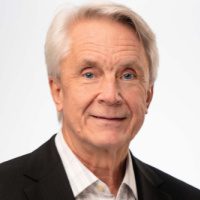
Erik Bush has led the growth of Demand Driven Technologies since its formation in the fall of 2011. Under his leadership the company has experienced exceptional growth and now supports clients on 6 continents around the world. He has led the development of a global network of channel partners who represent DD Tech solutions in their respective markets while overseeing the migration of our solutions to a predominantly cloud-based offering. Erik retired from IBM in 2010 after 31 years of experience with the company, the majority of which was in executive and management positions. He was the executive responsible for the rapid growth and expansion of IBM’s Network of GBS Global Delivery Centers. Erik also served as the Vice President of Operations for IBM’s Global Business Services units in Europe and the Americas. Erik has extensive experience working with clients in the production and distribution industries. He leads through a deep commitment to delivering tangible benefits to his clients through a pragmatic, results oriented approach. He holds a BS degree in Economics from Miami University of Ohio. Connect with Erik on LinkedIn.
